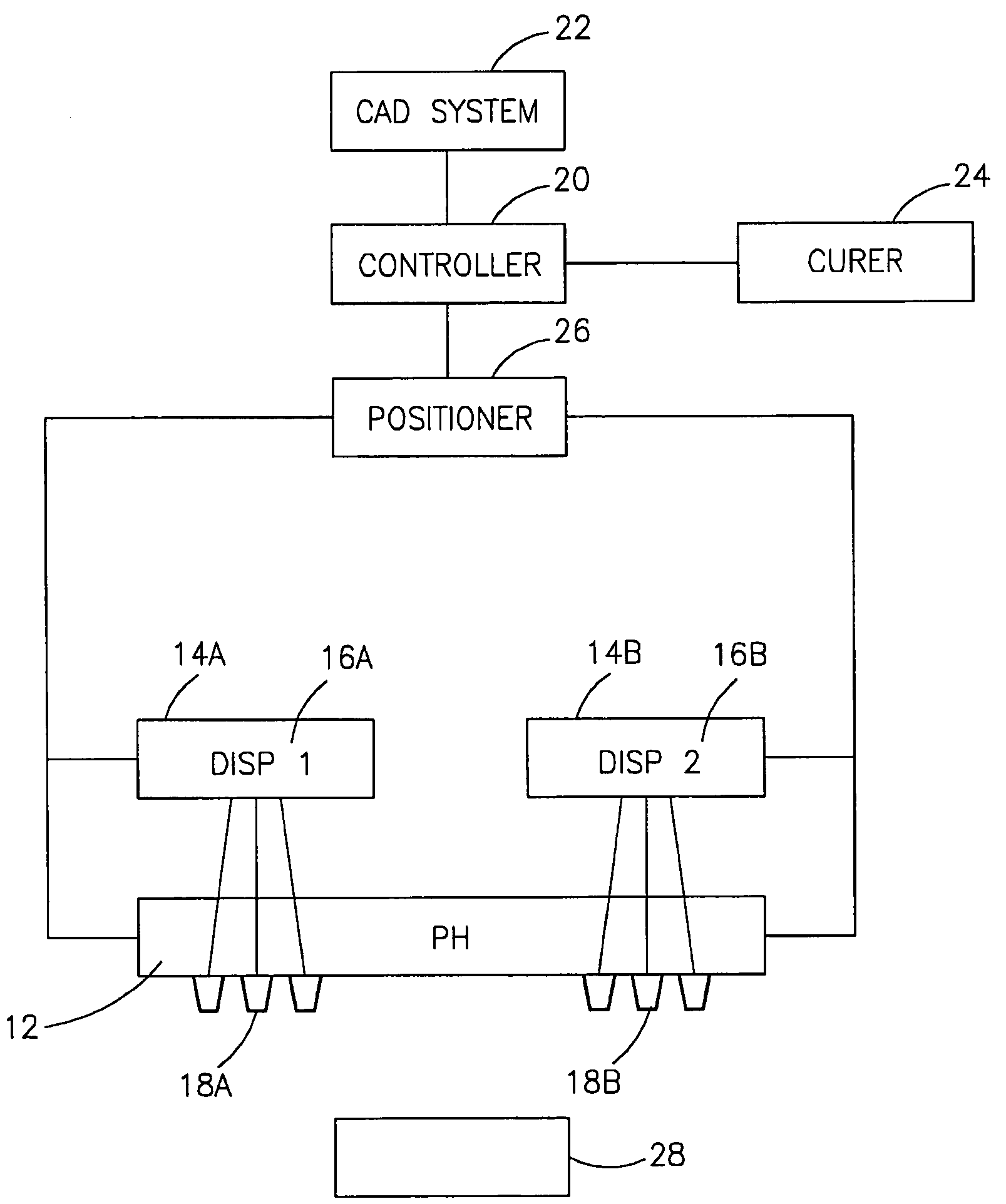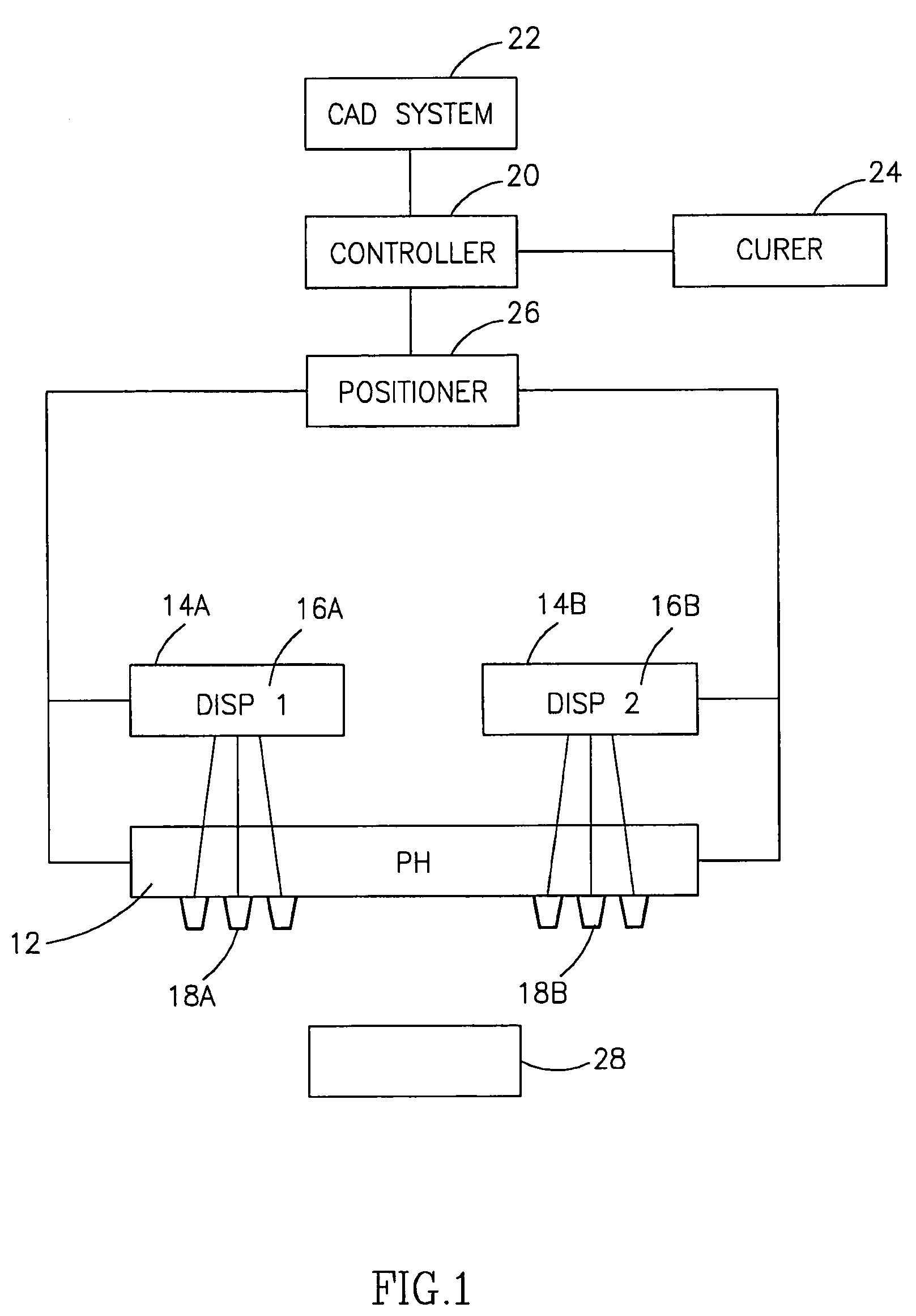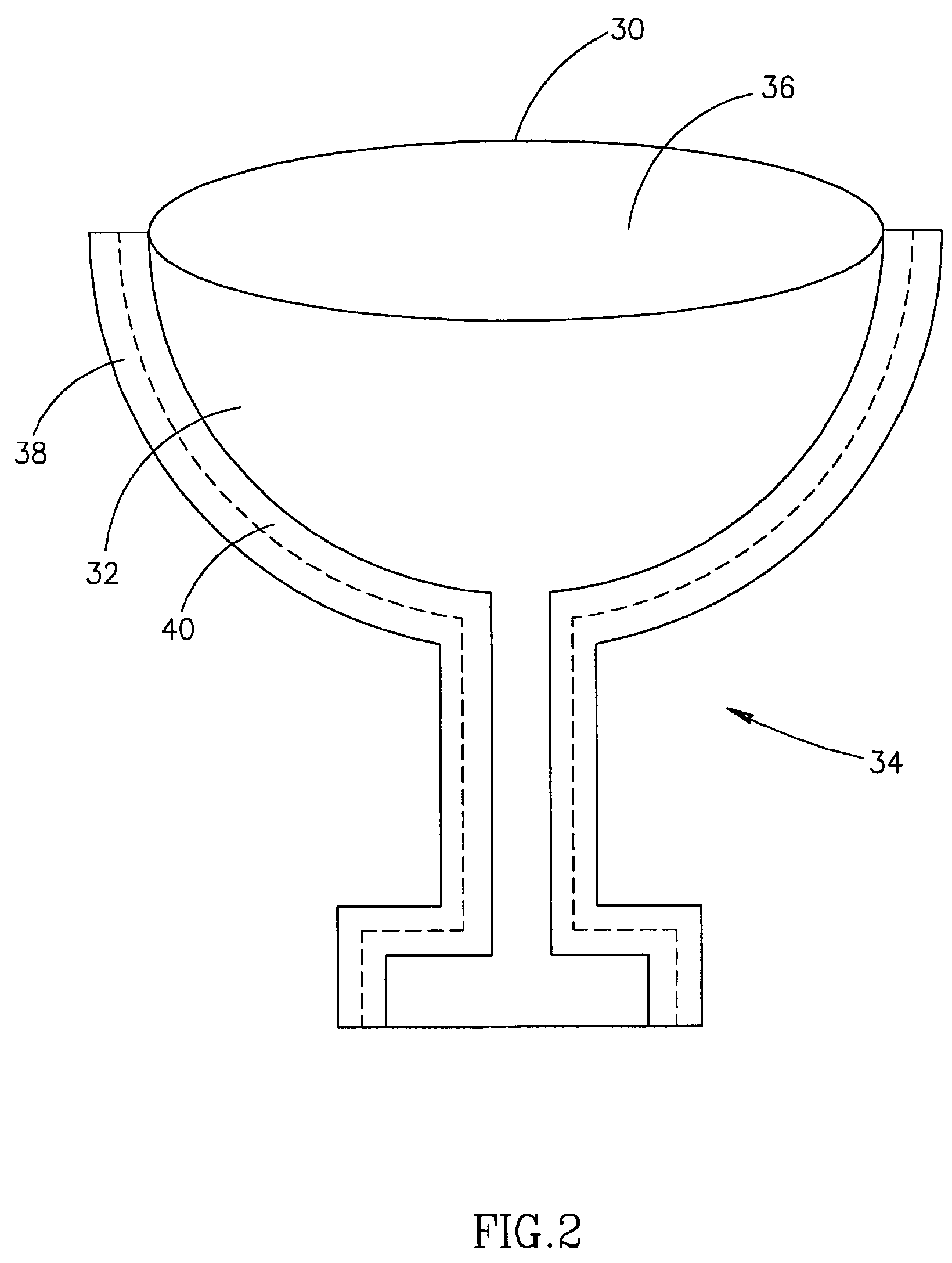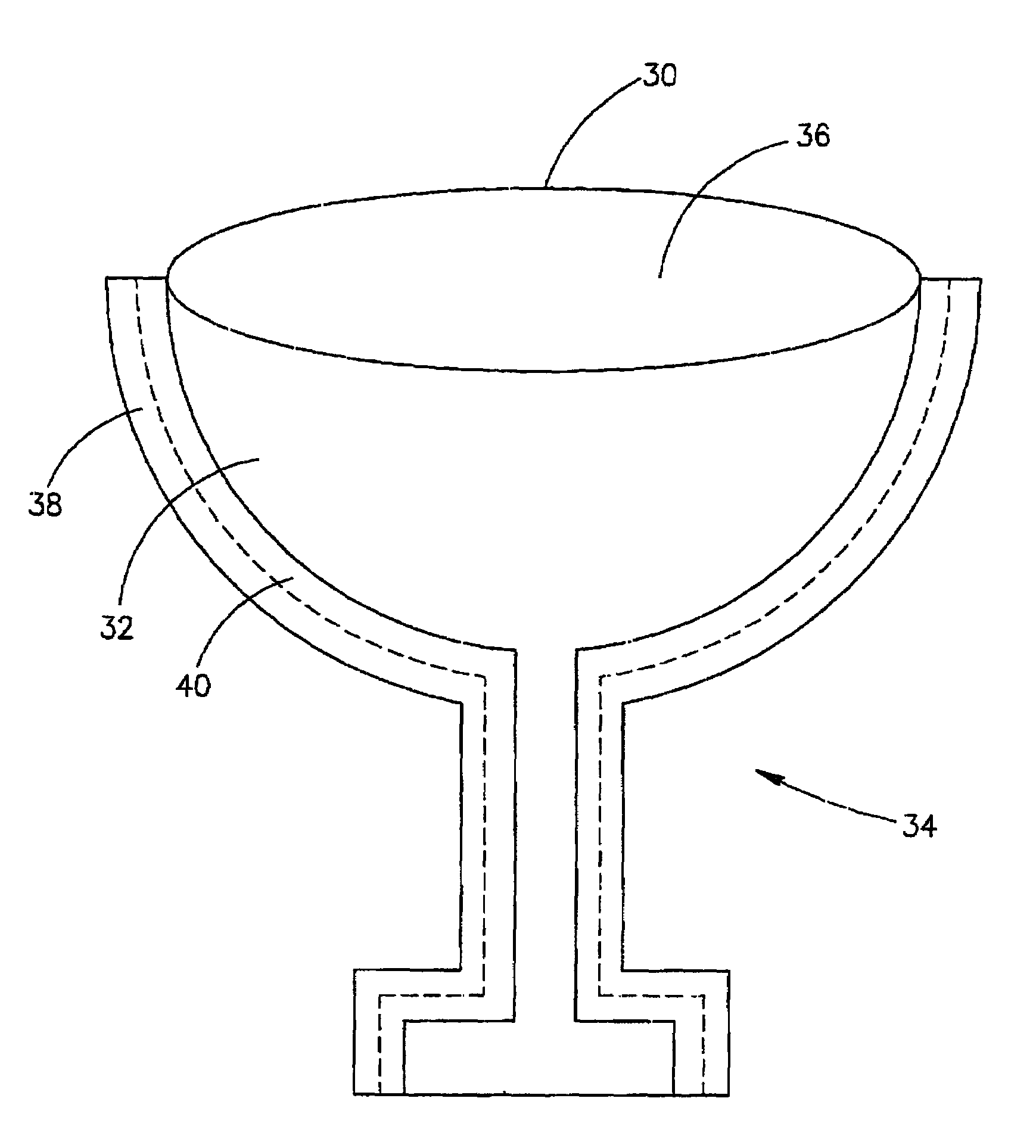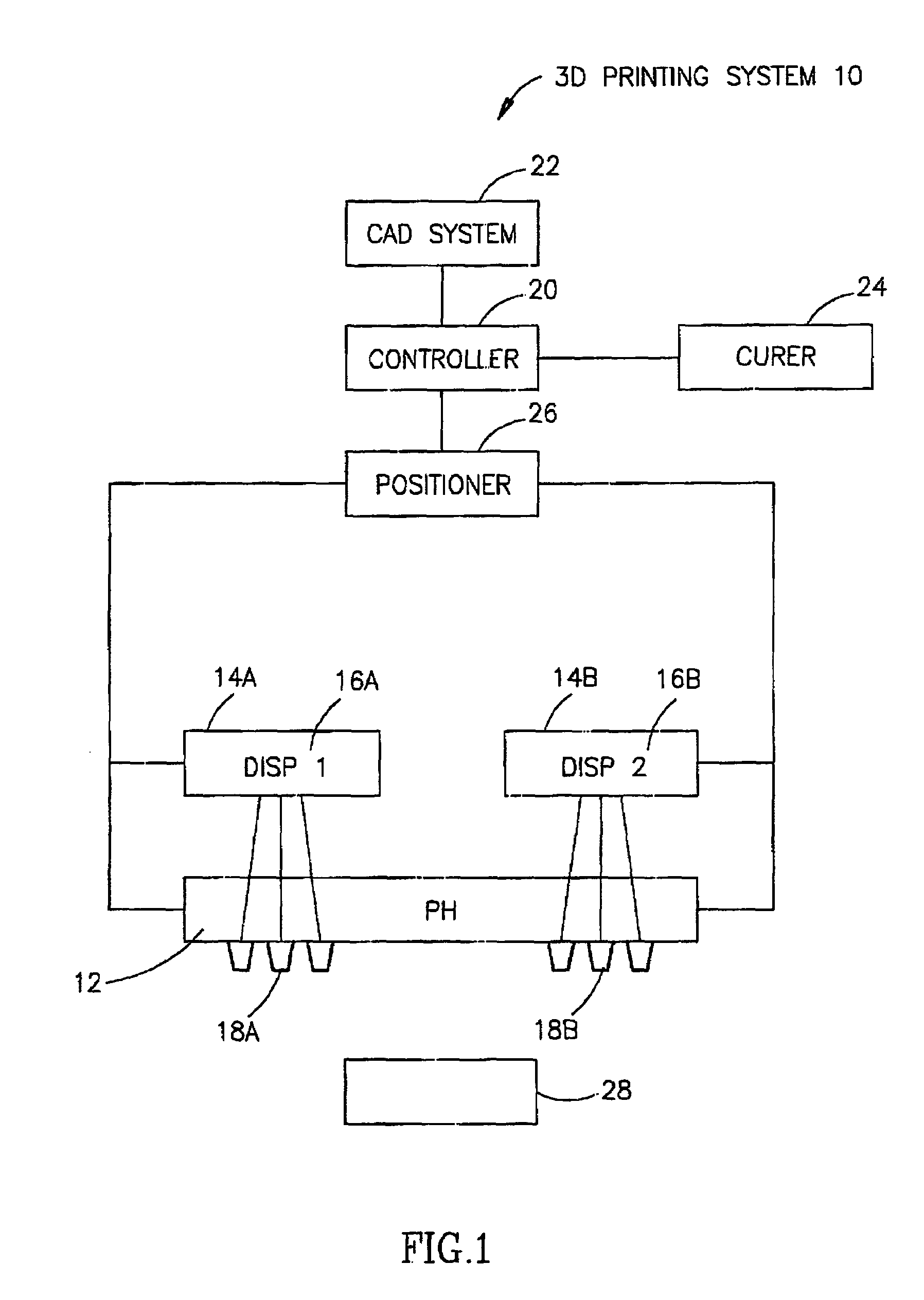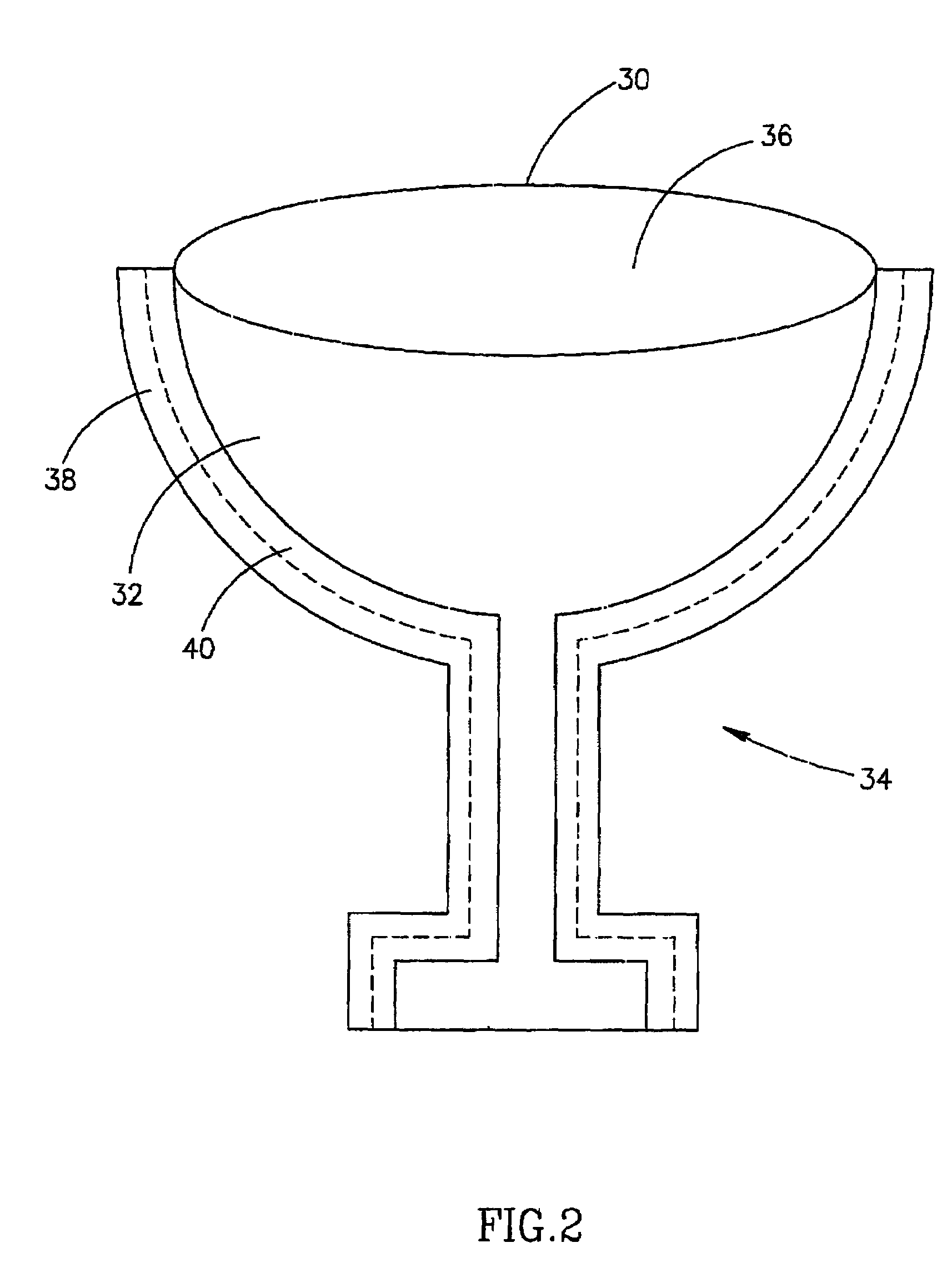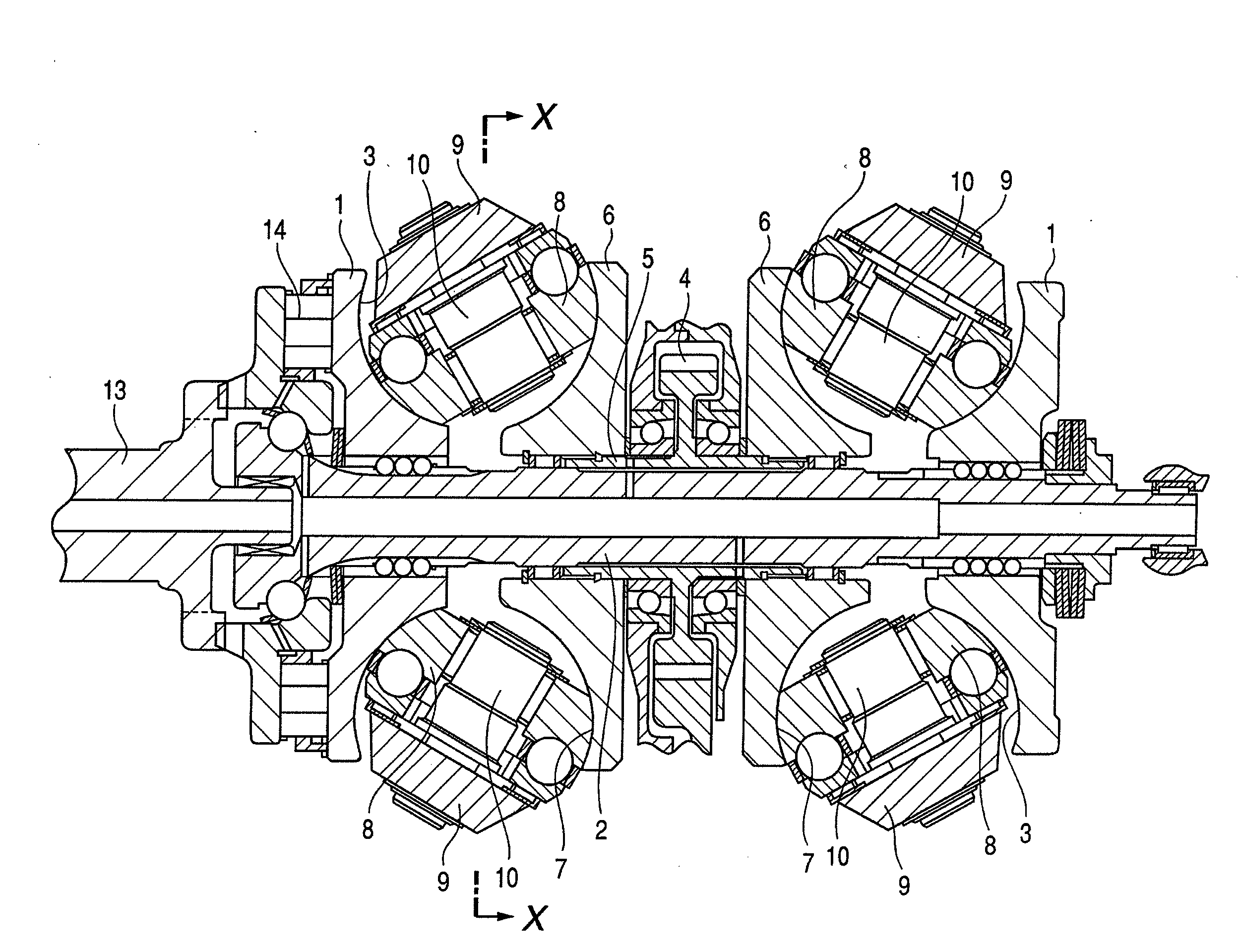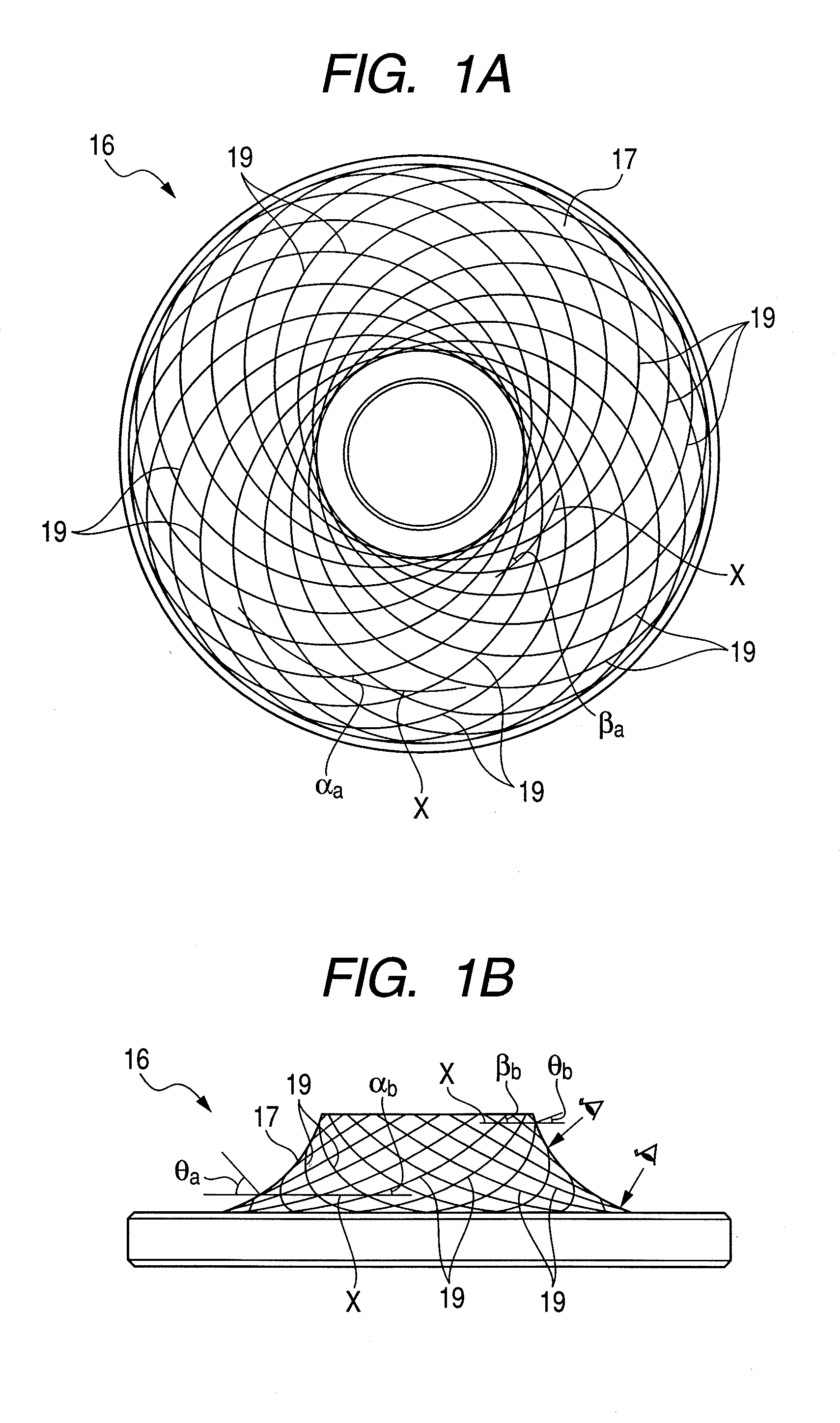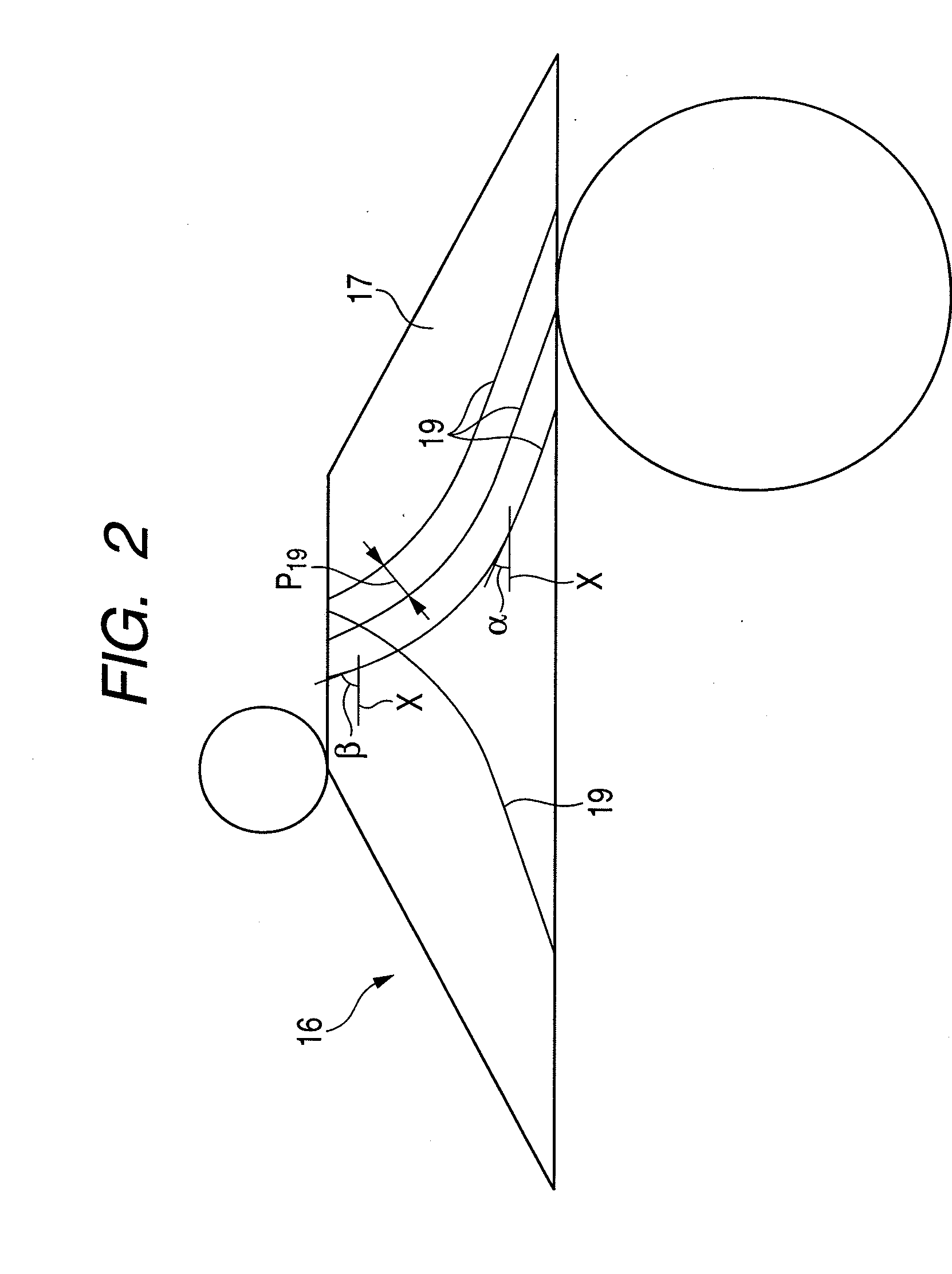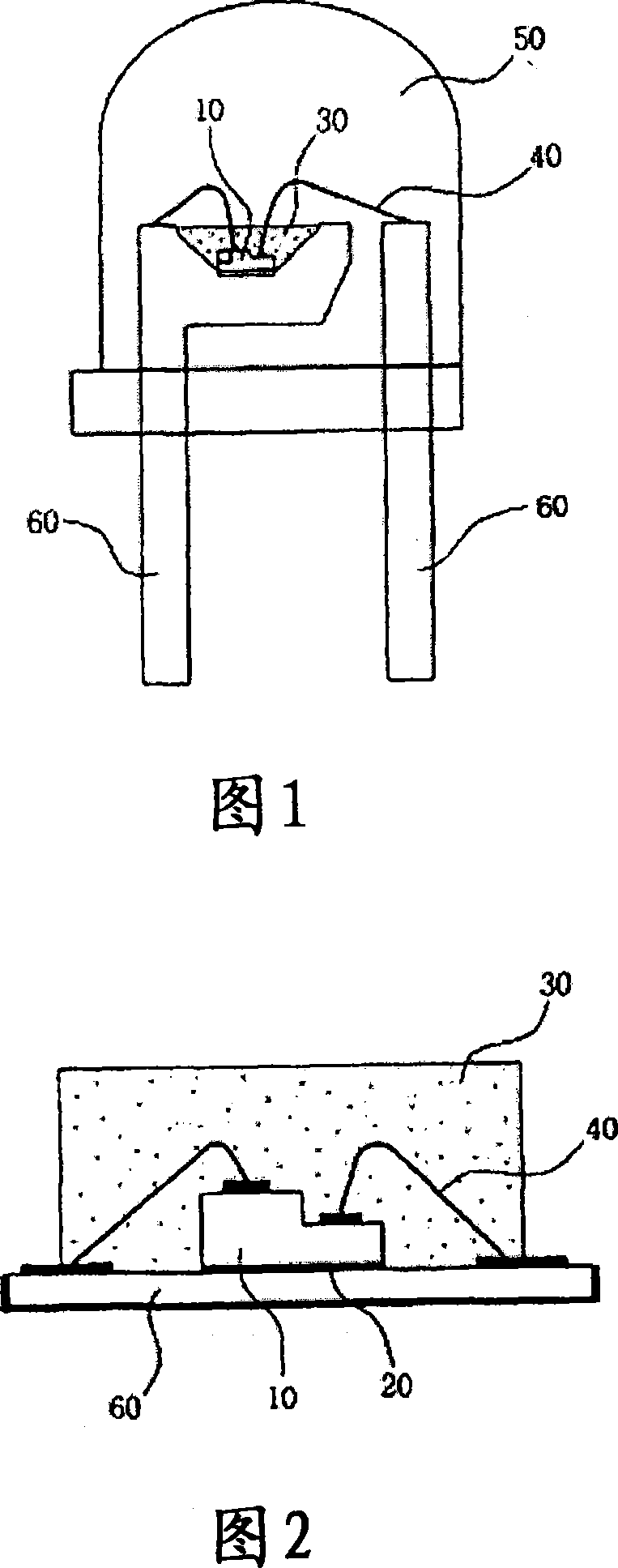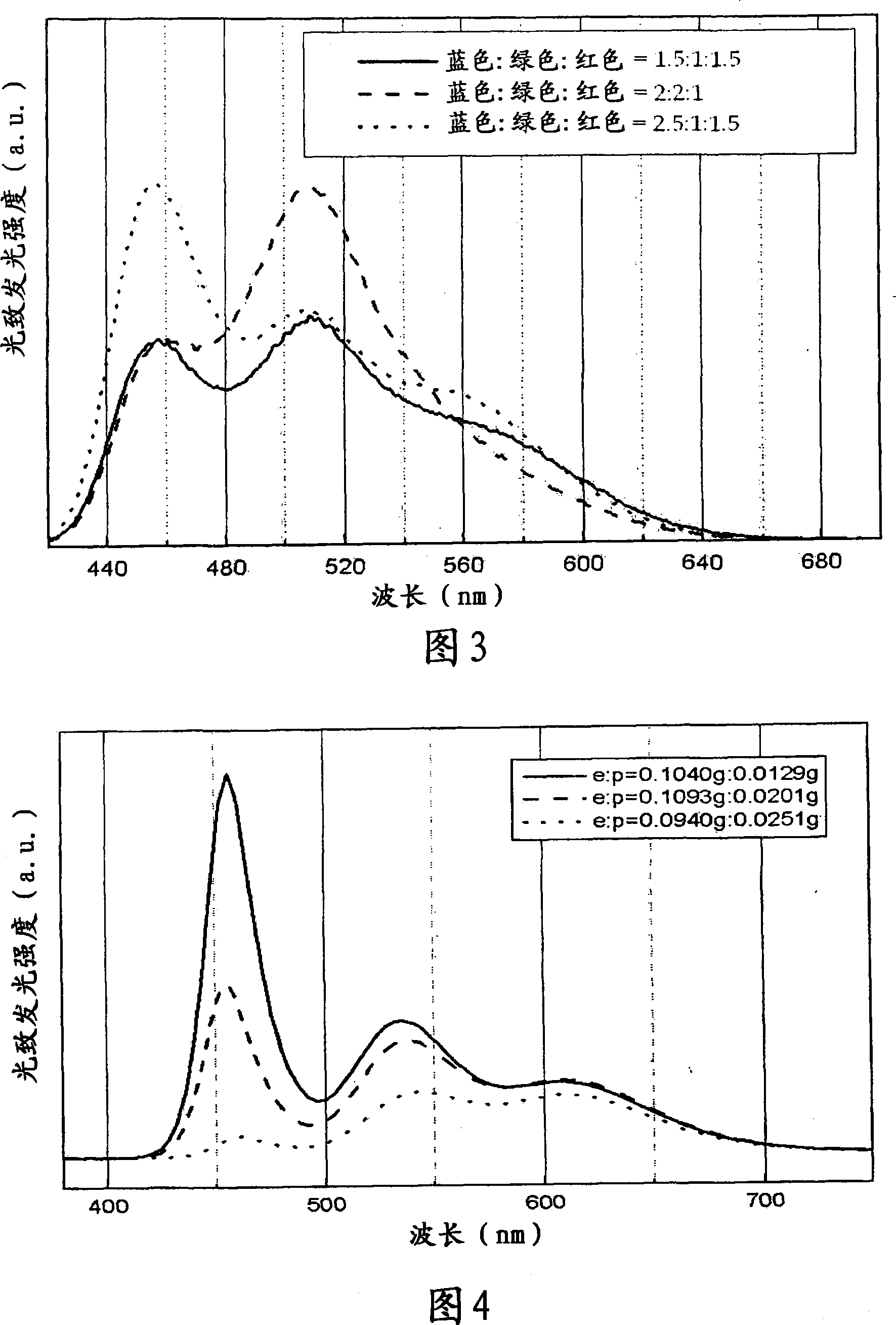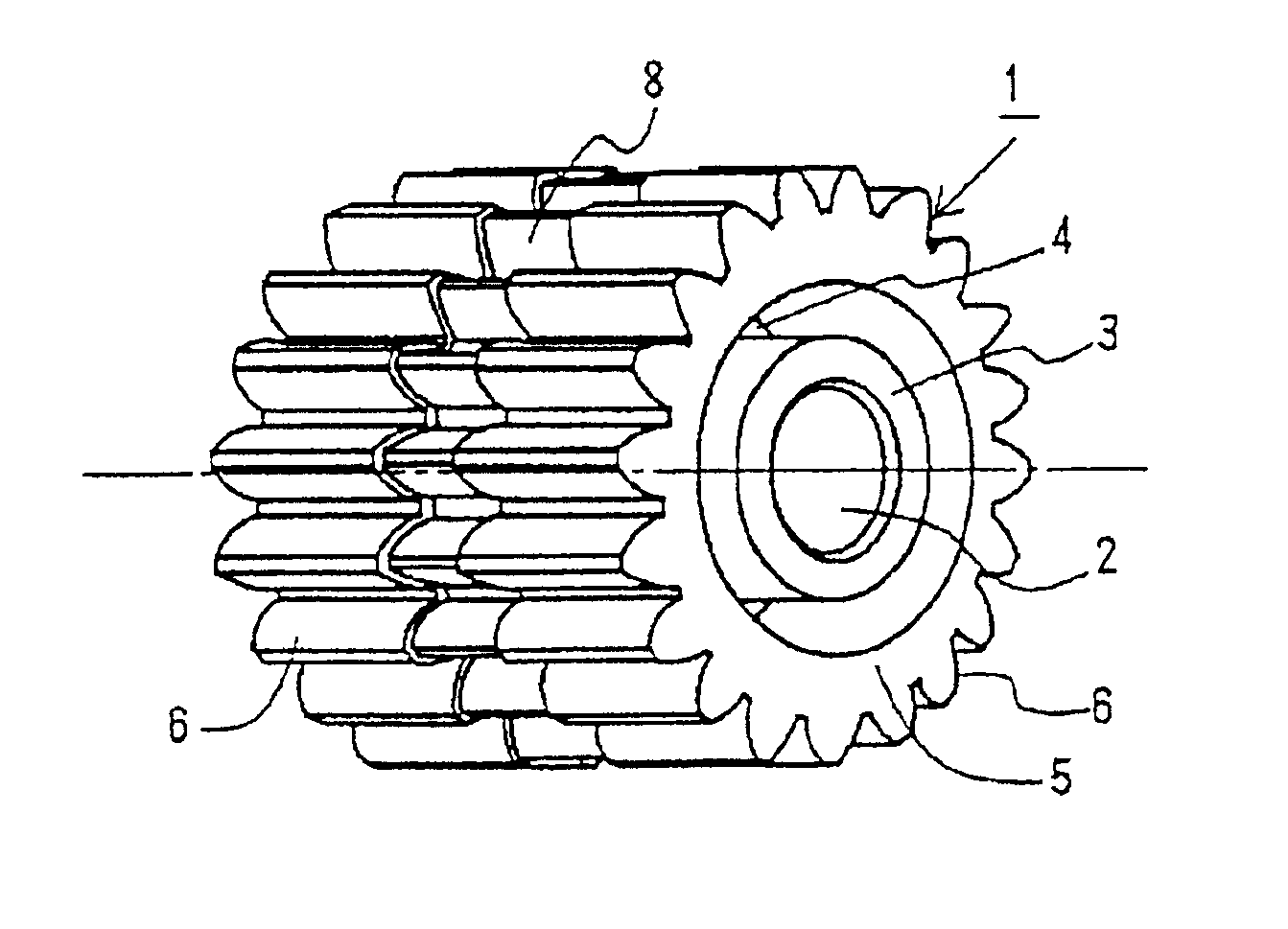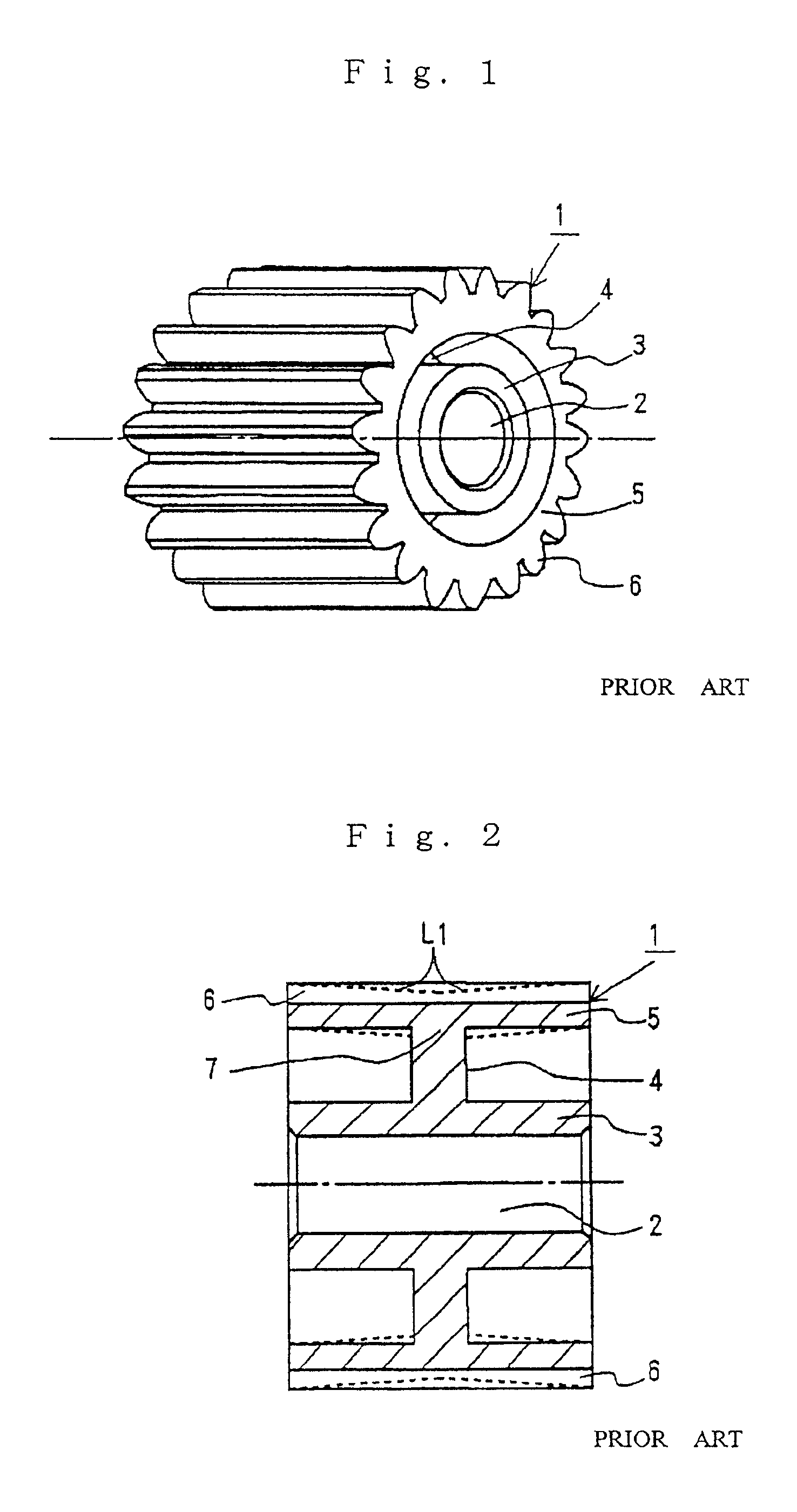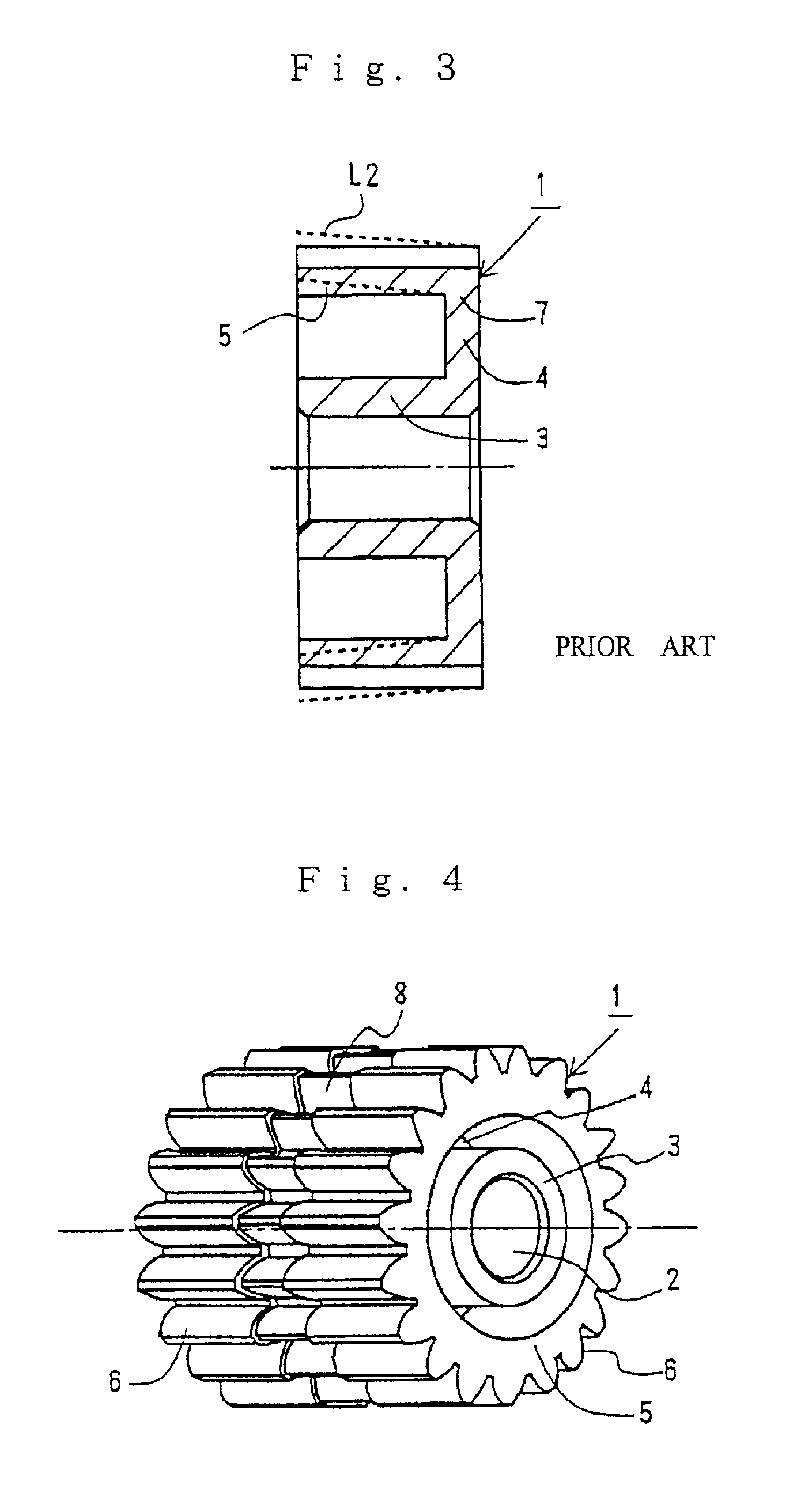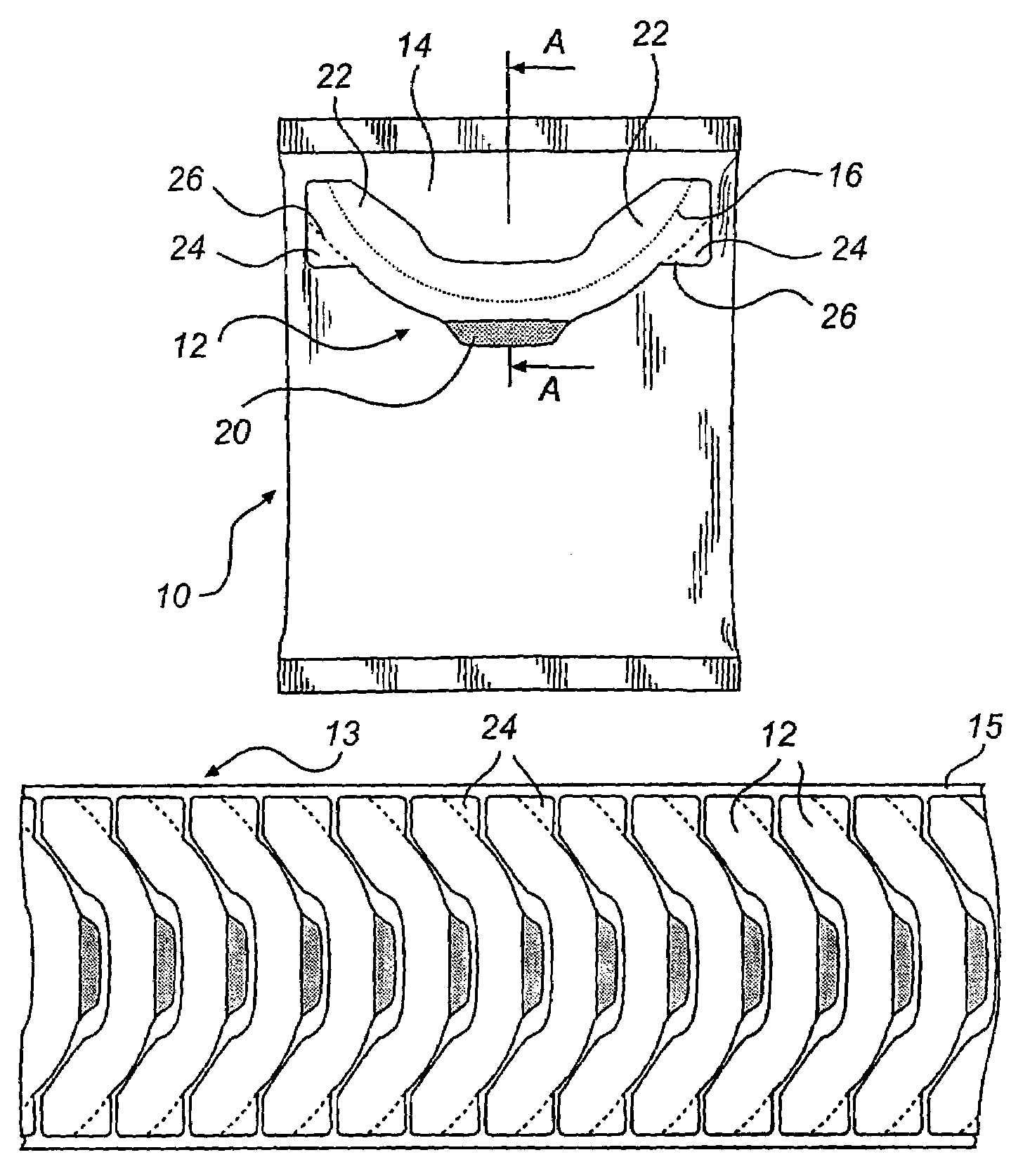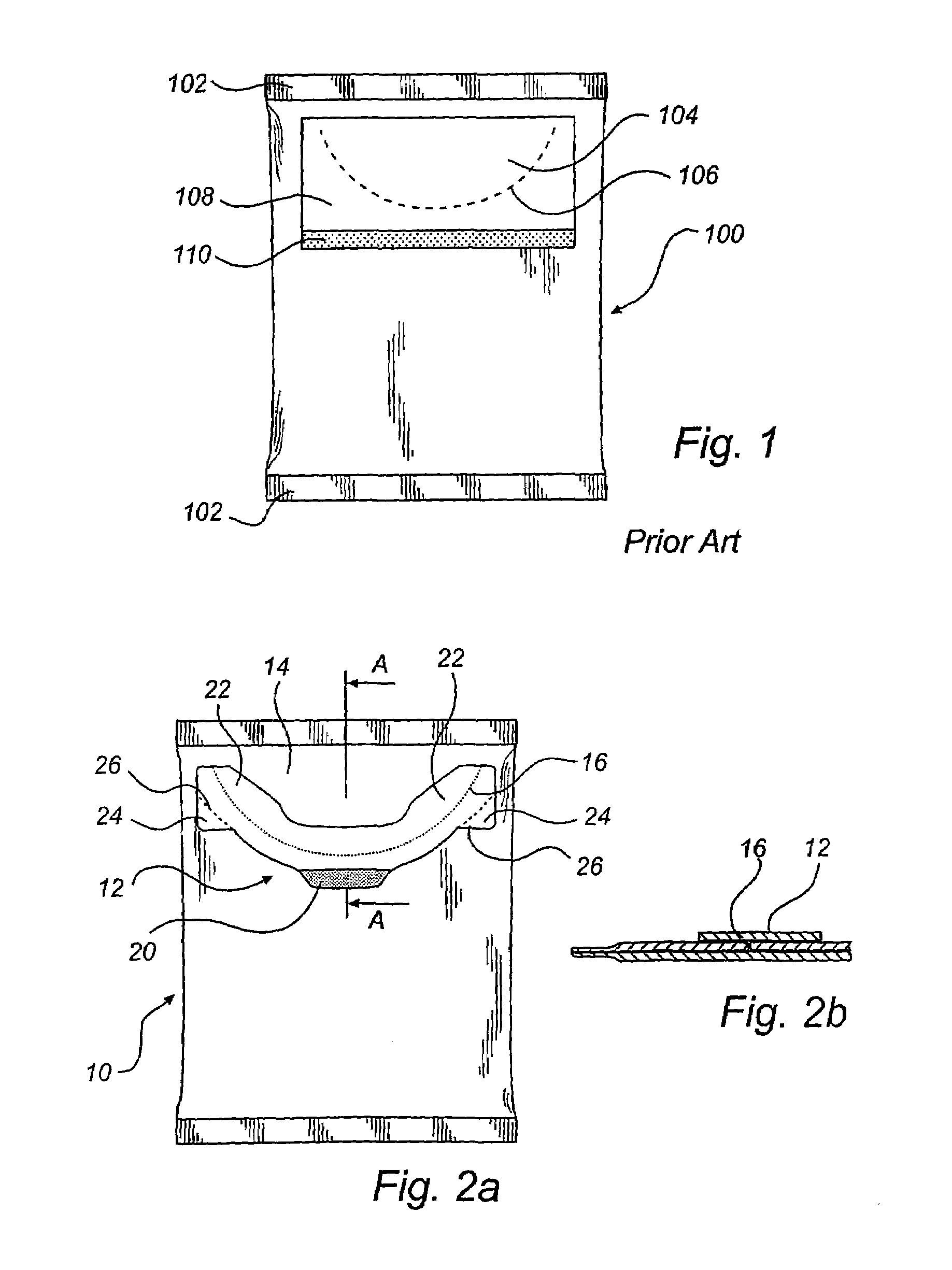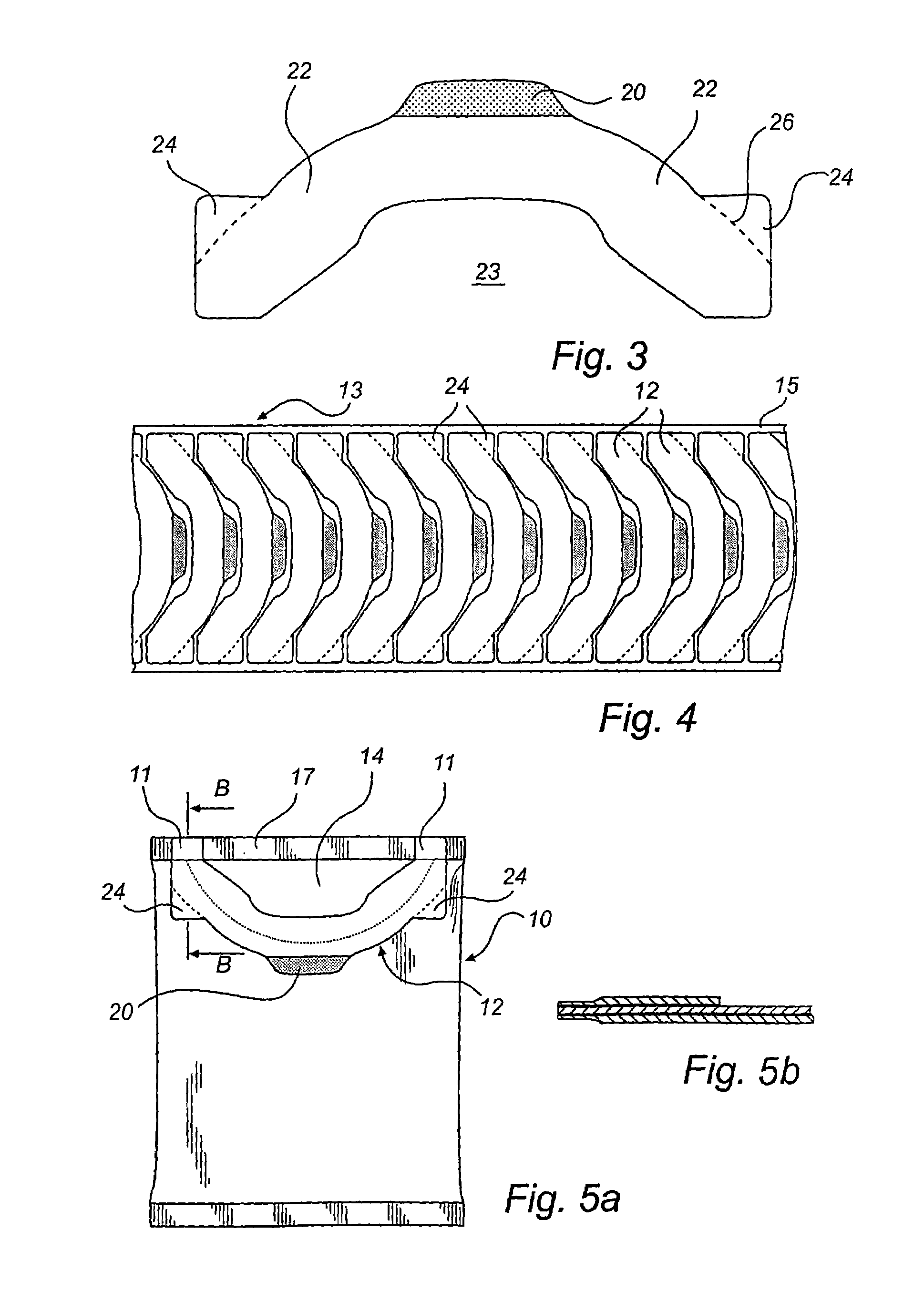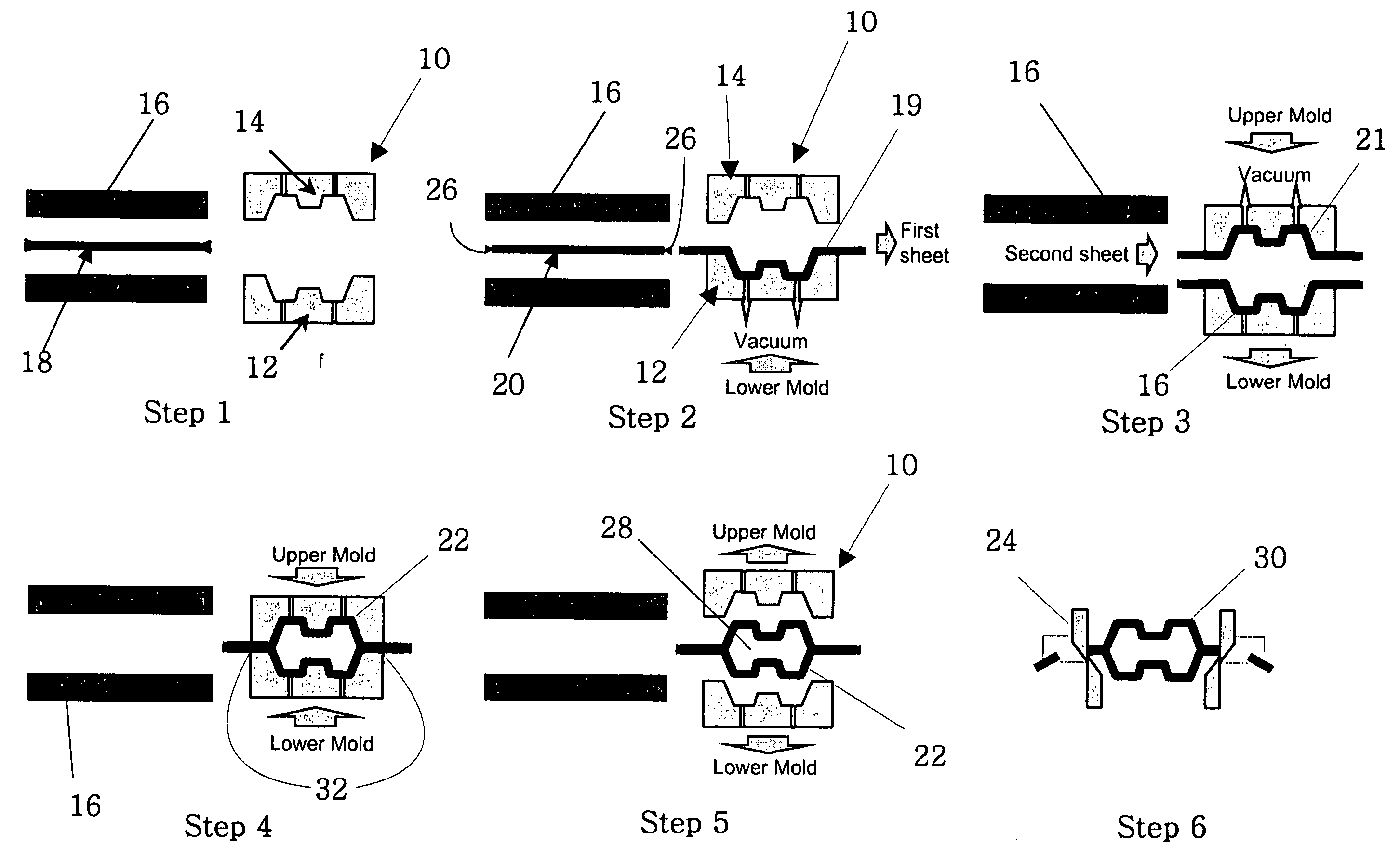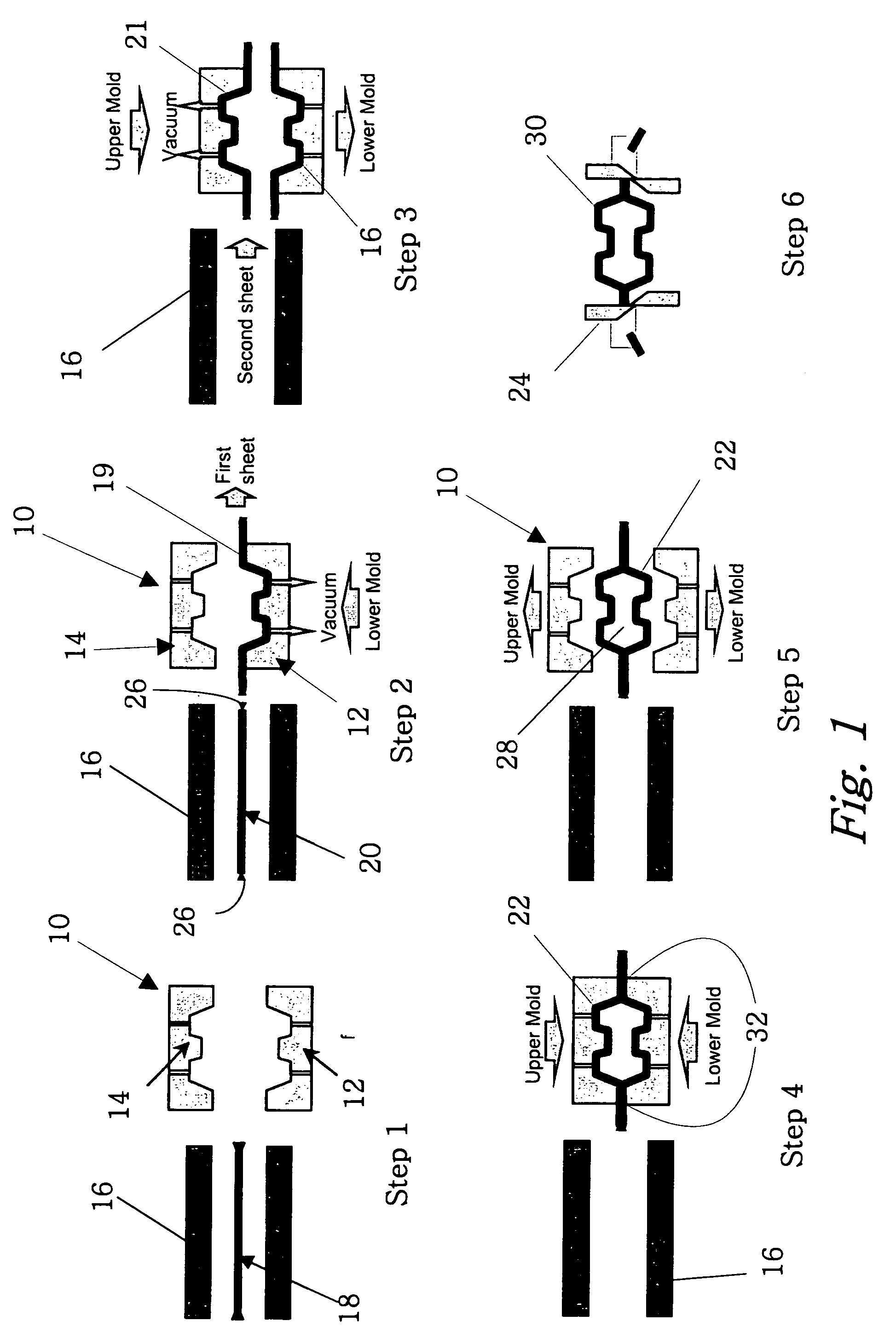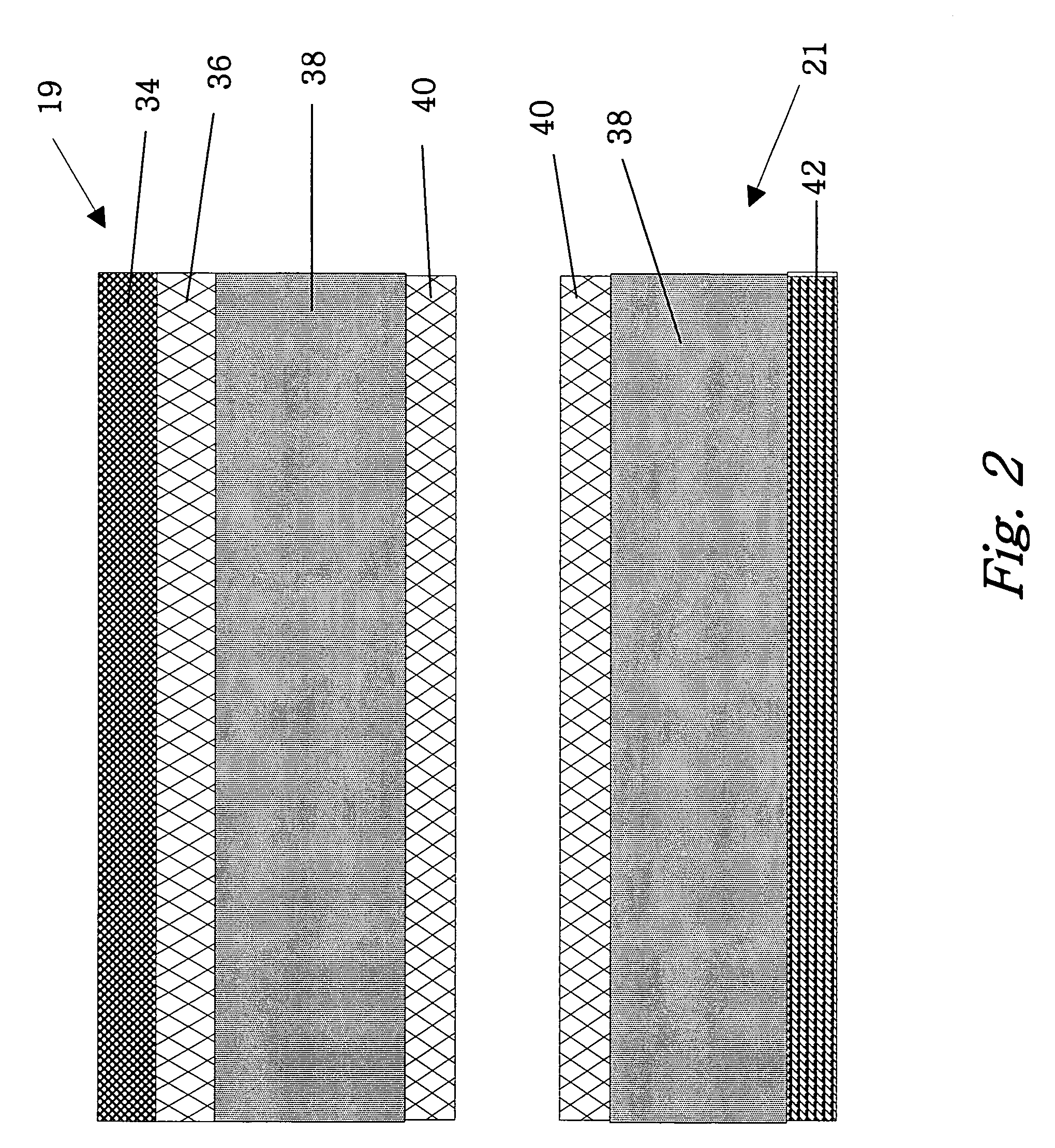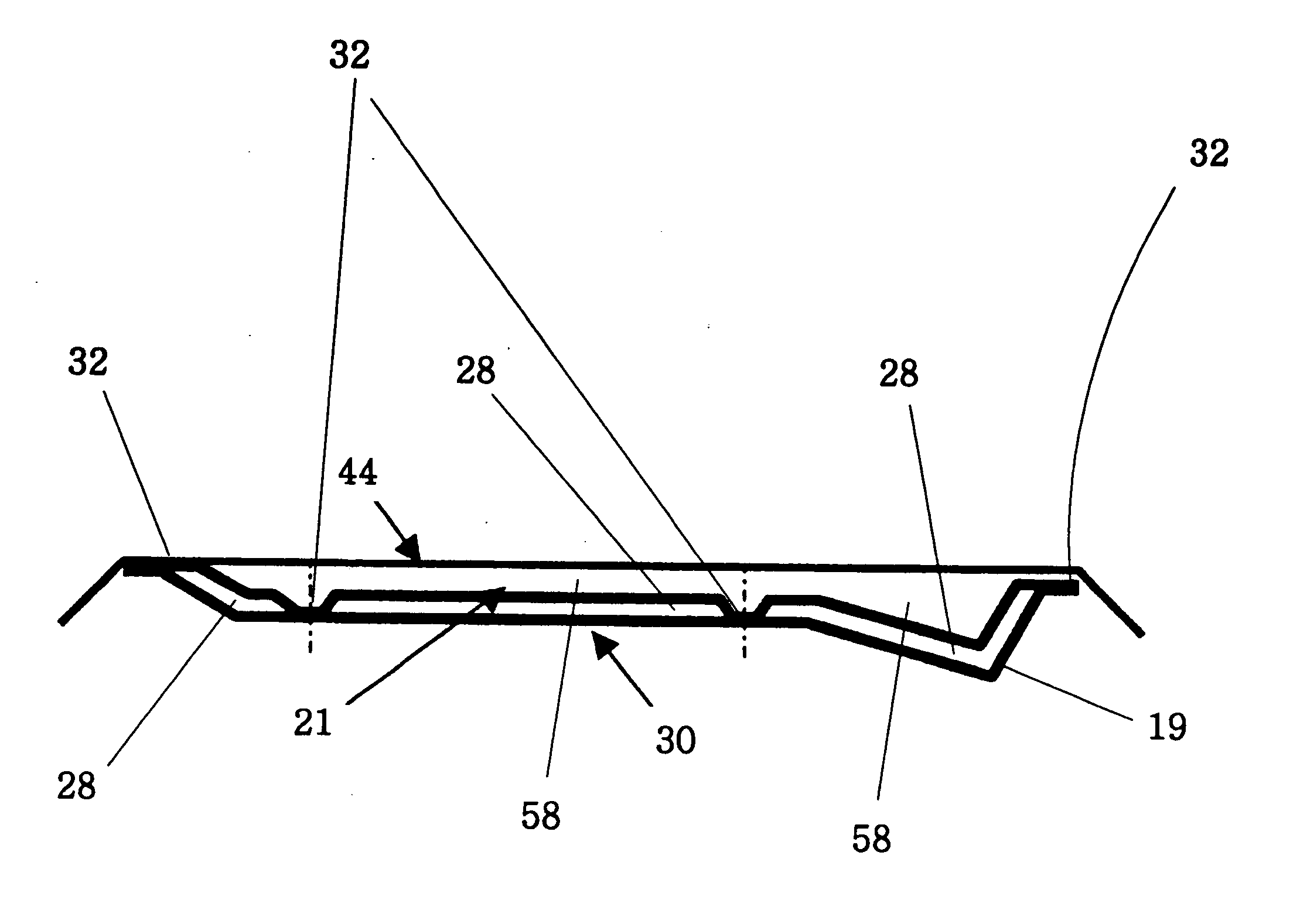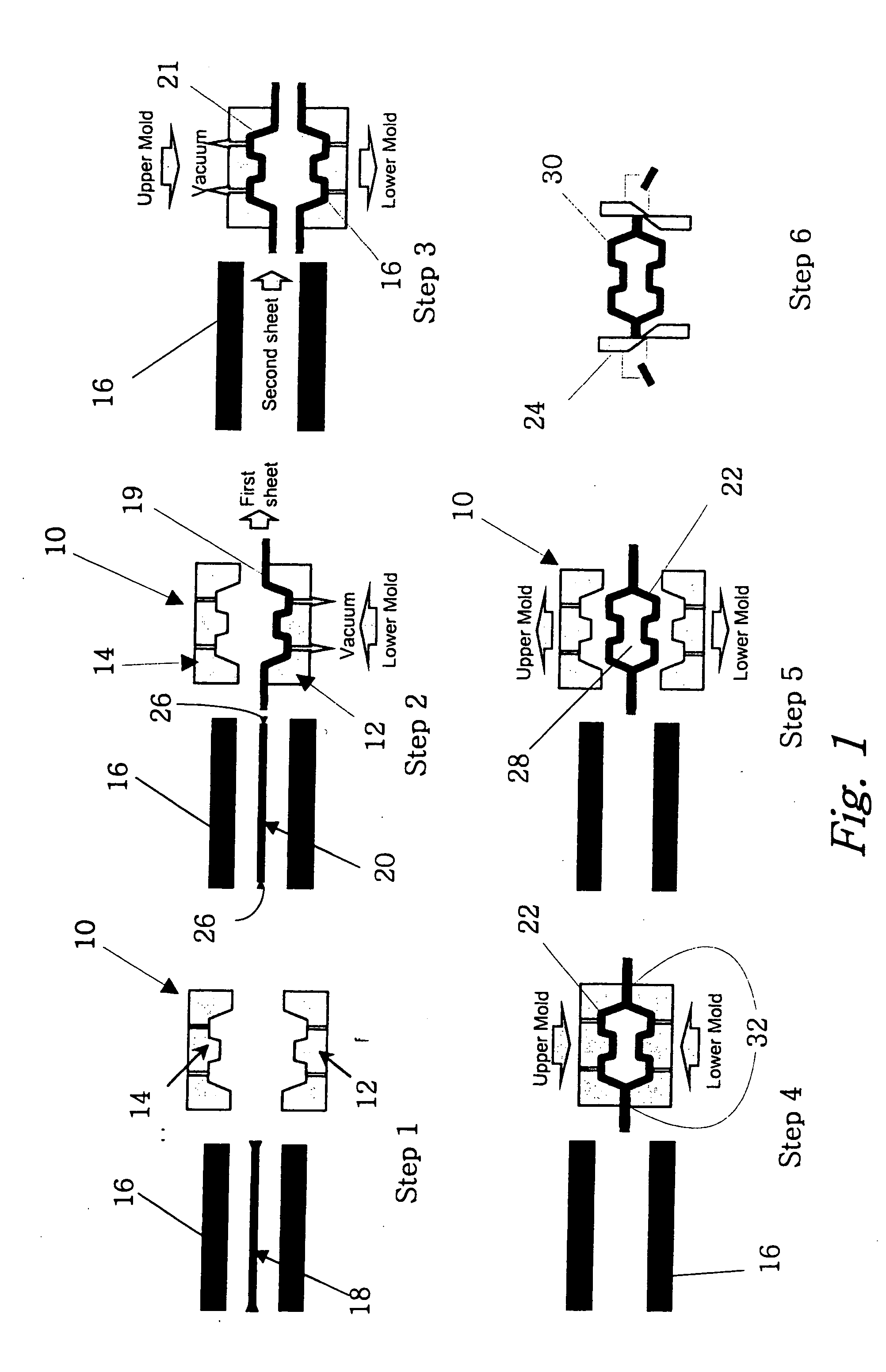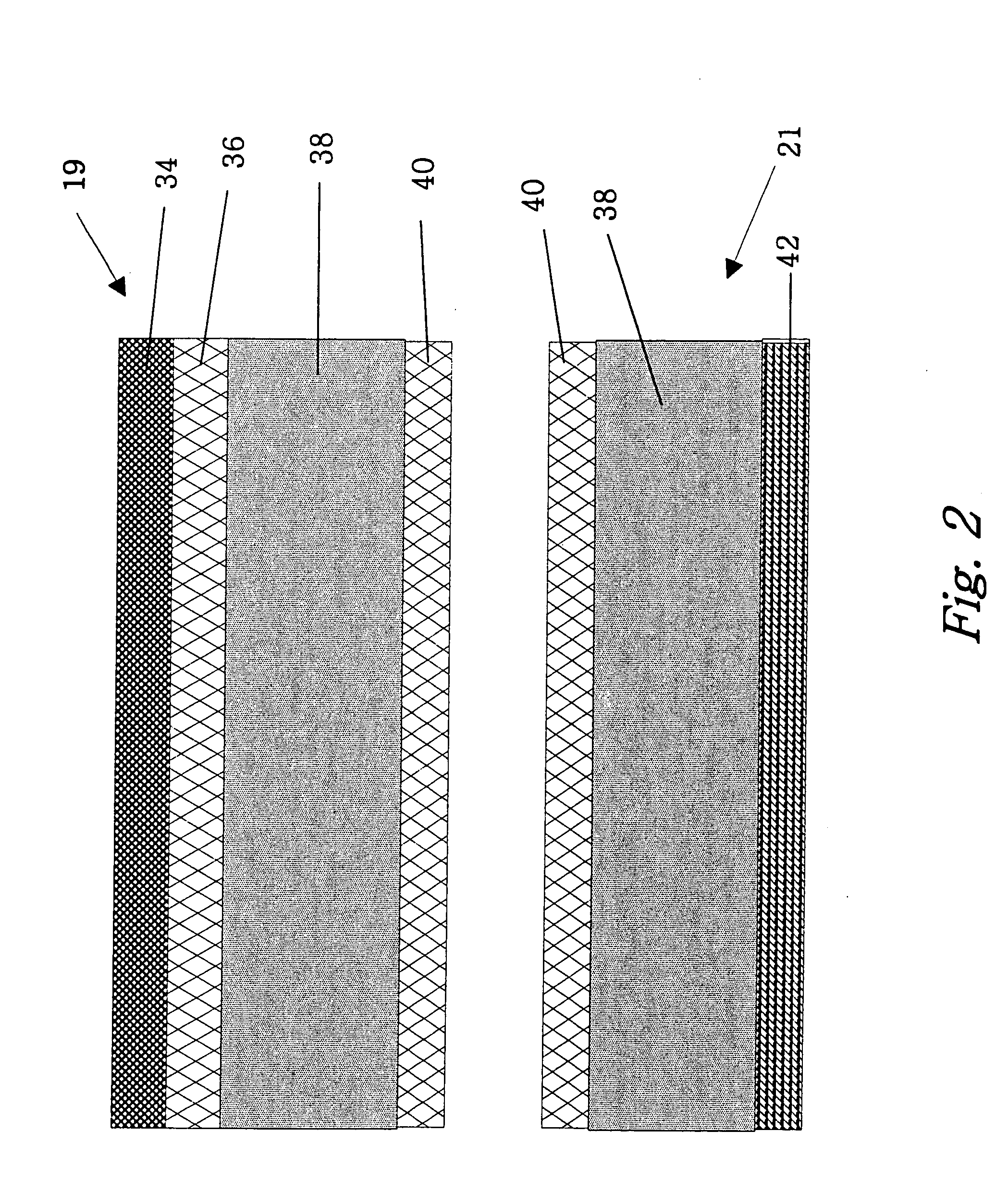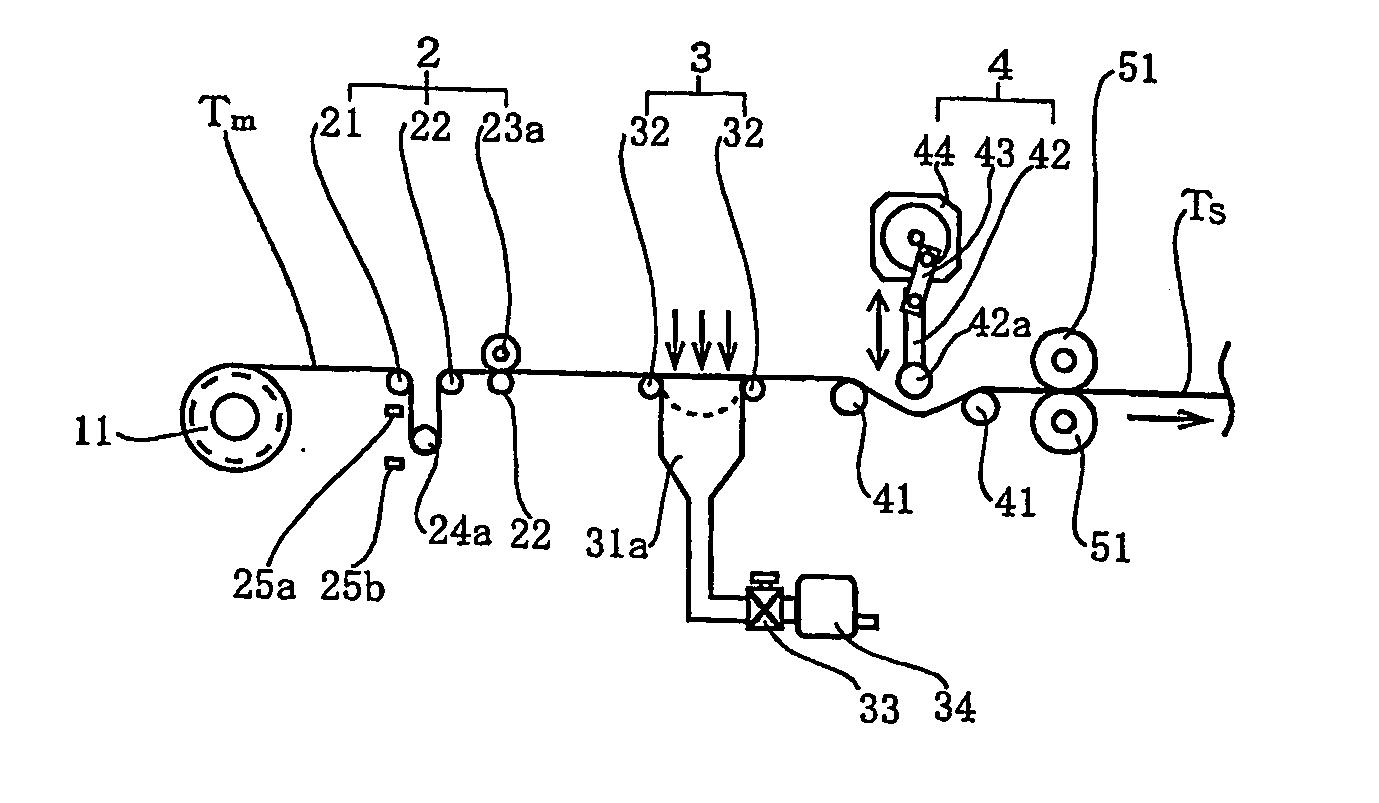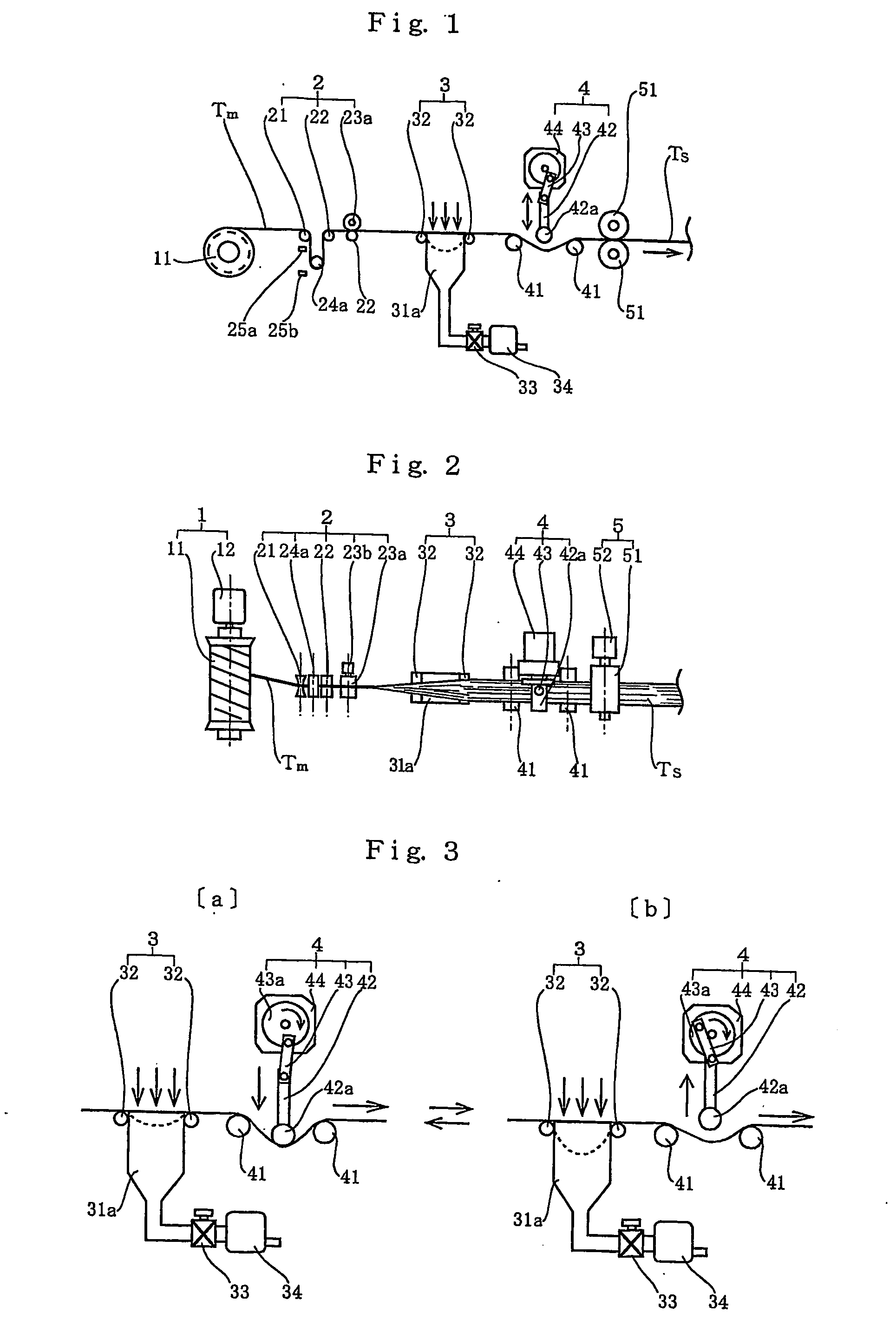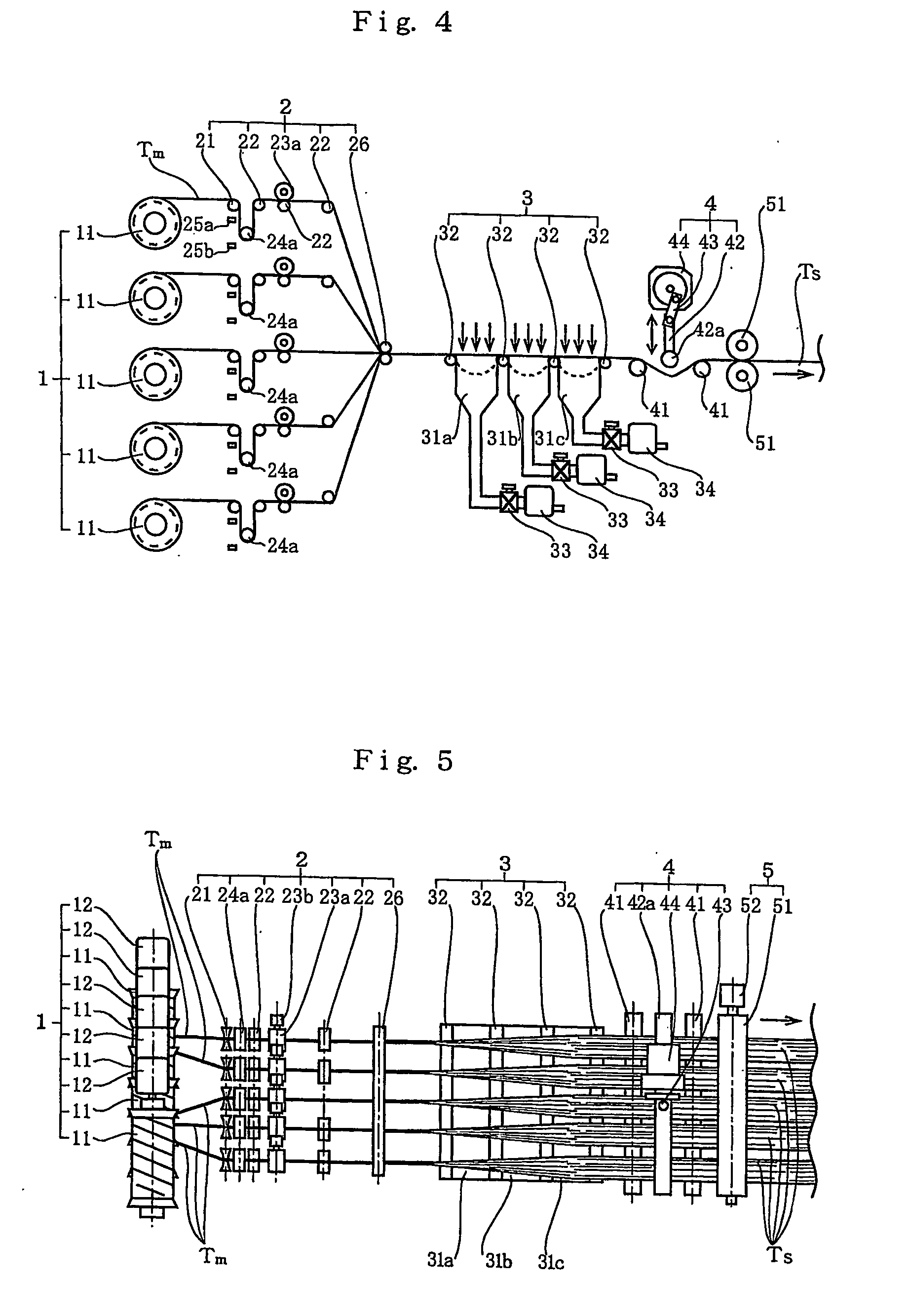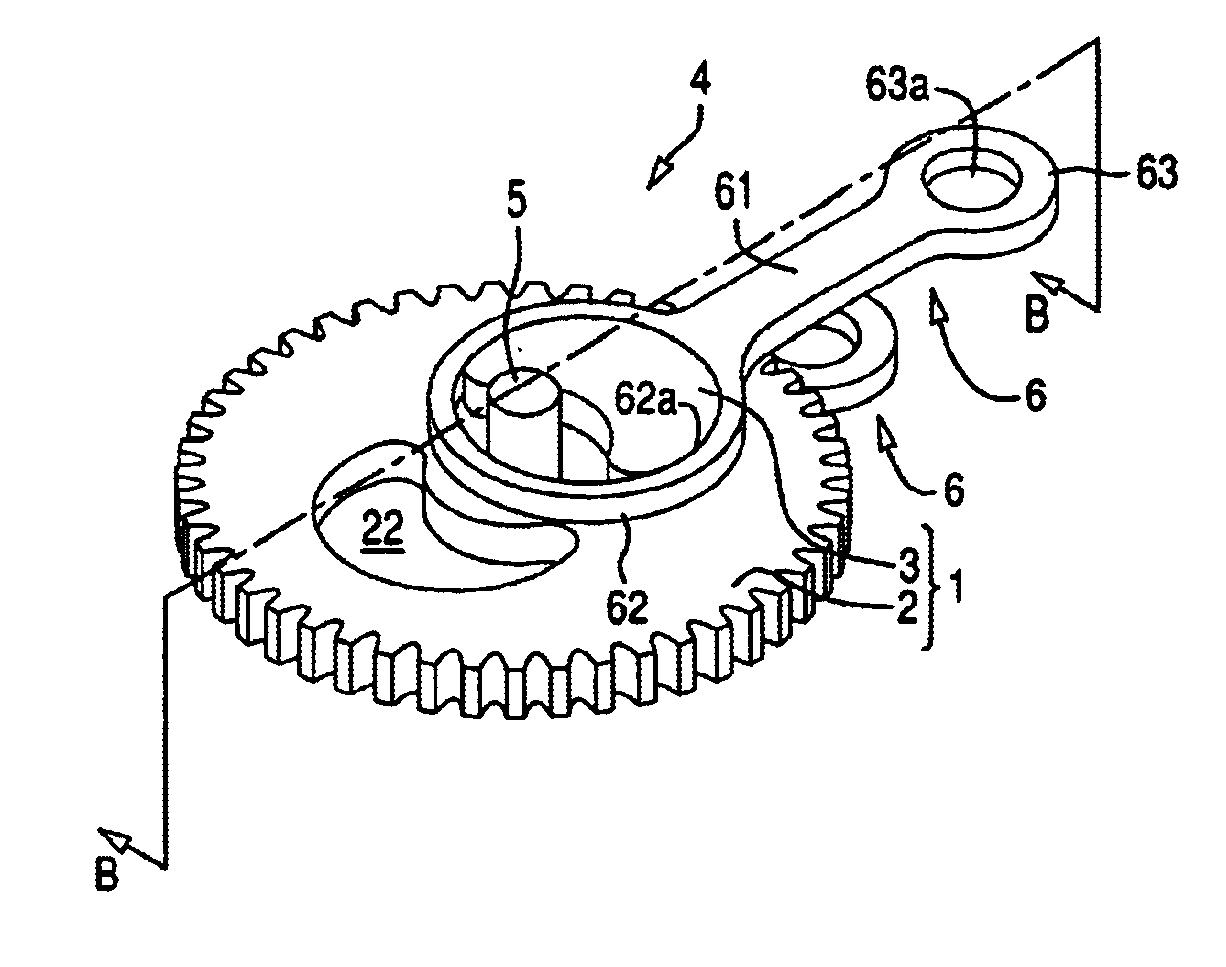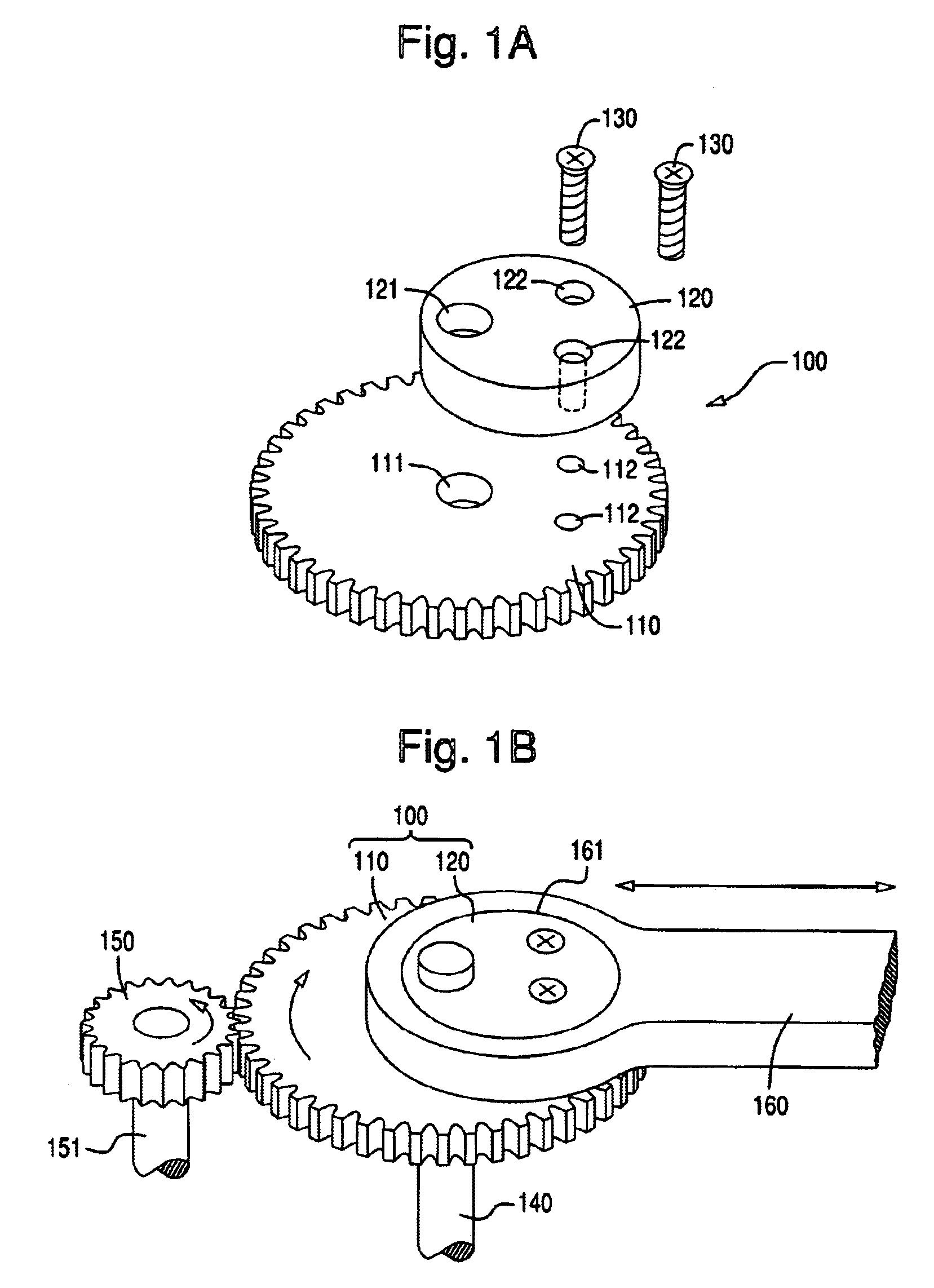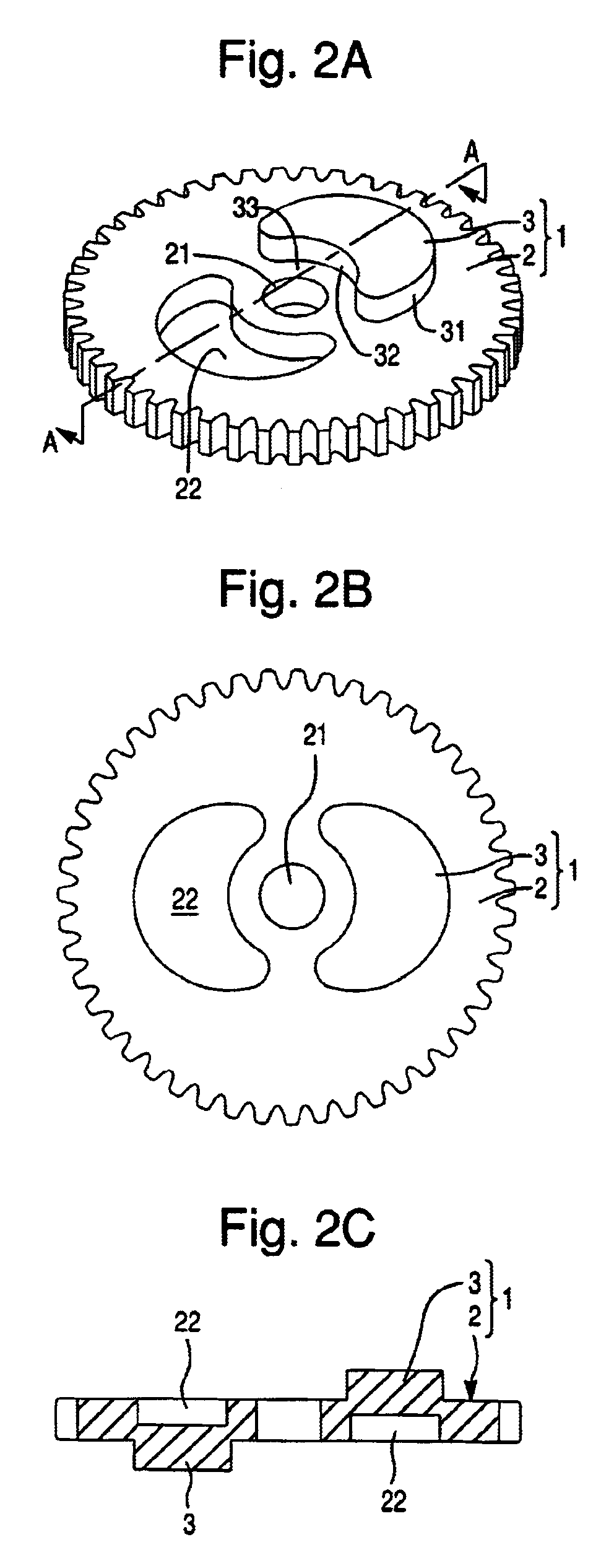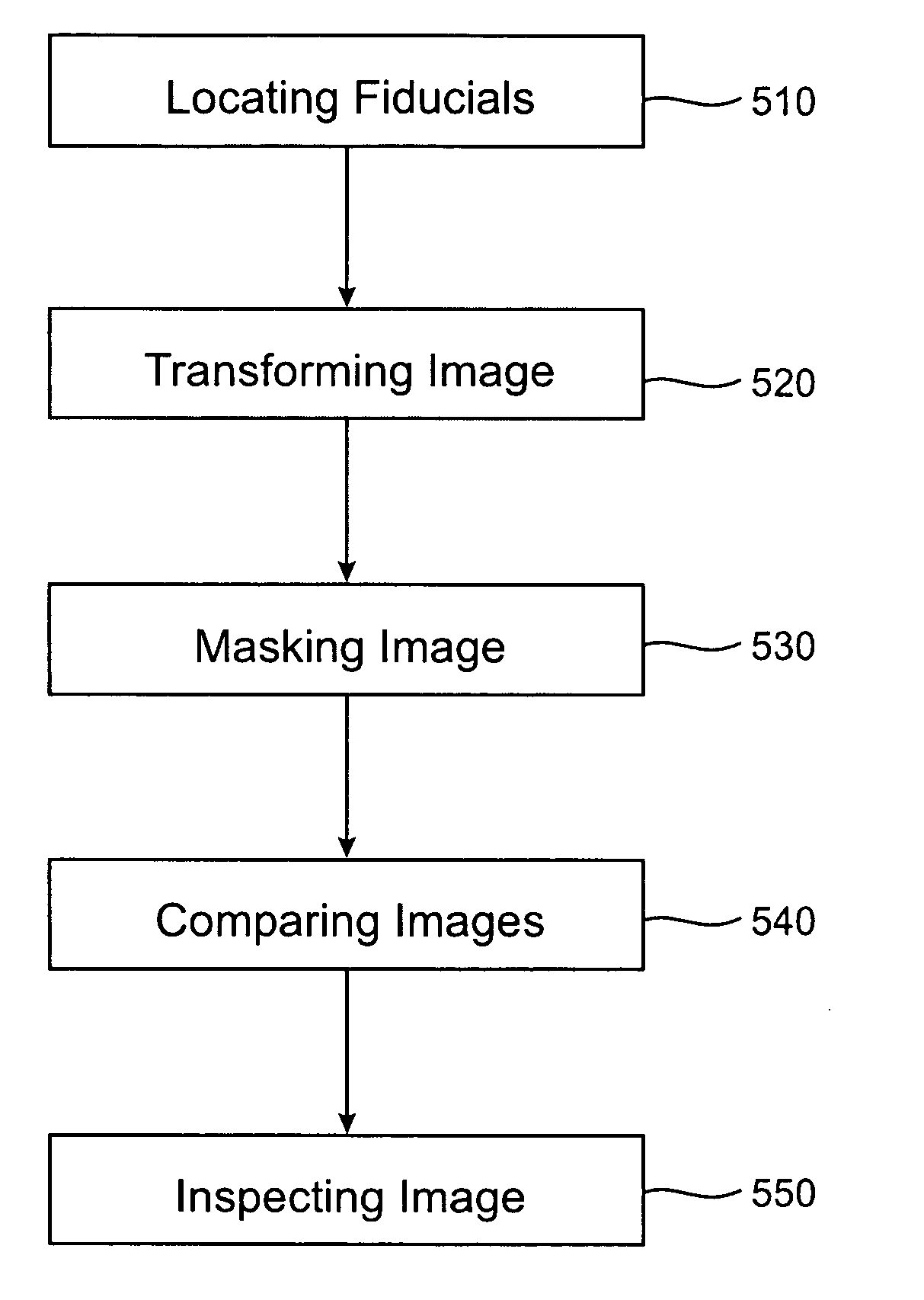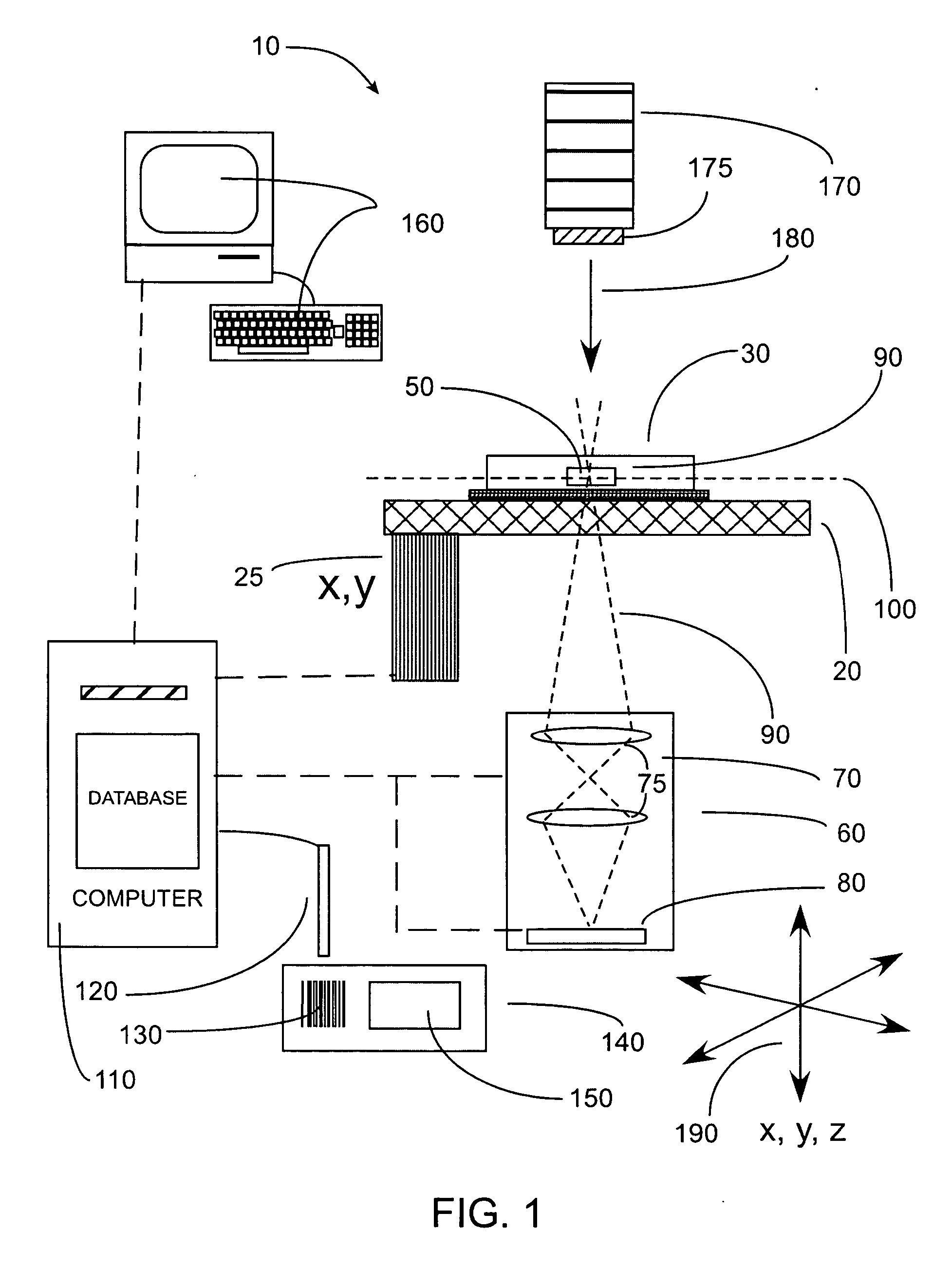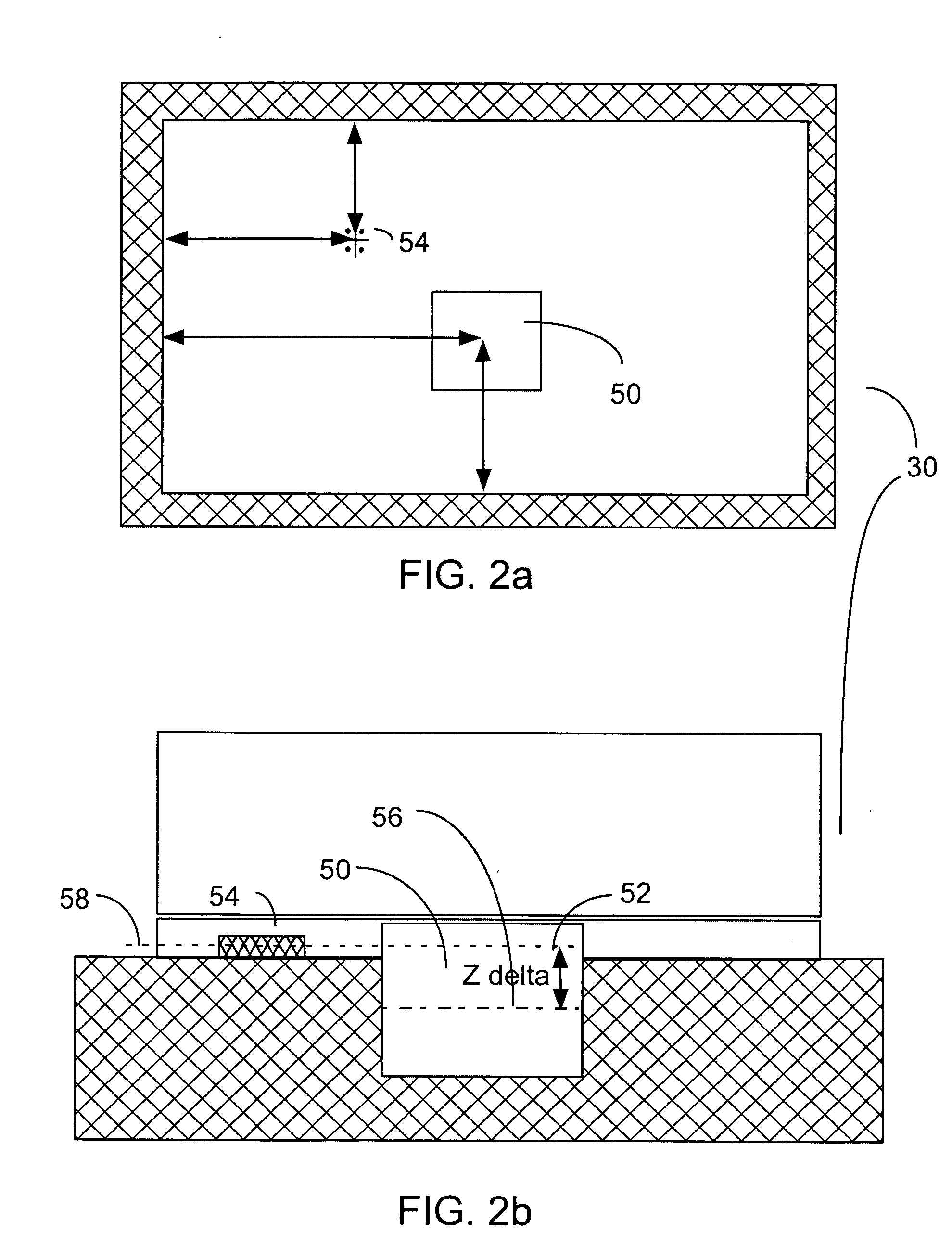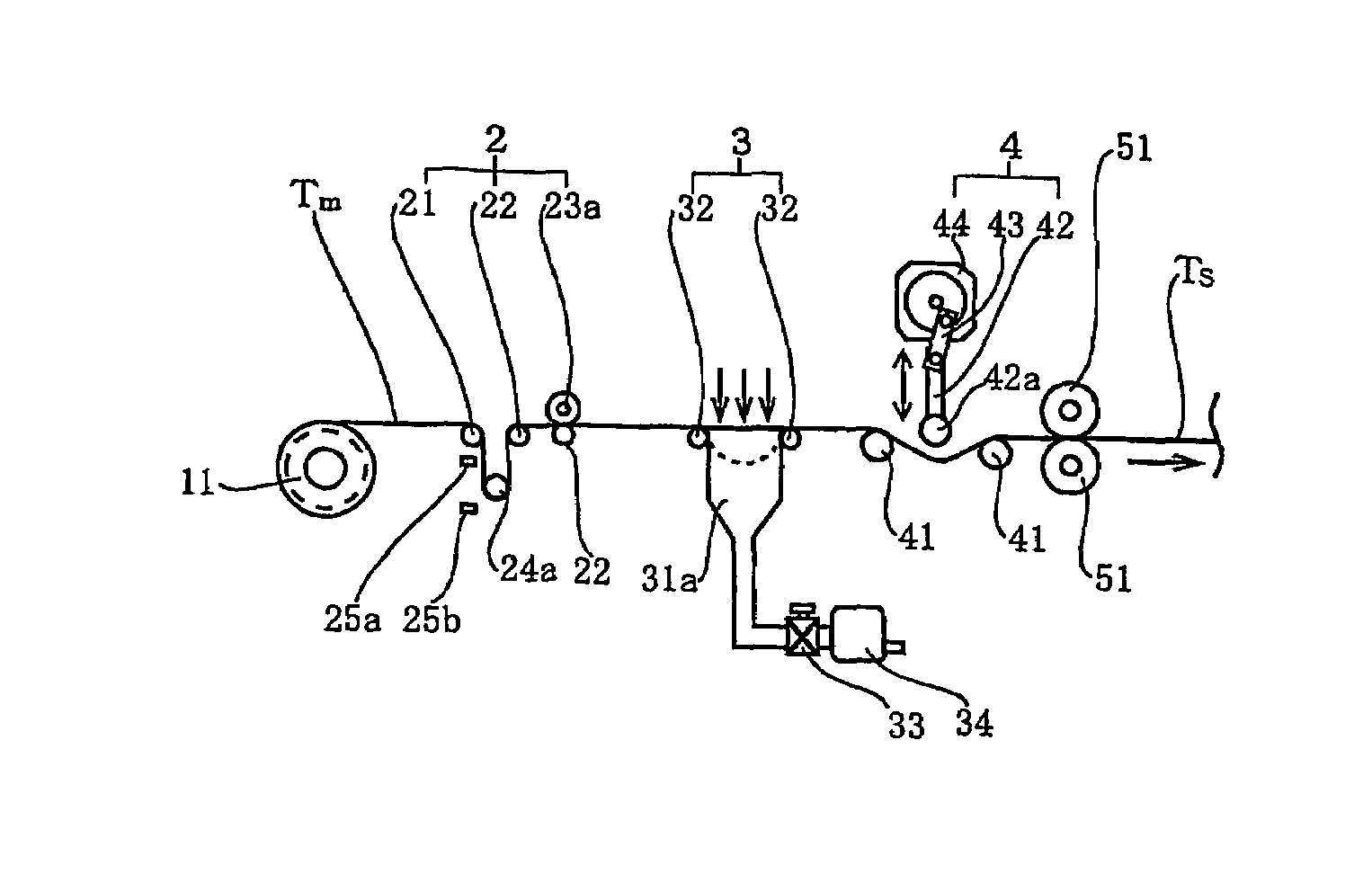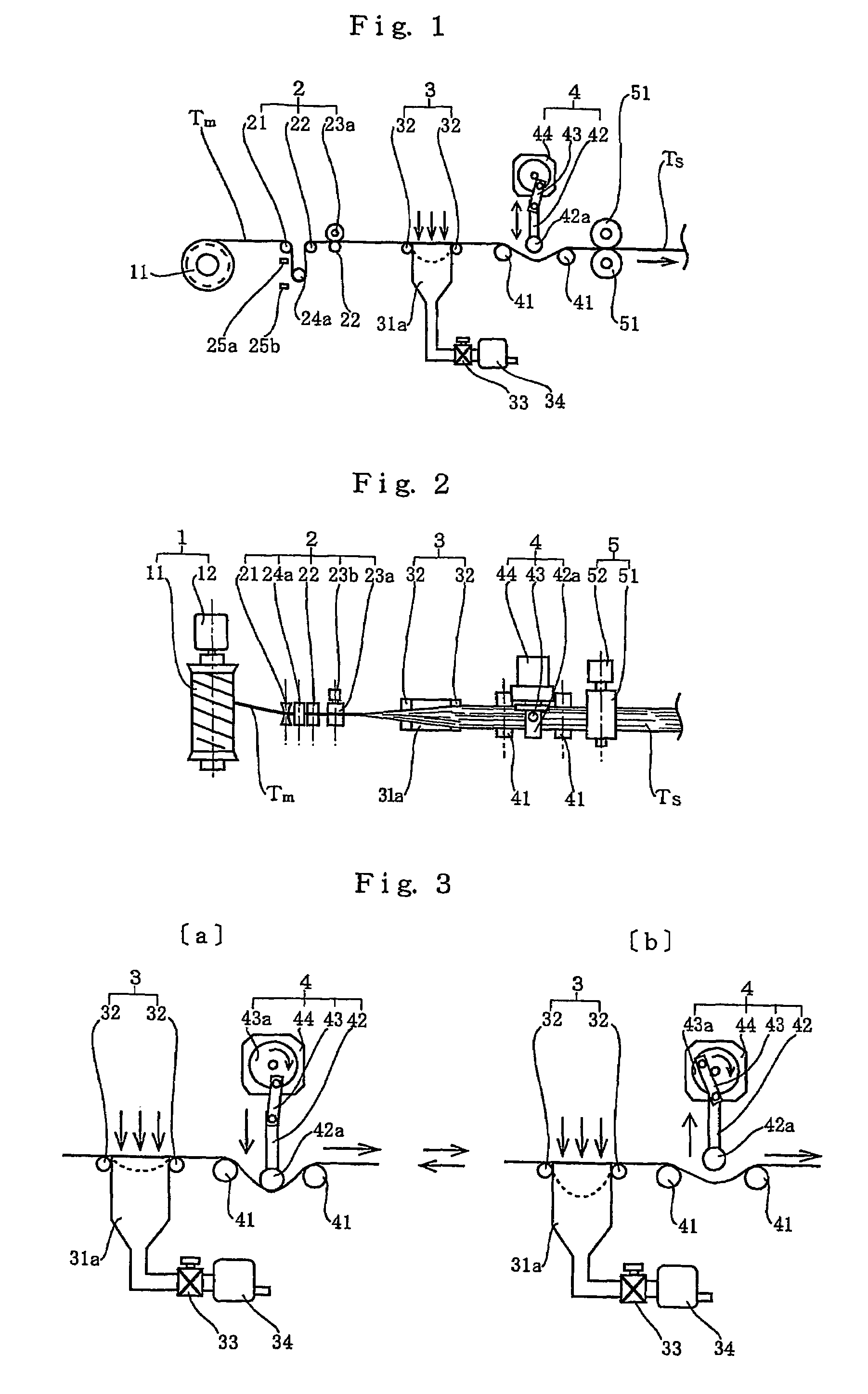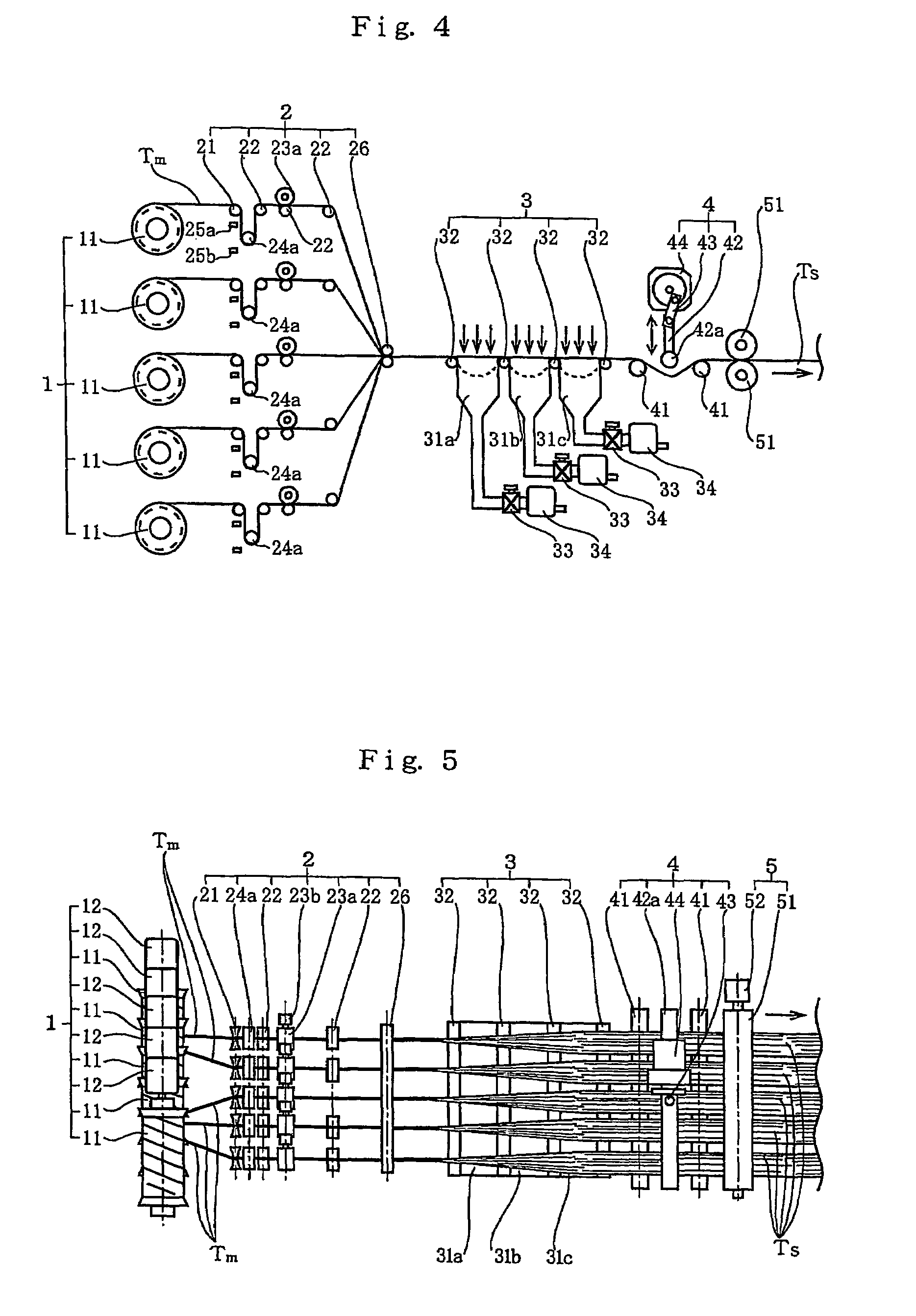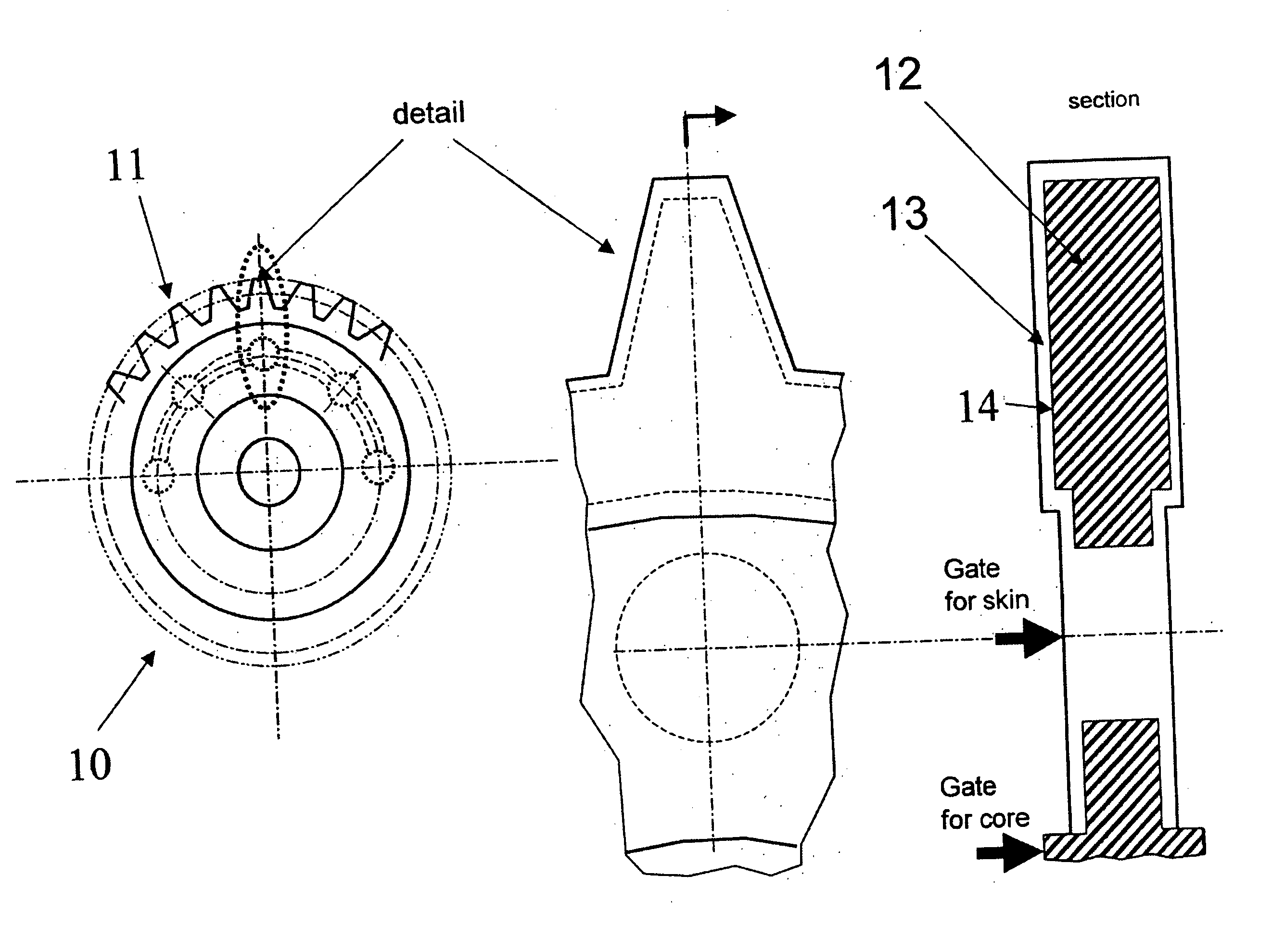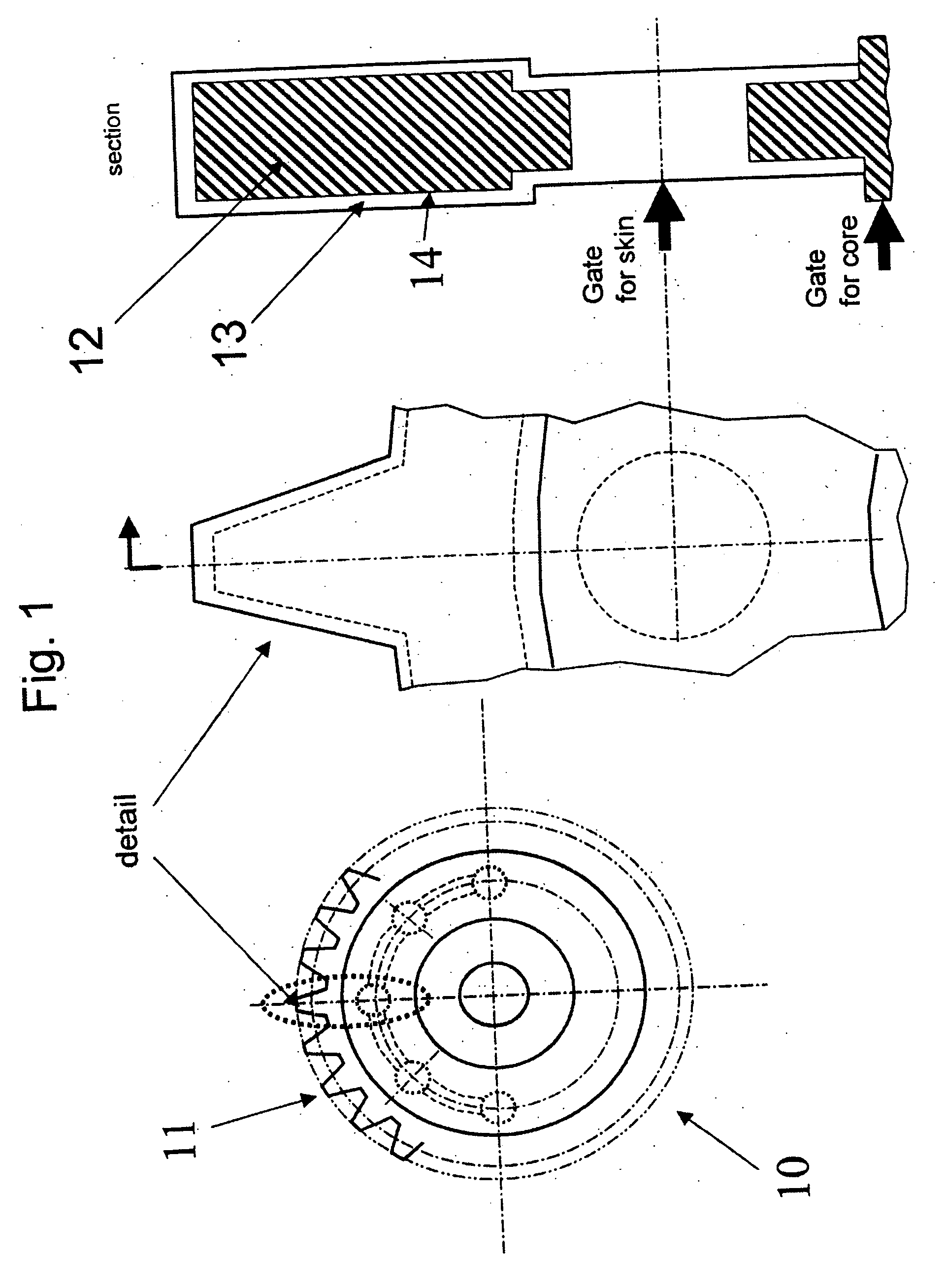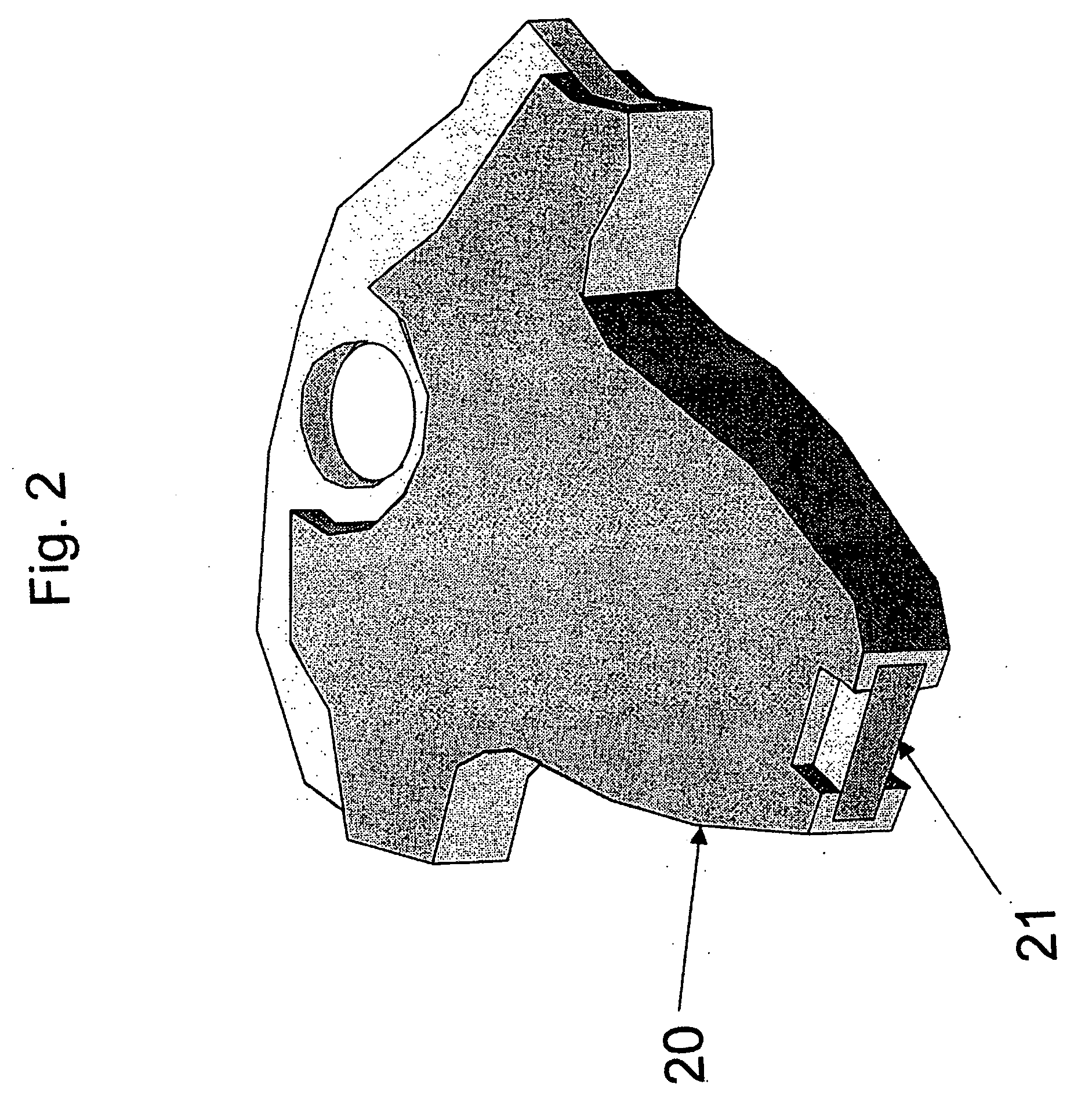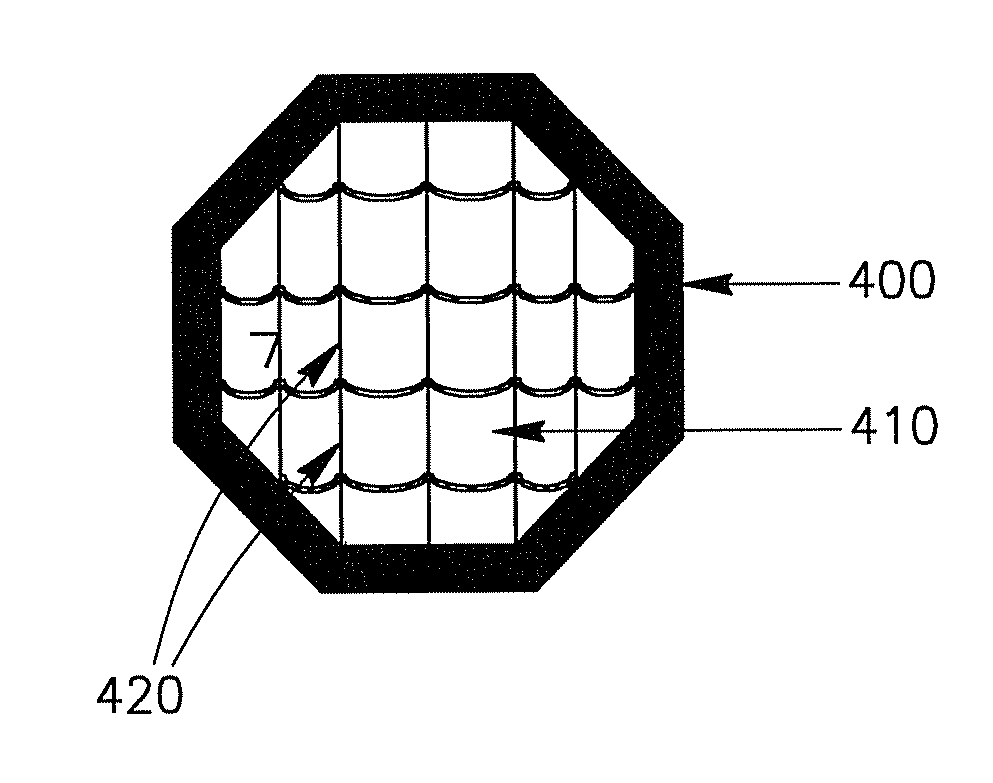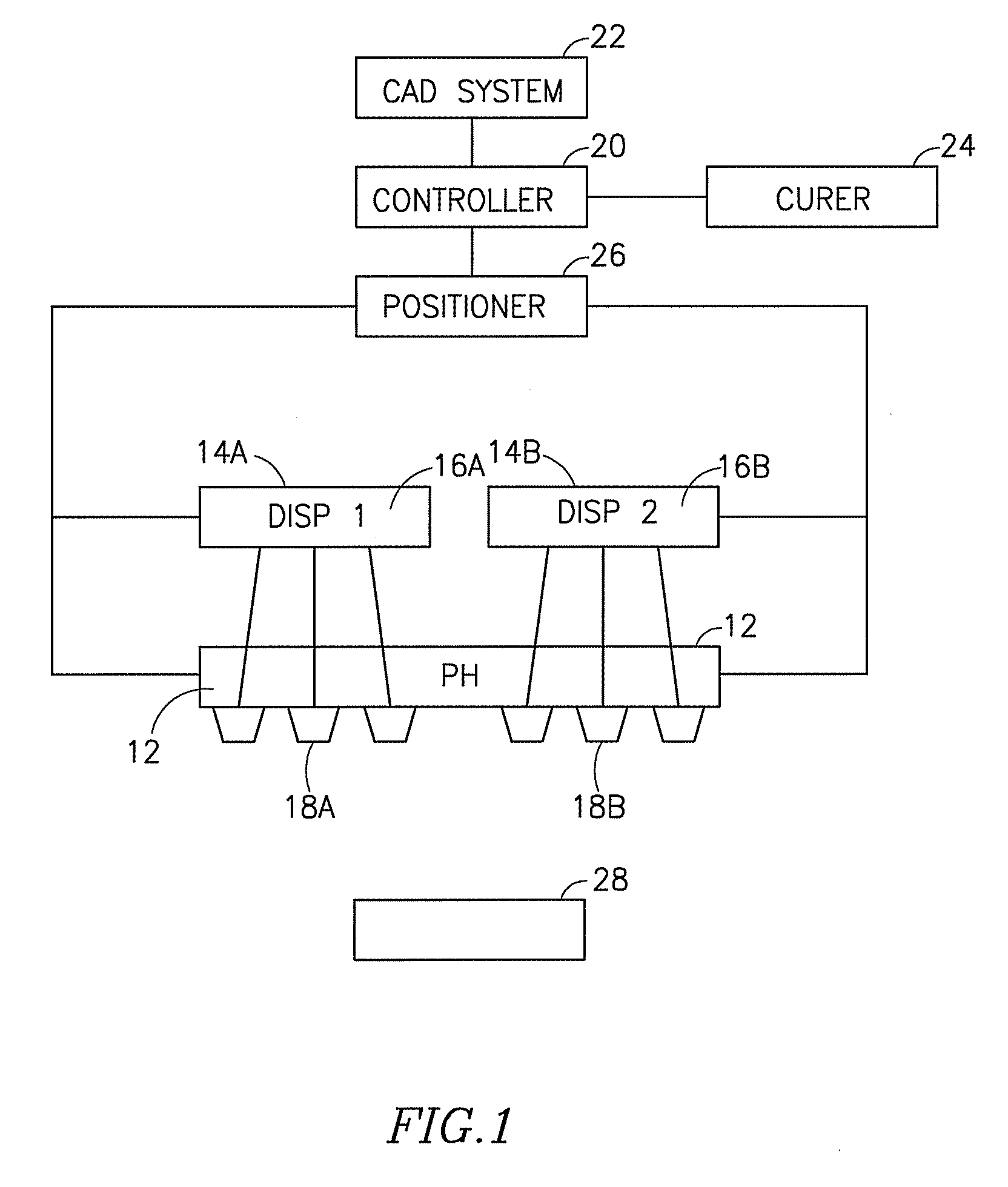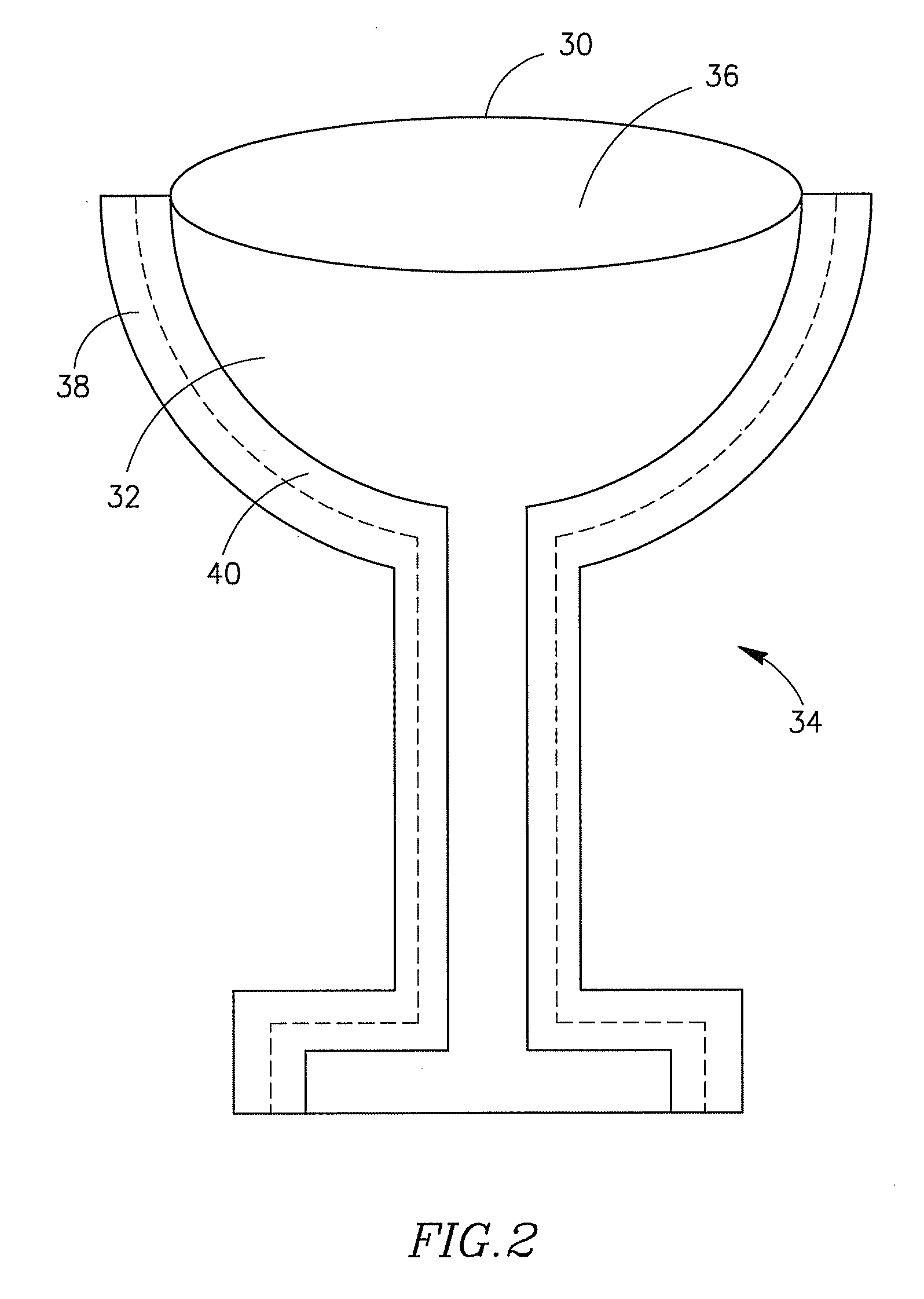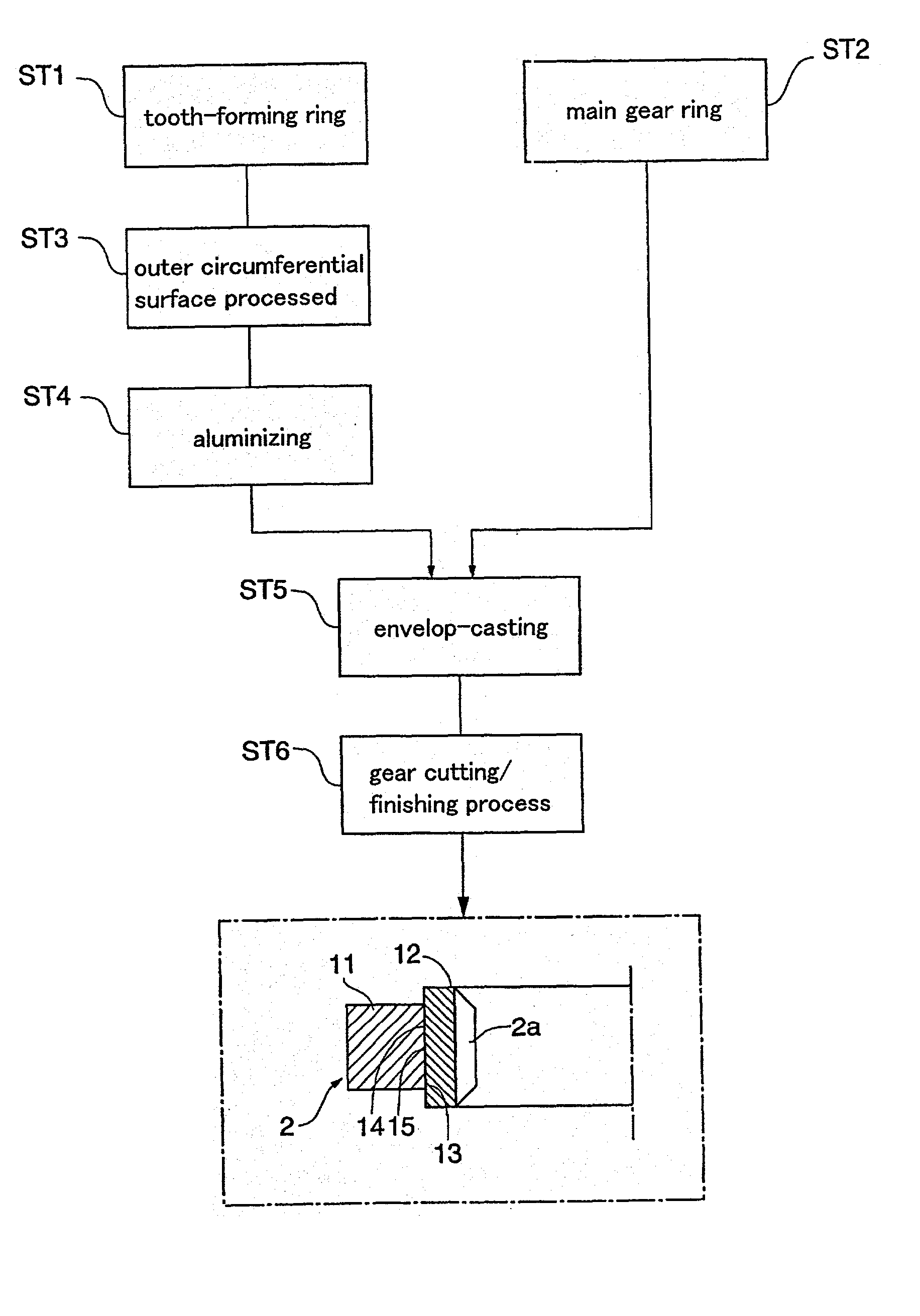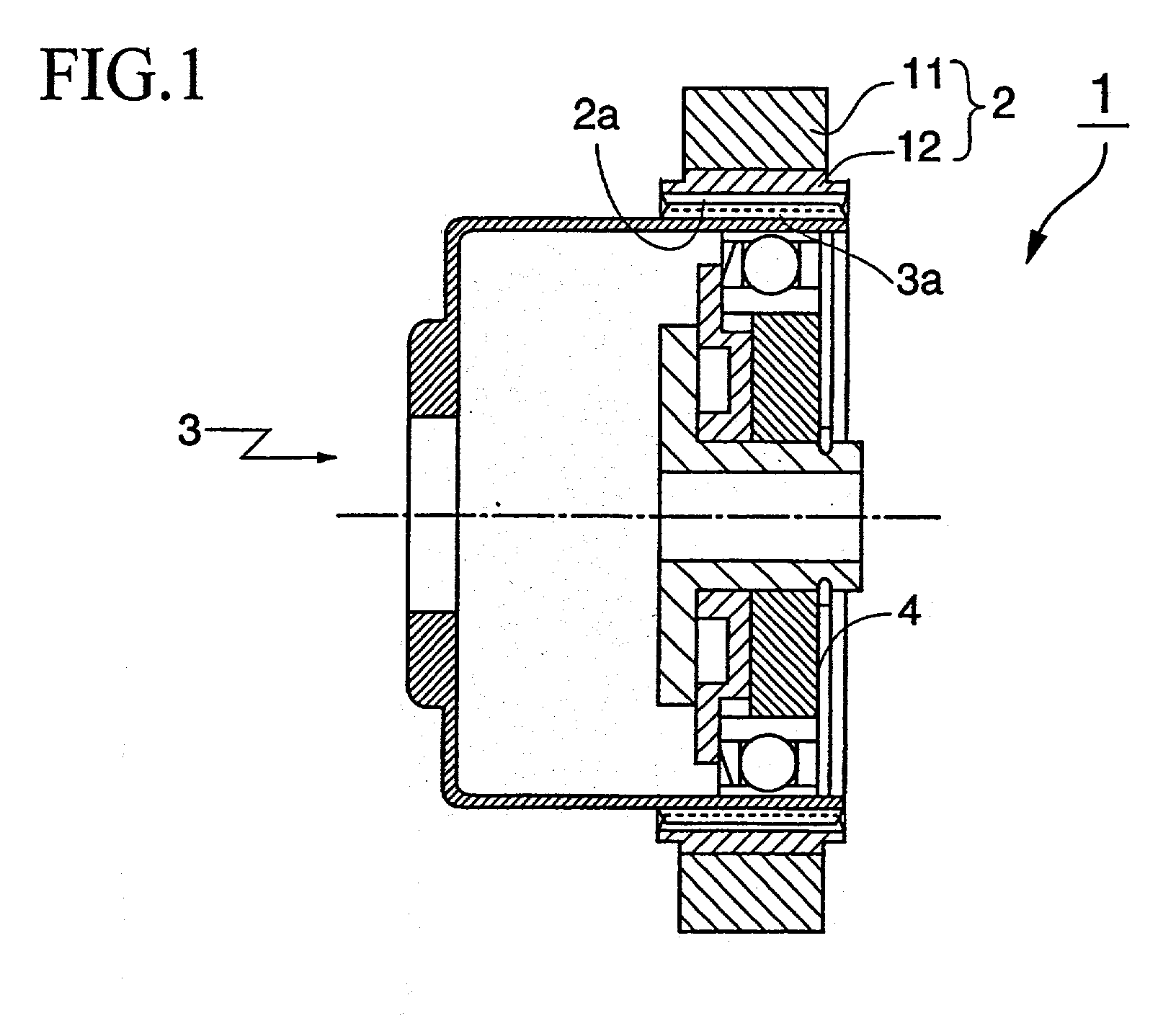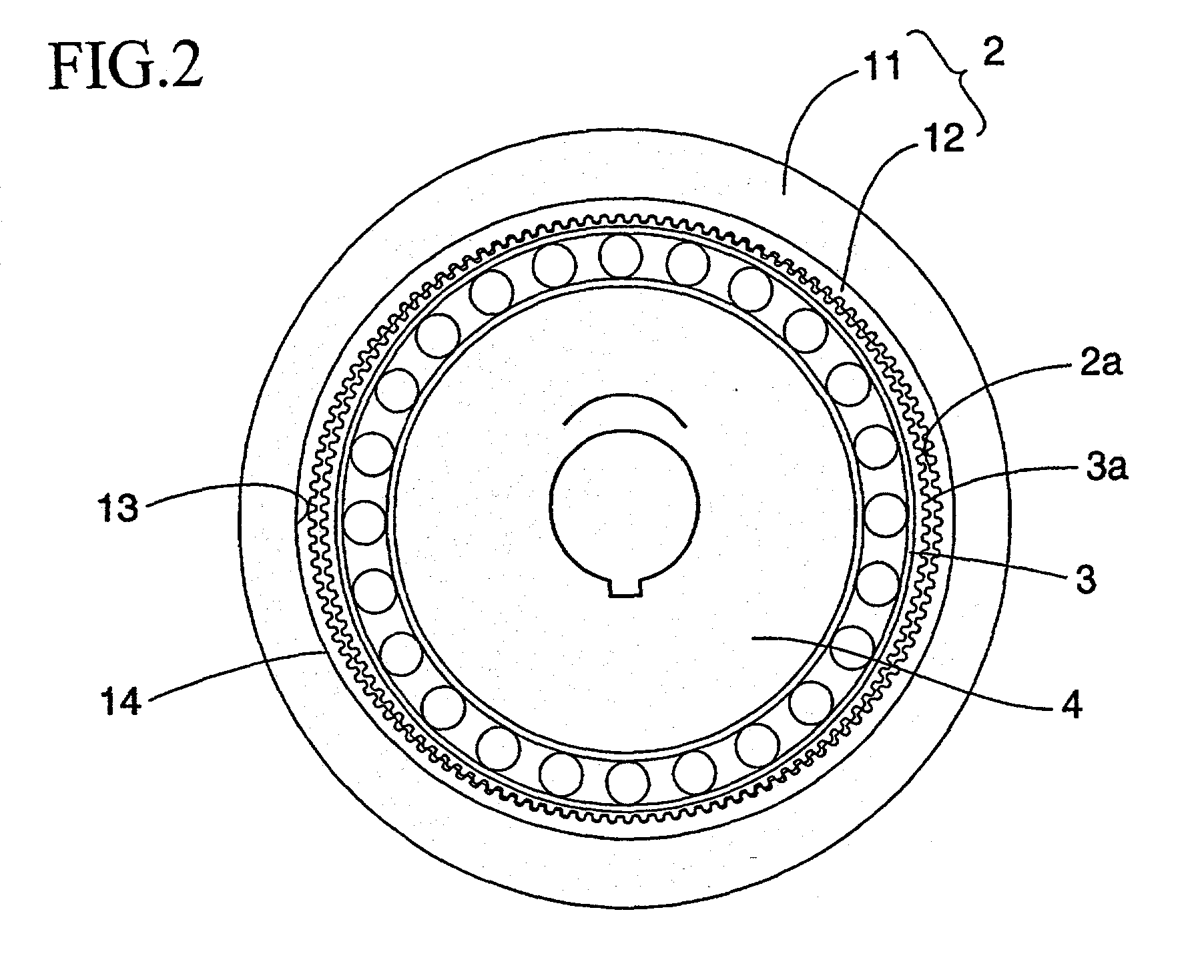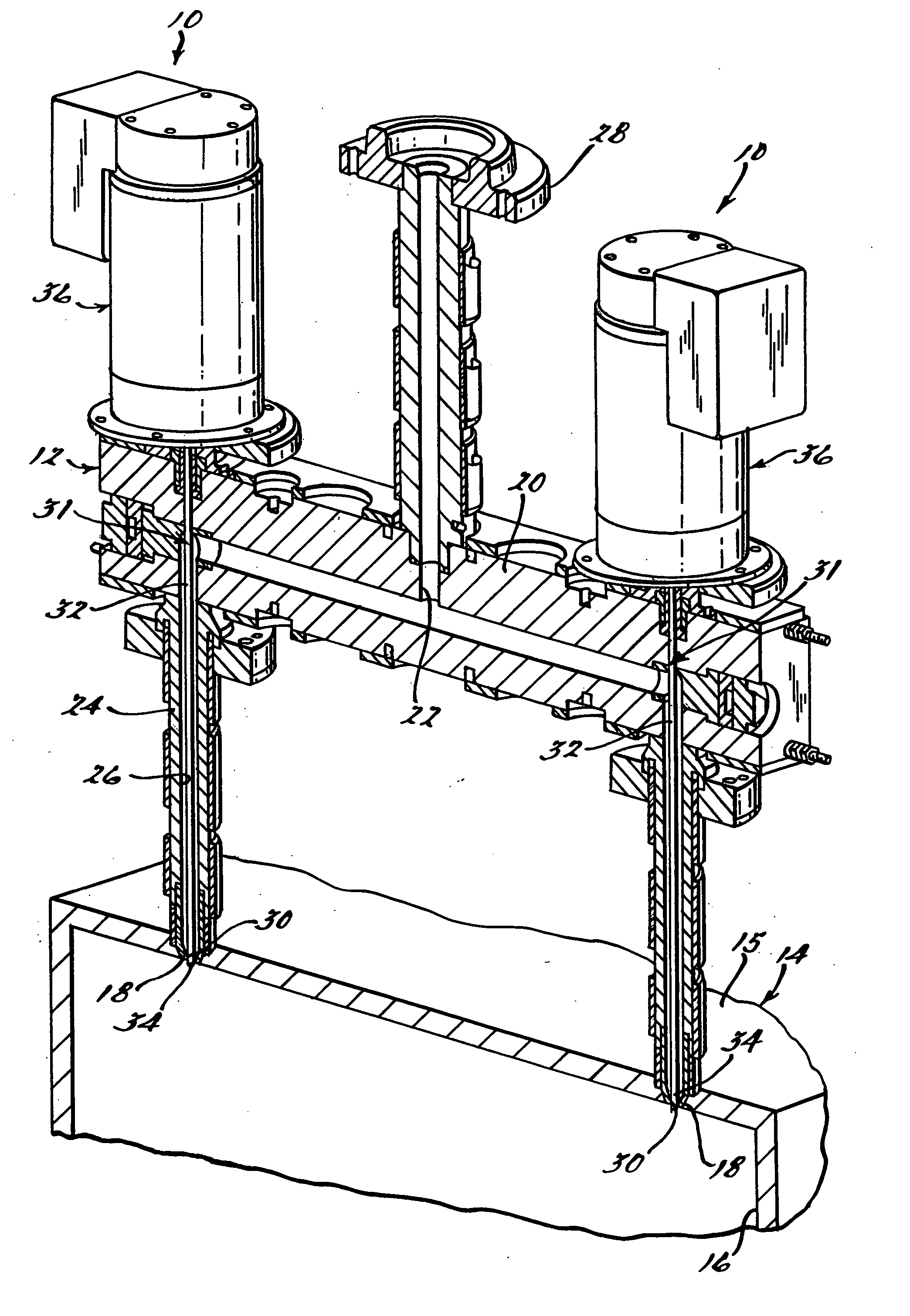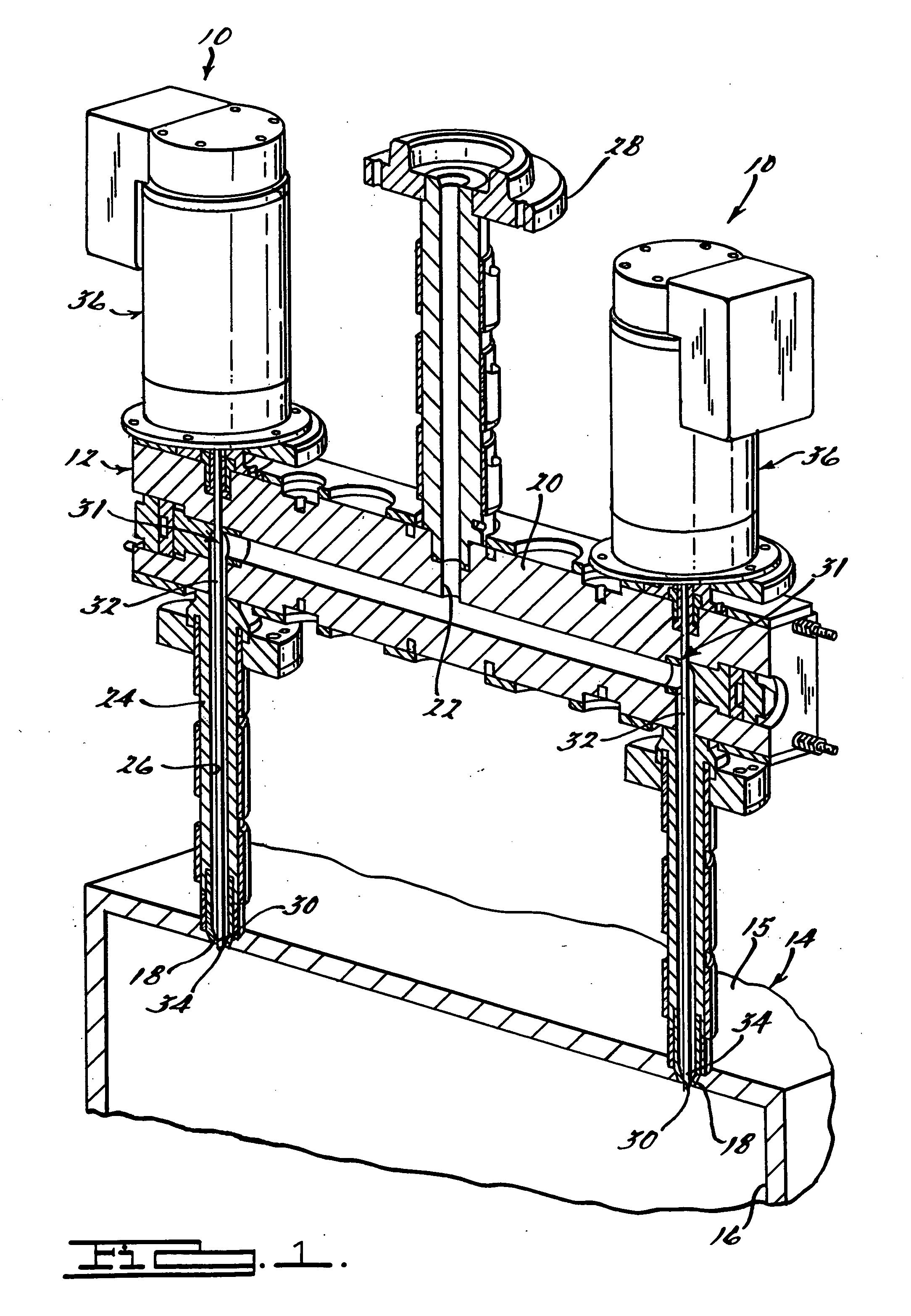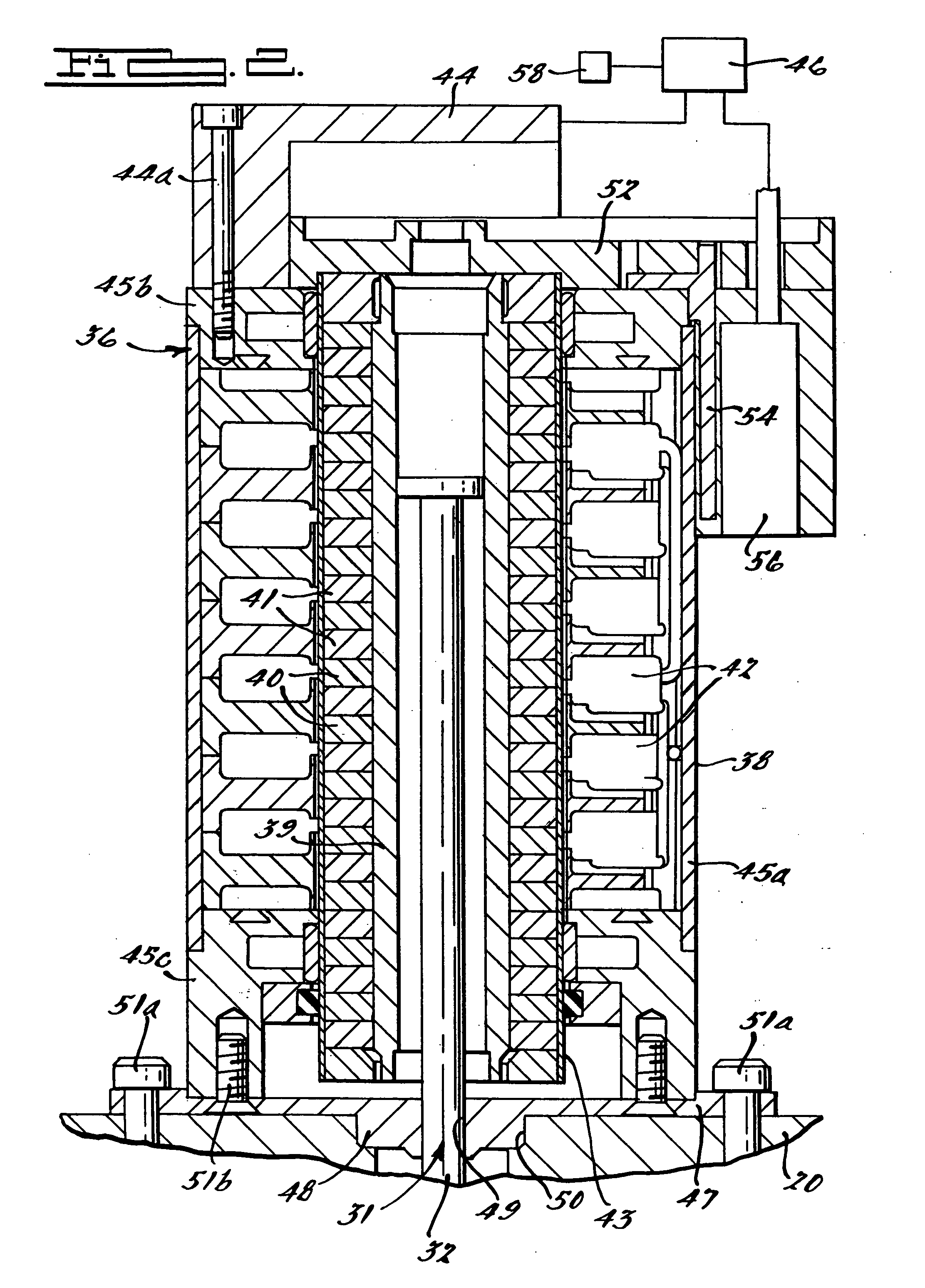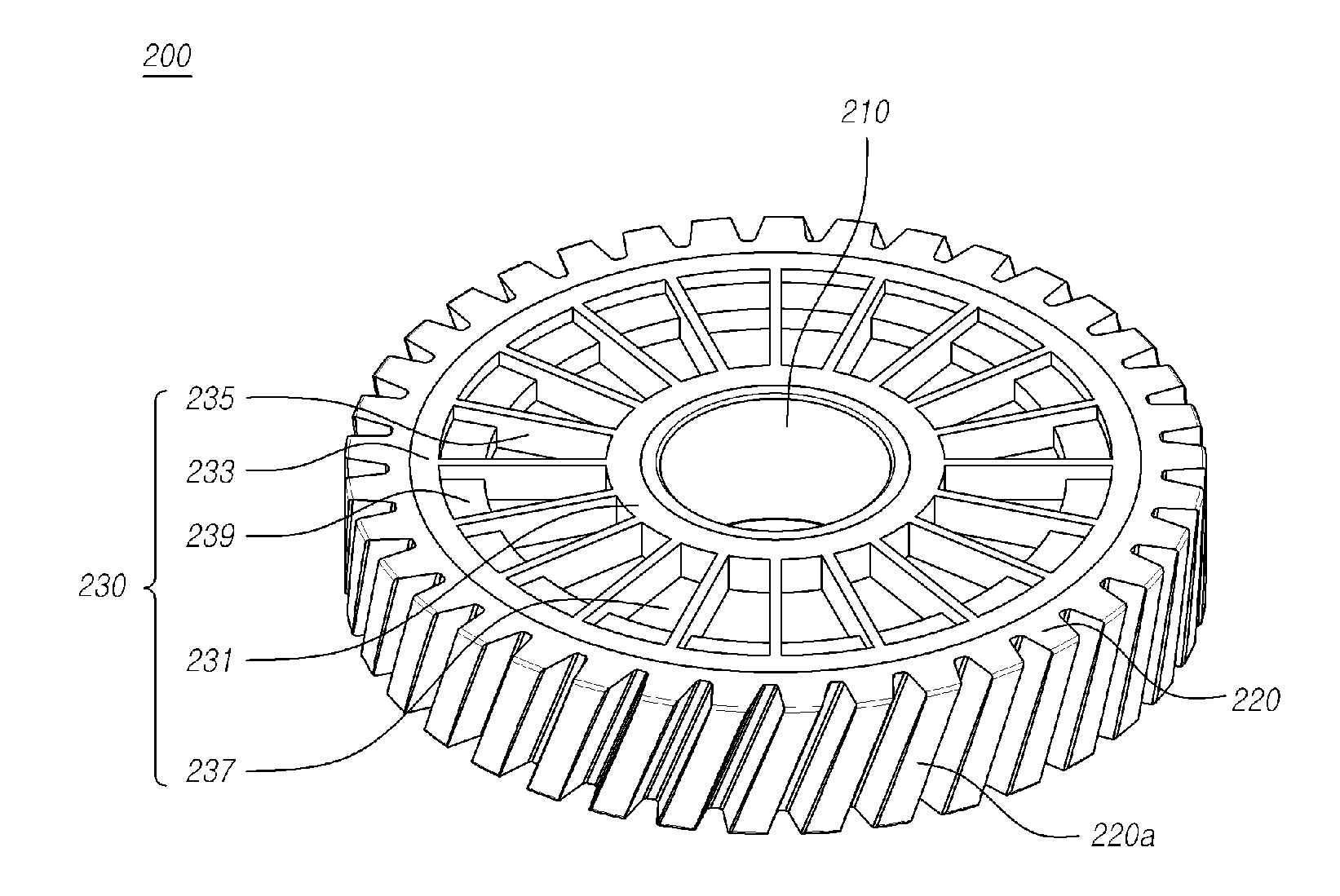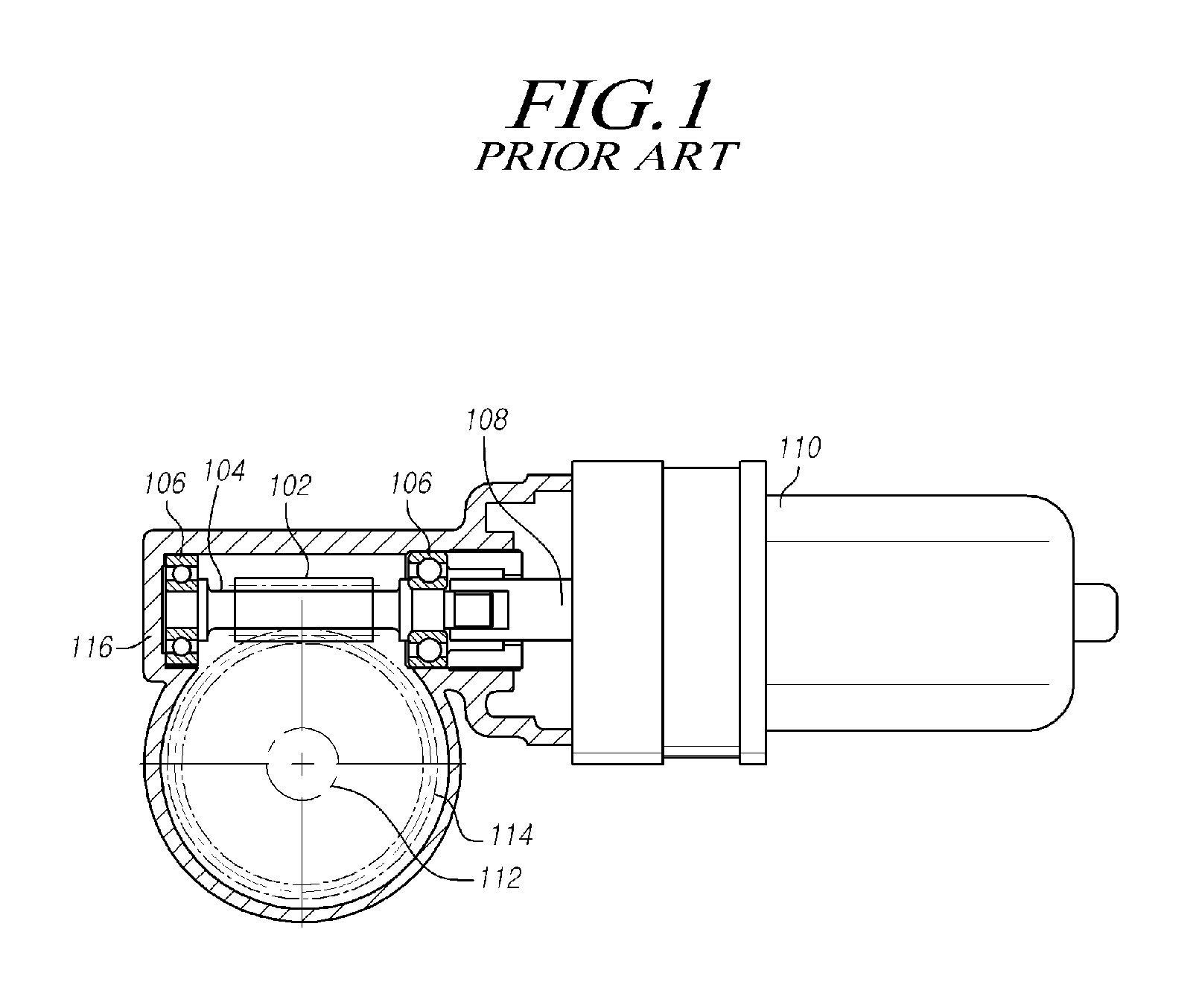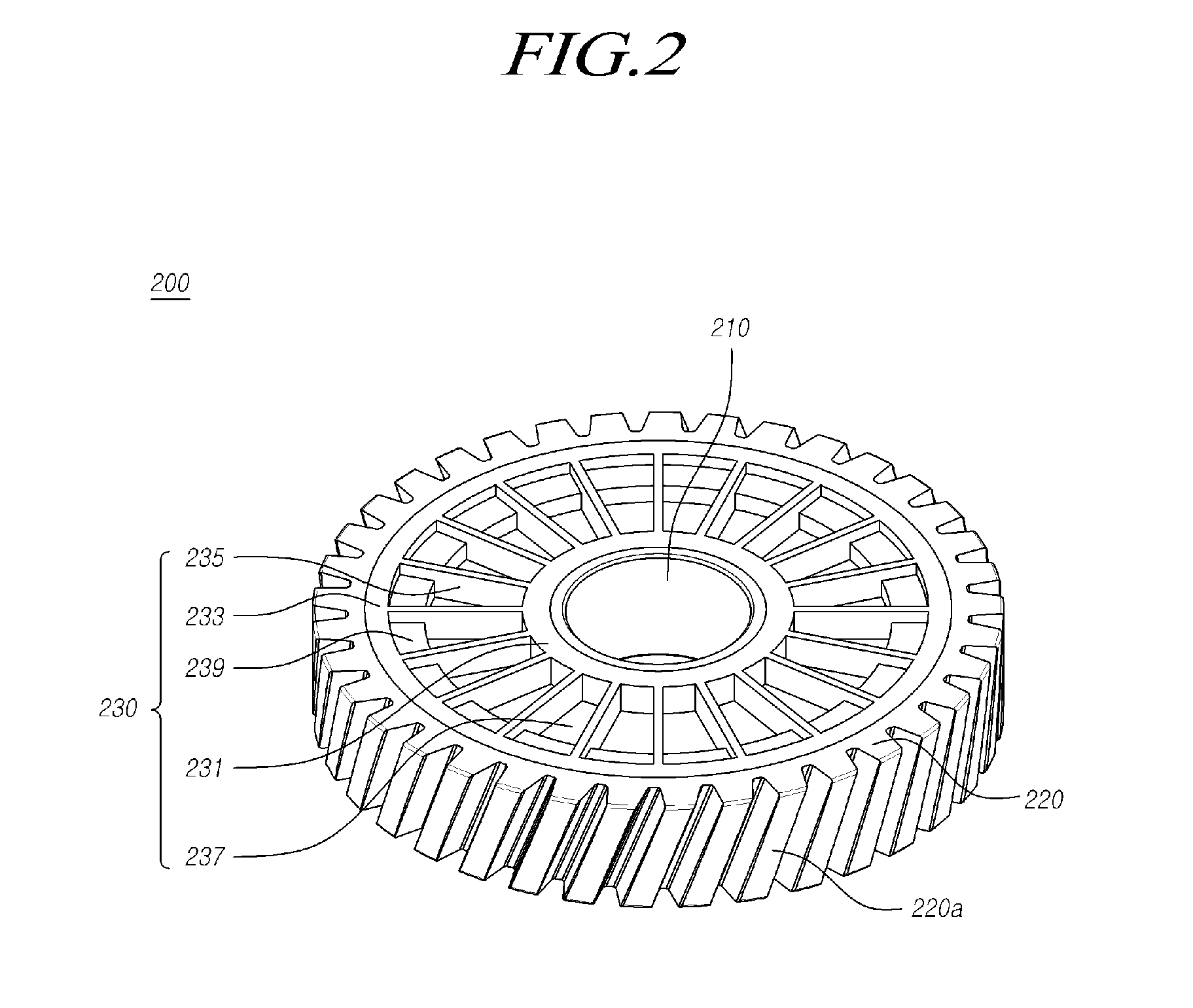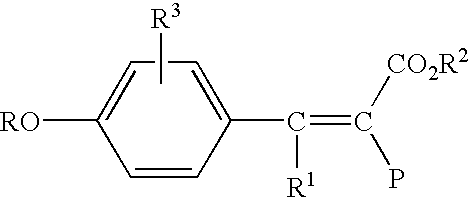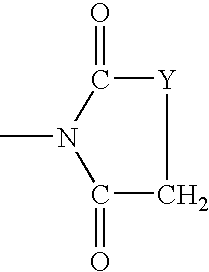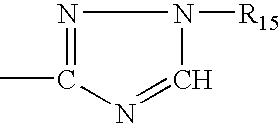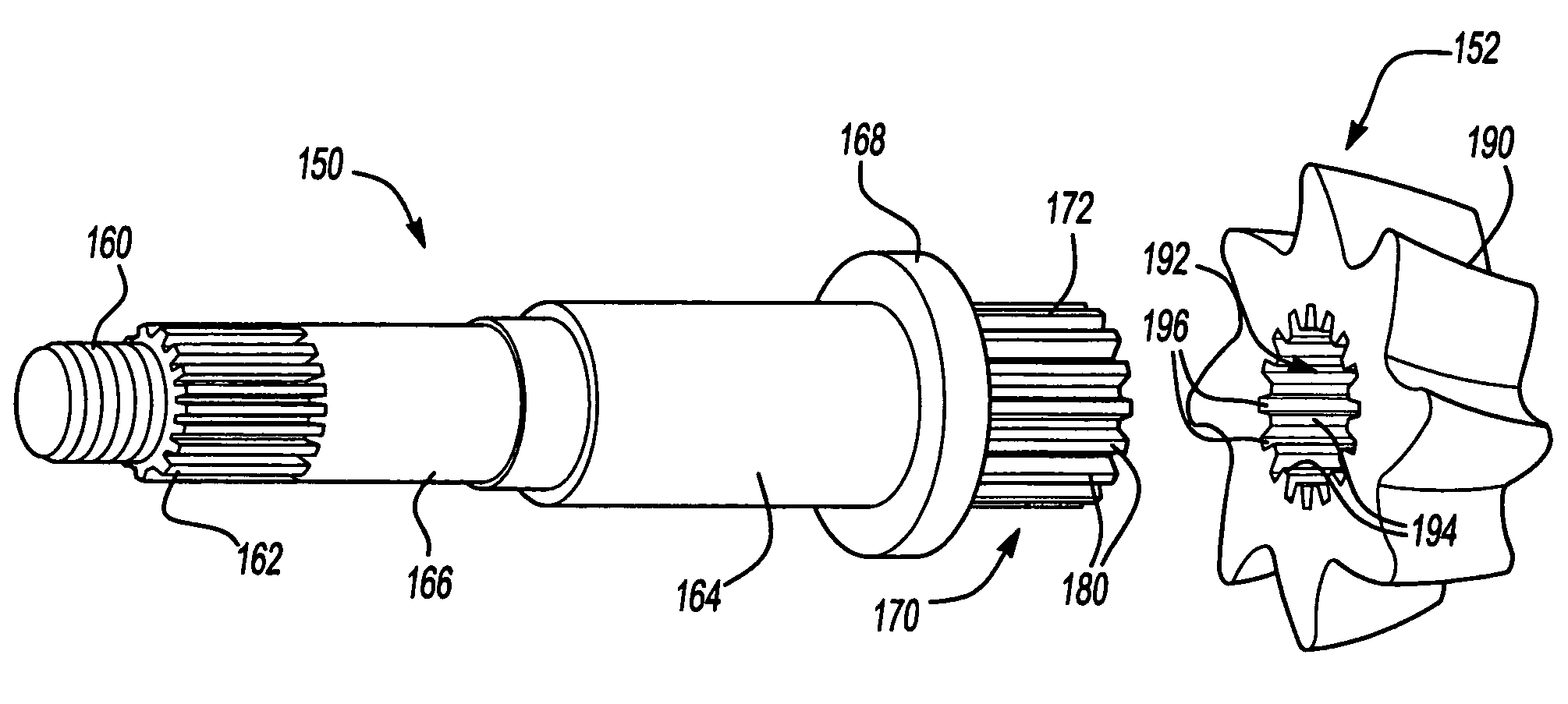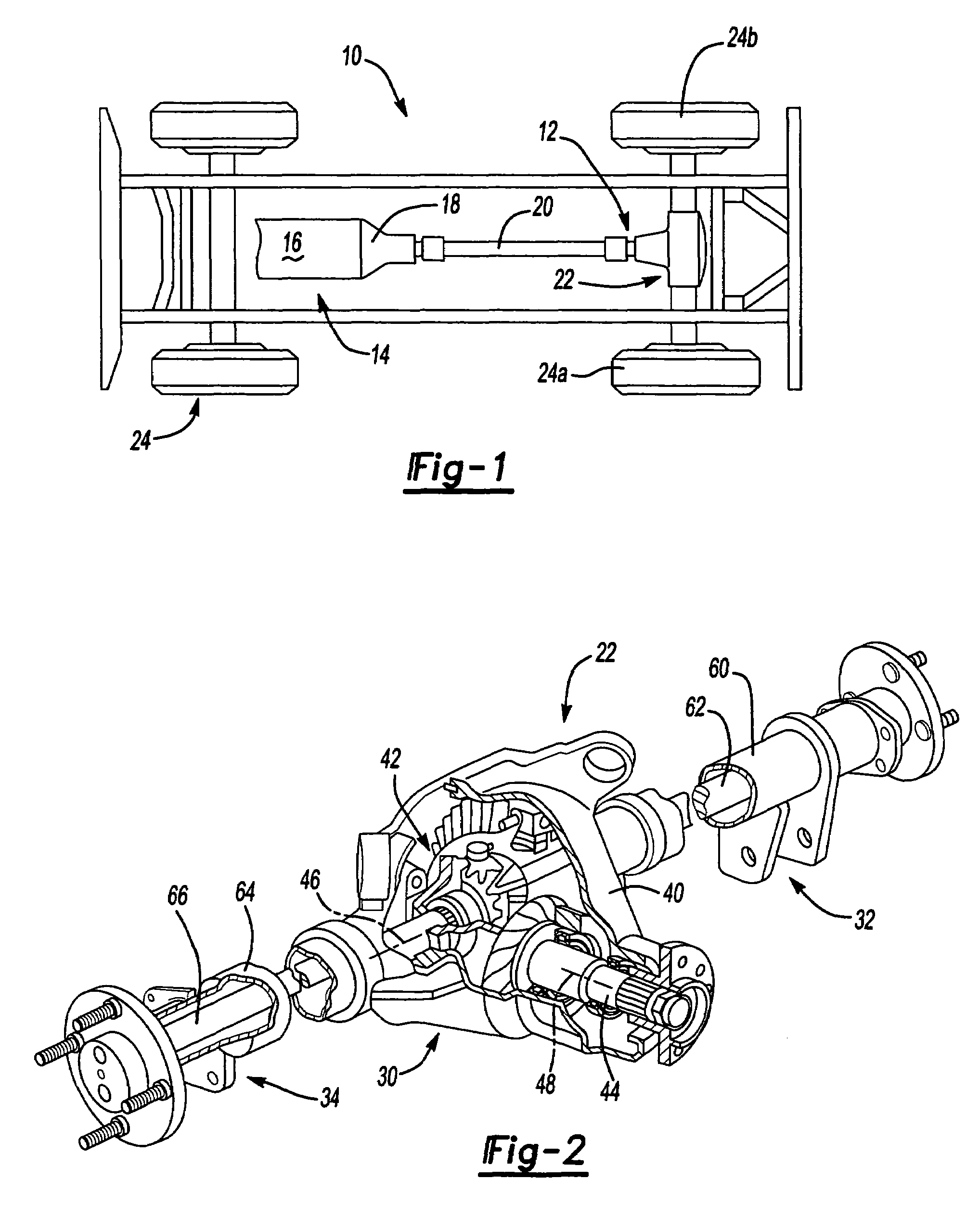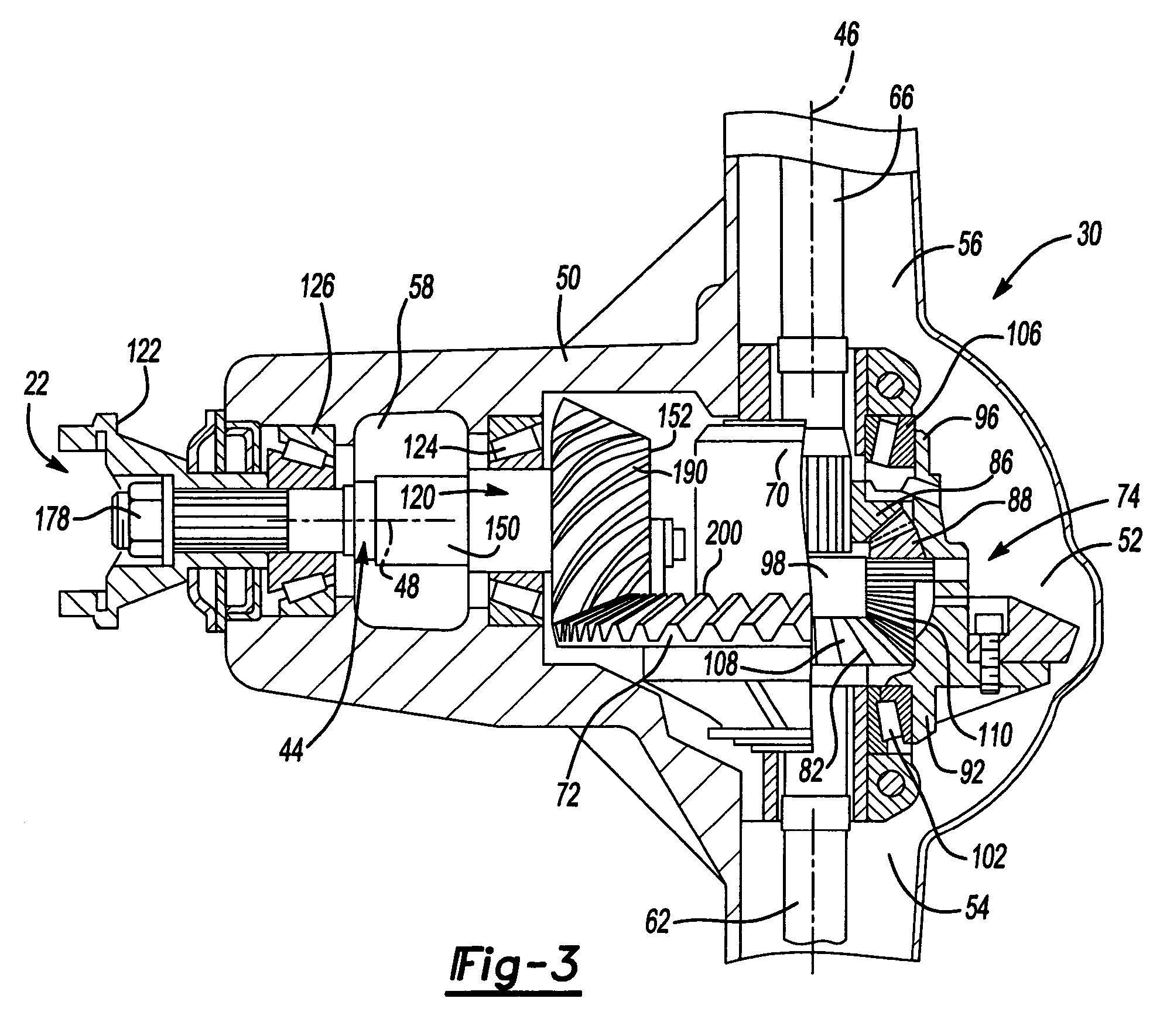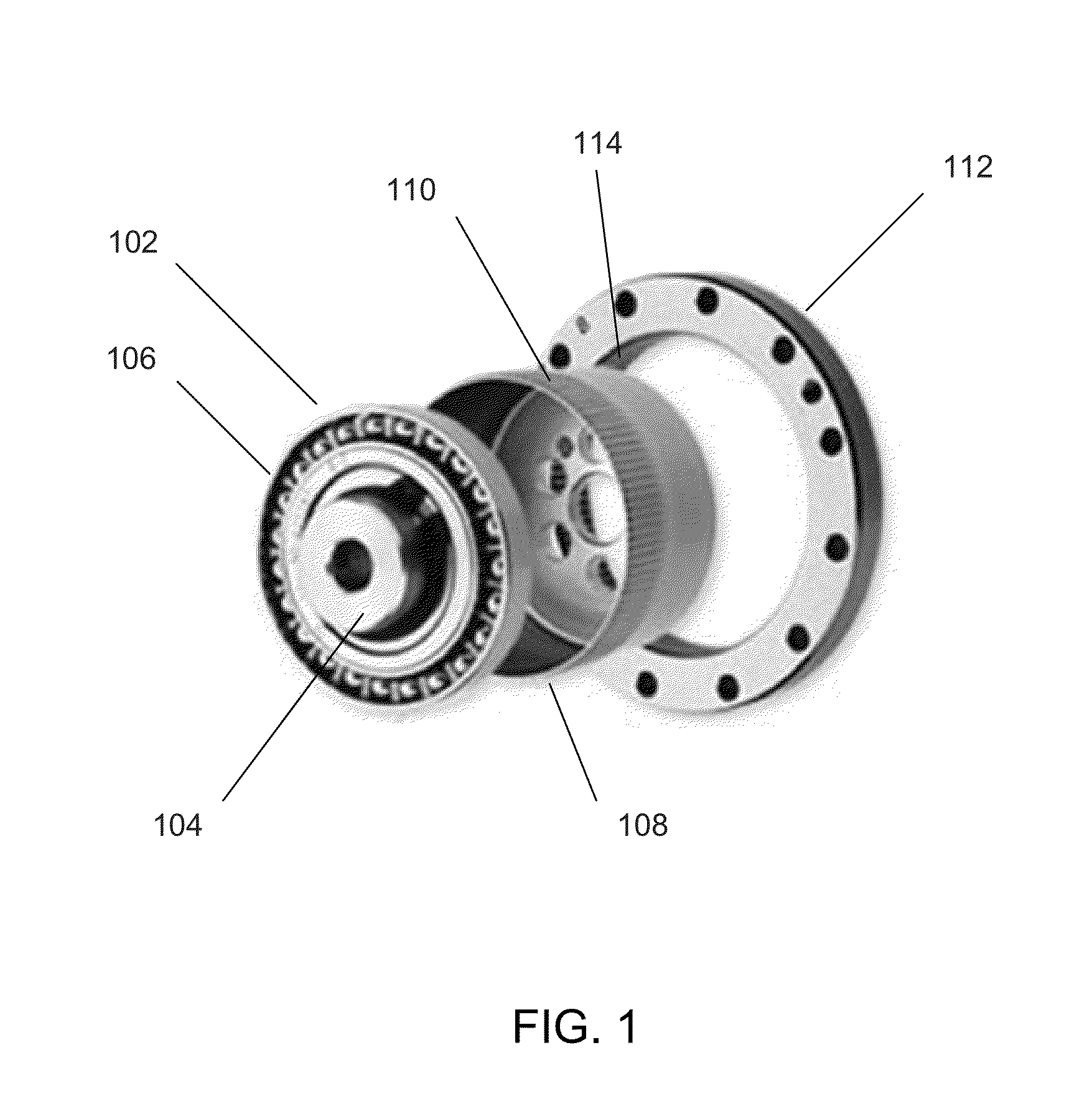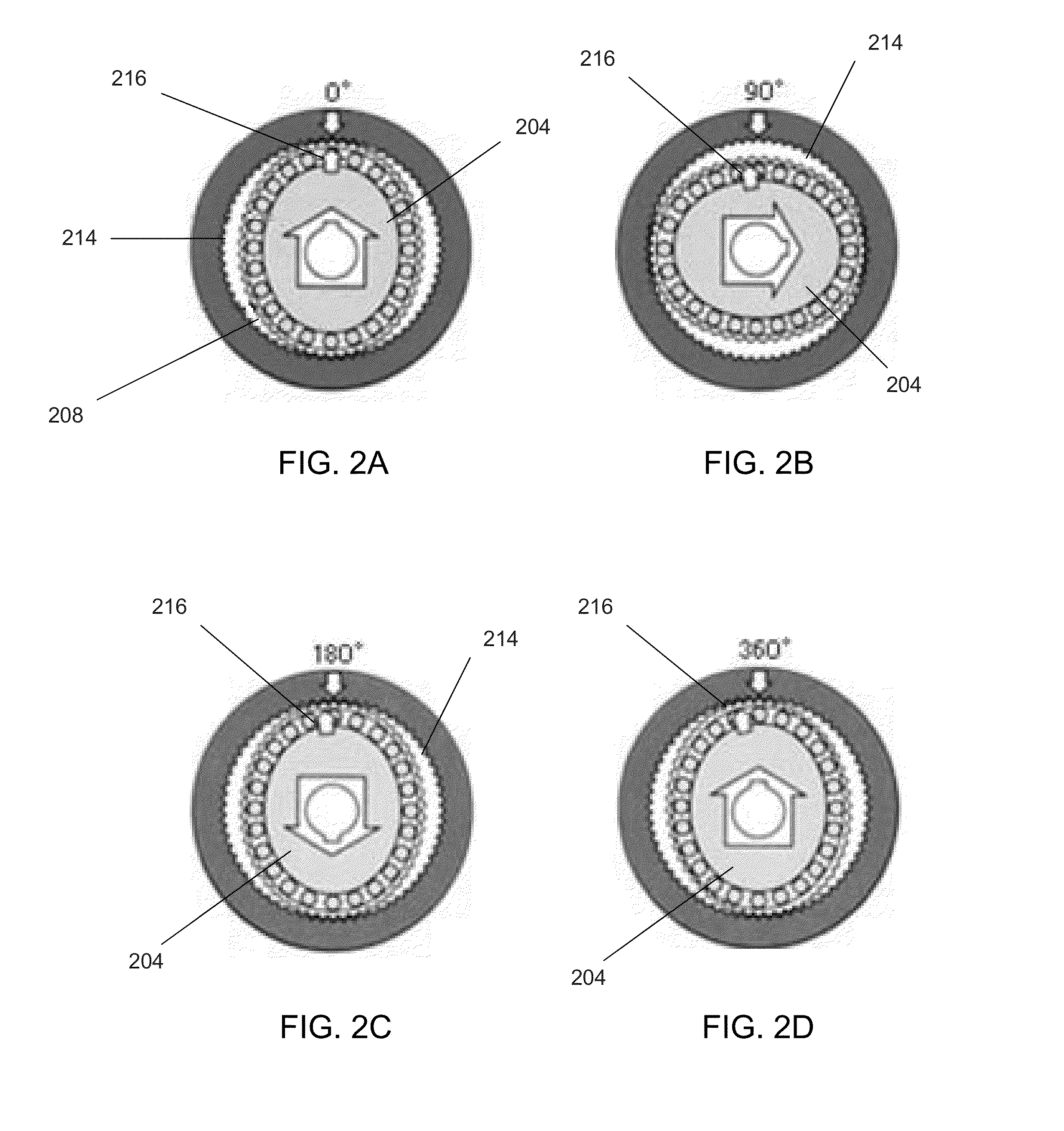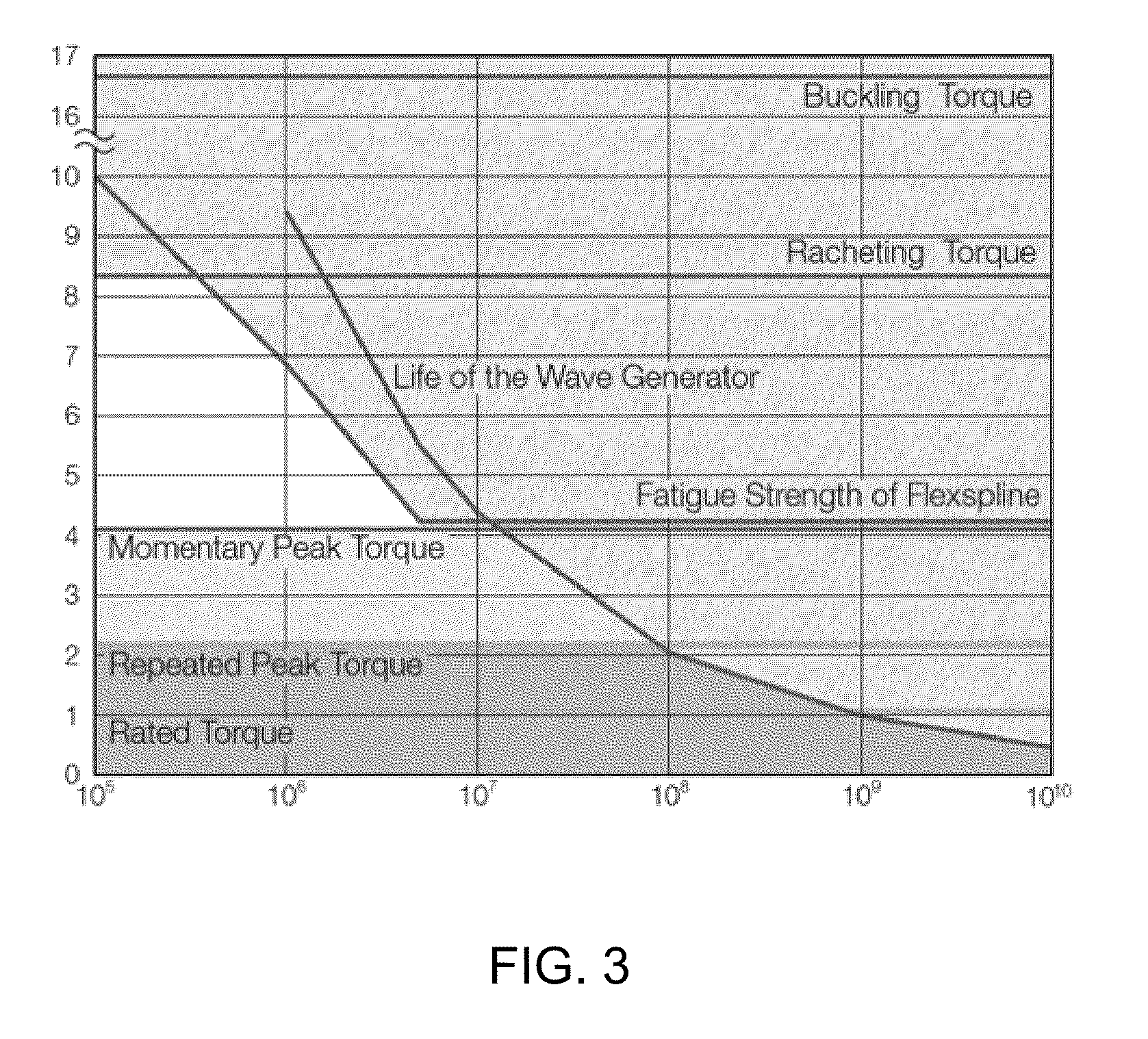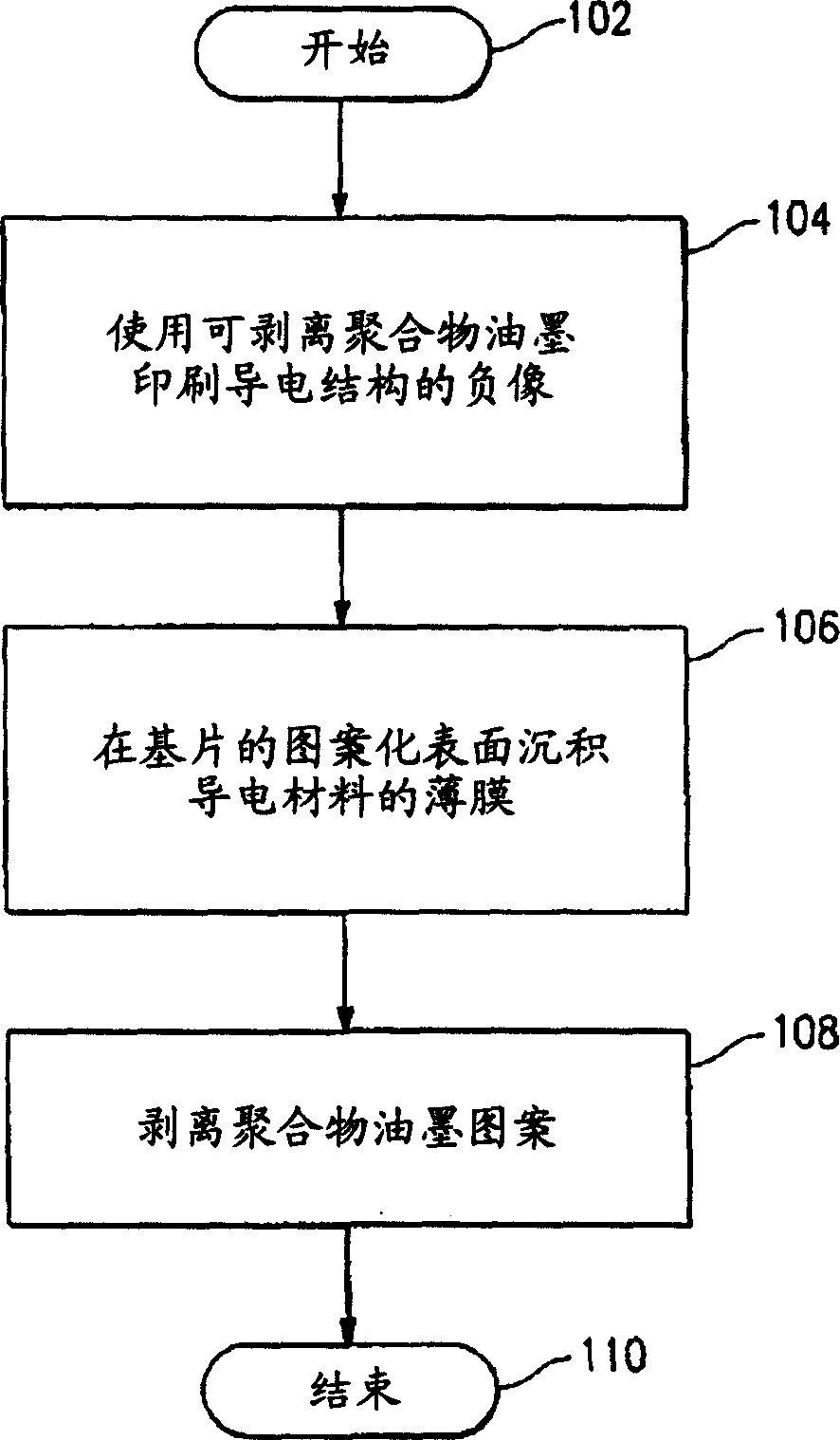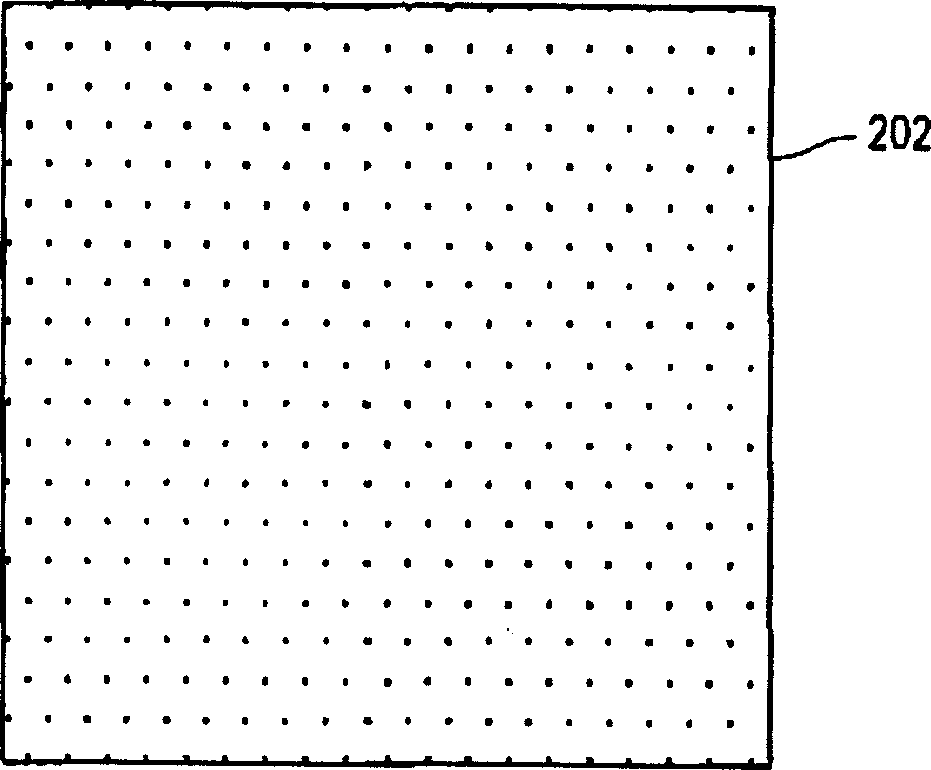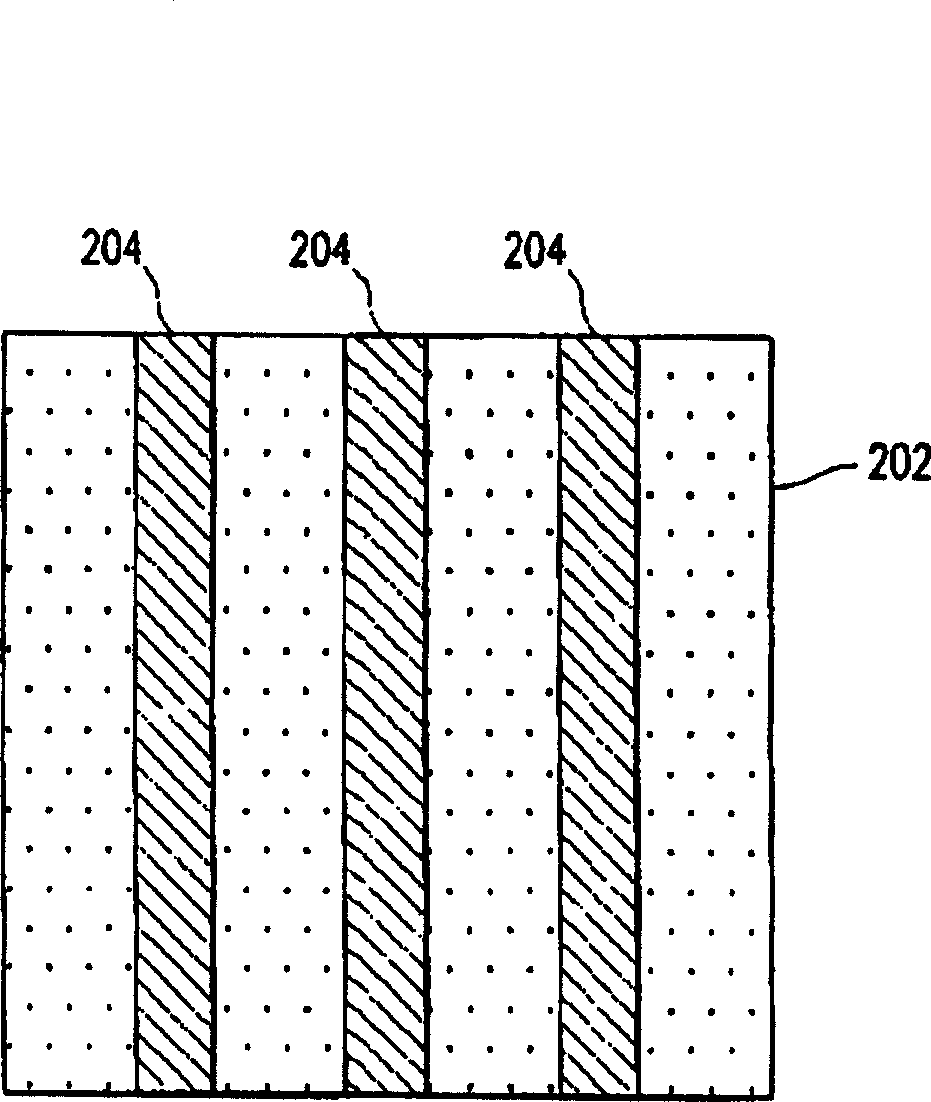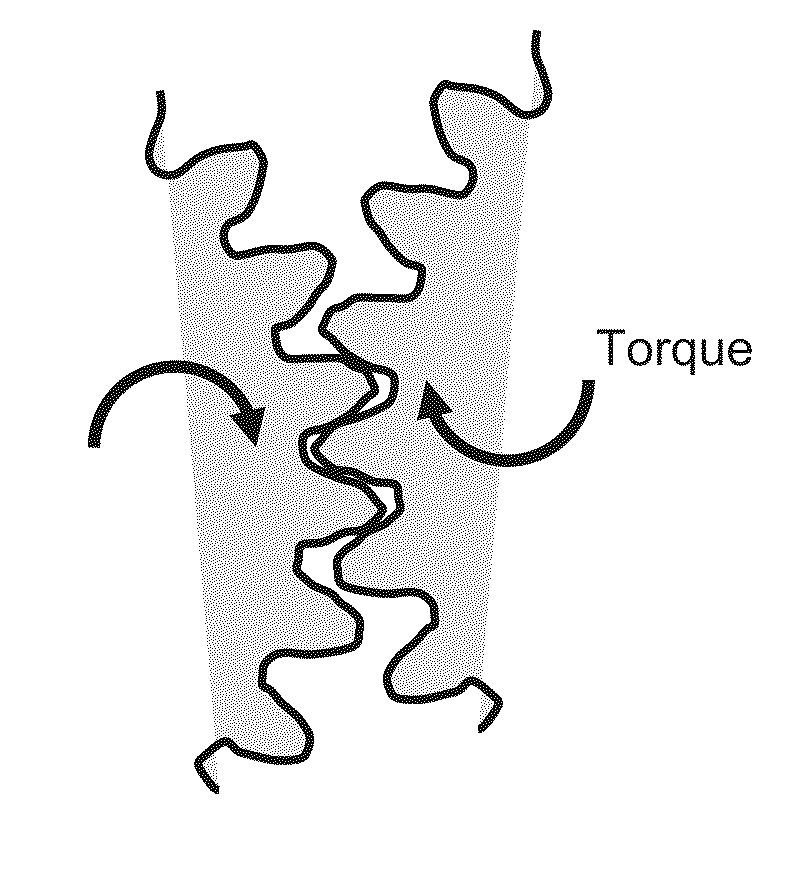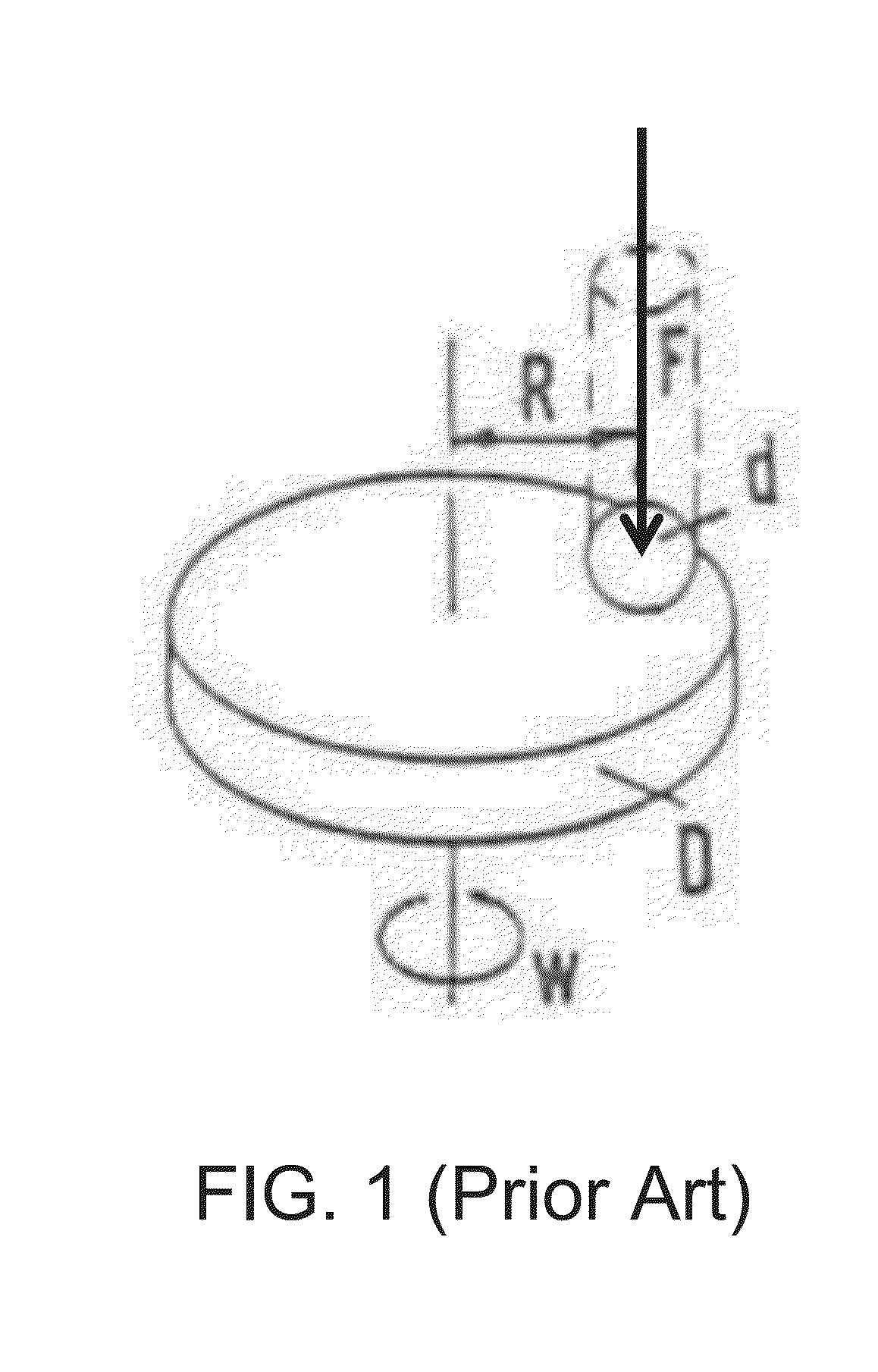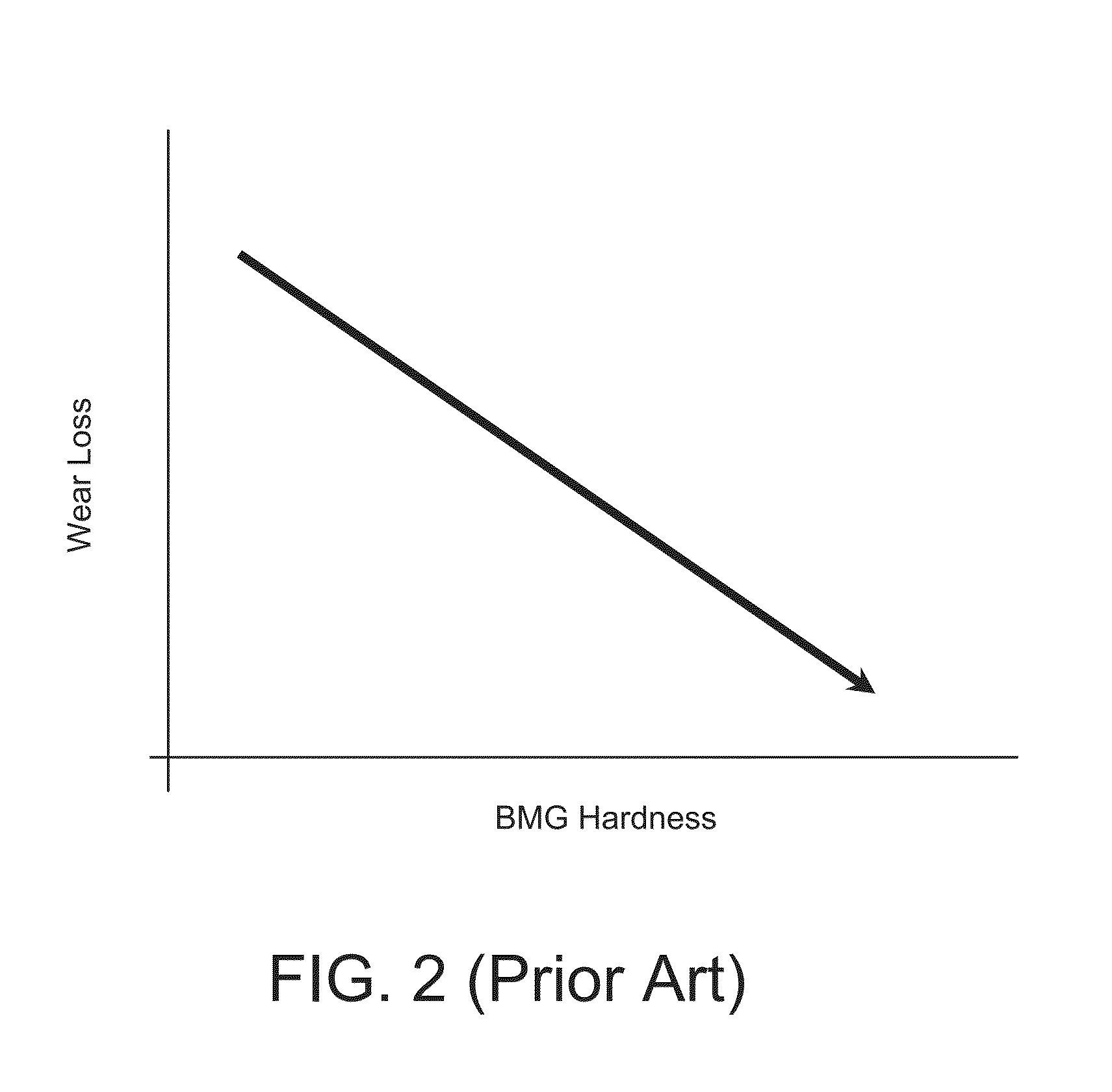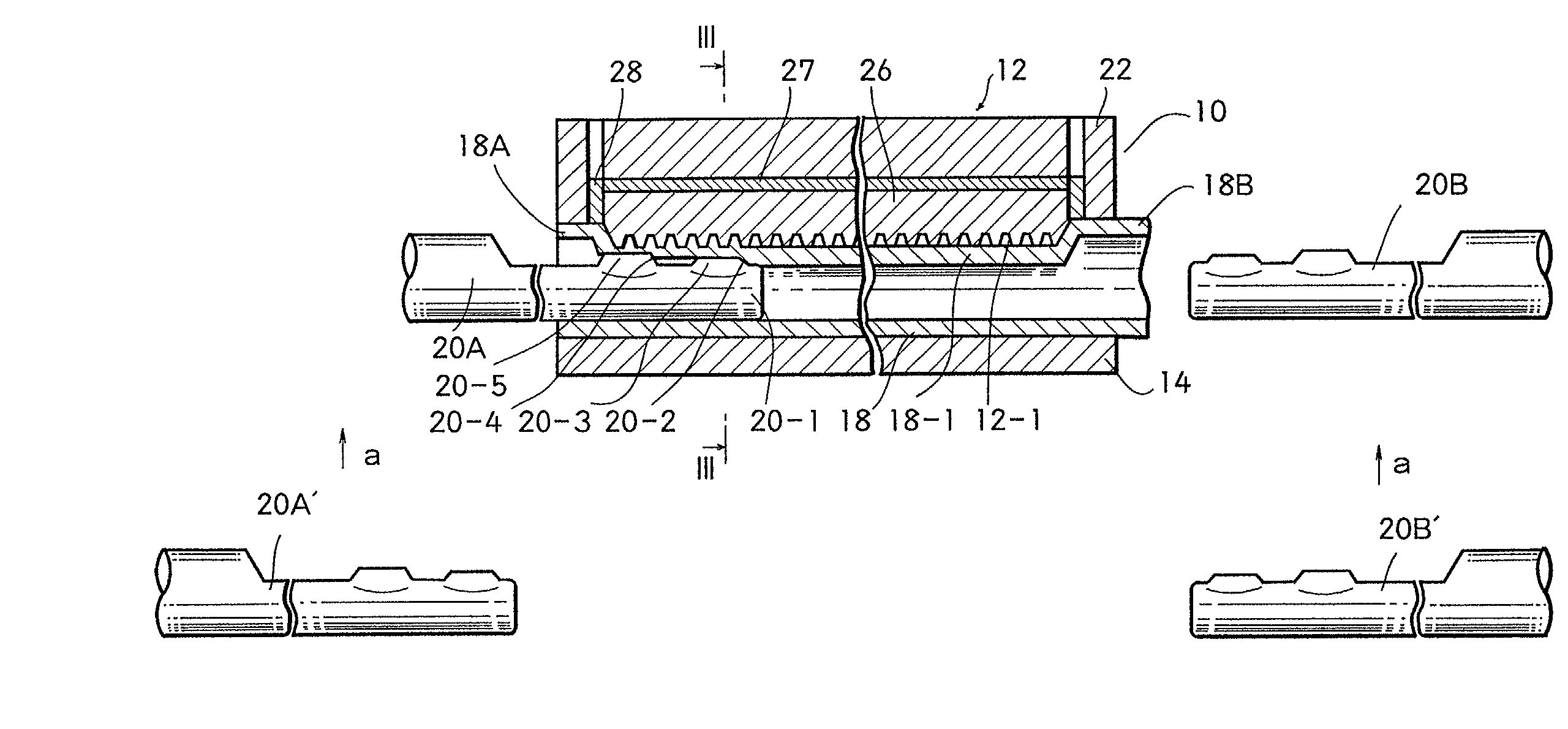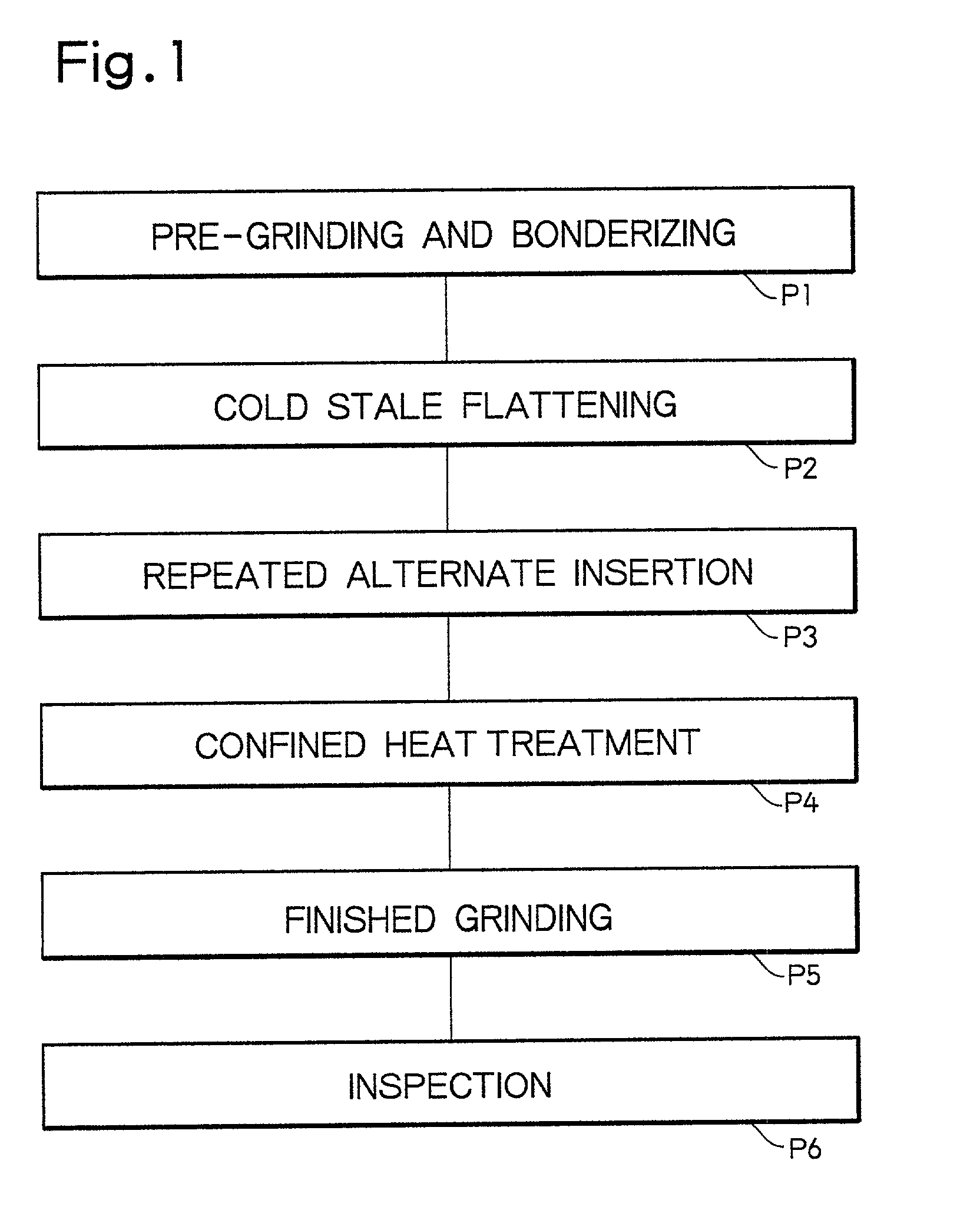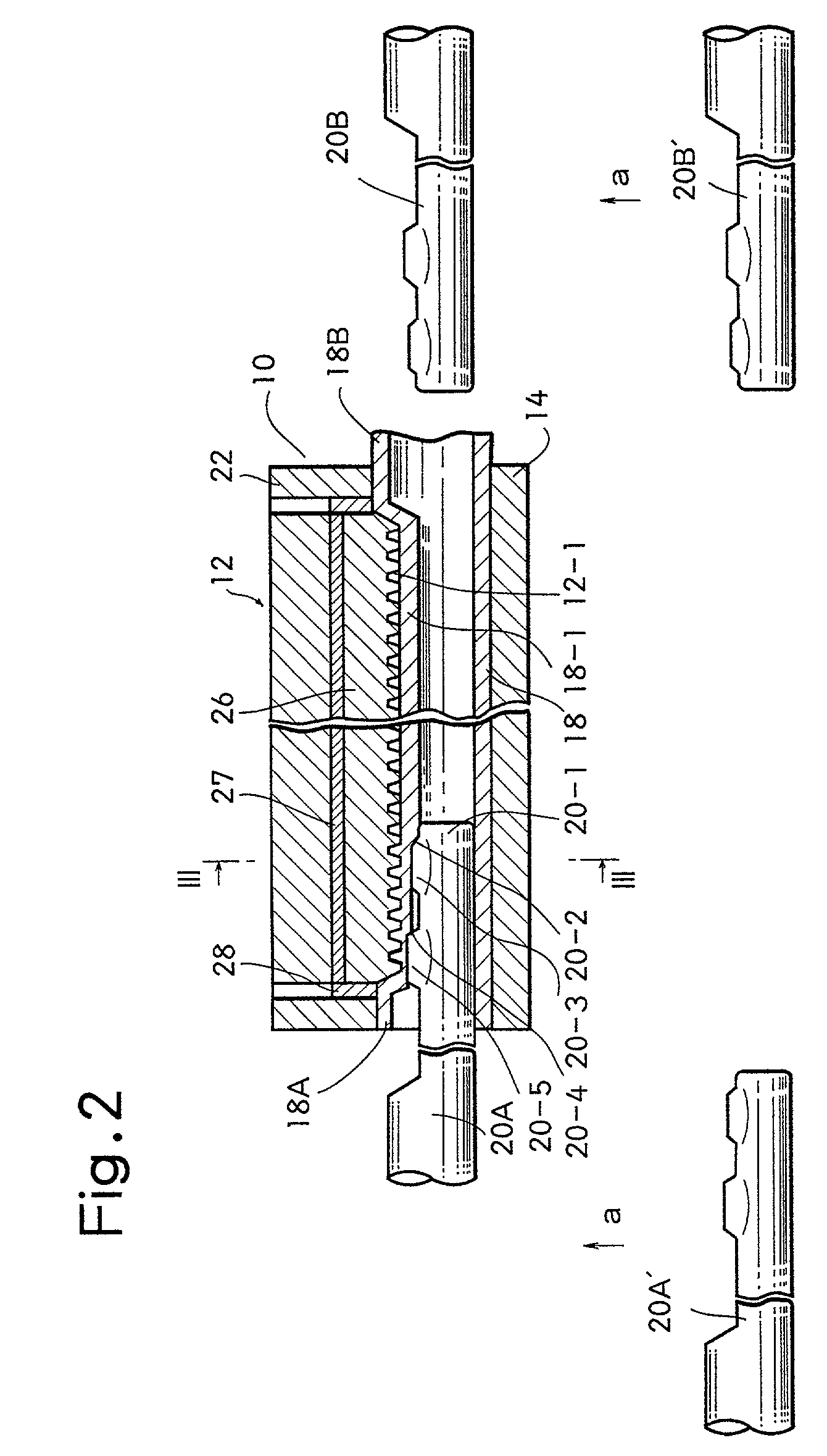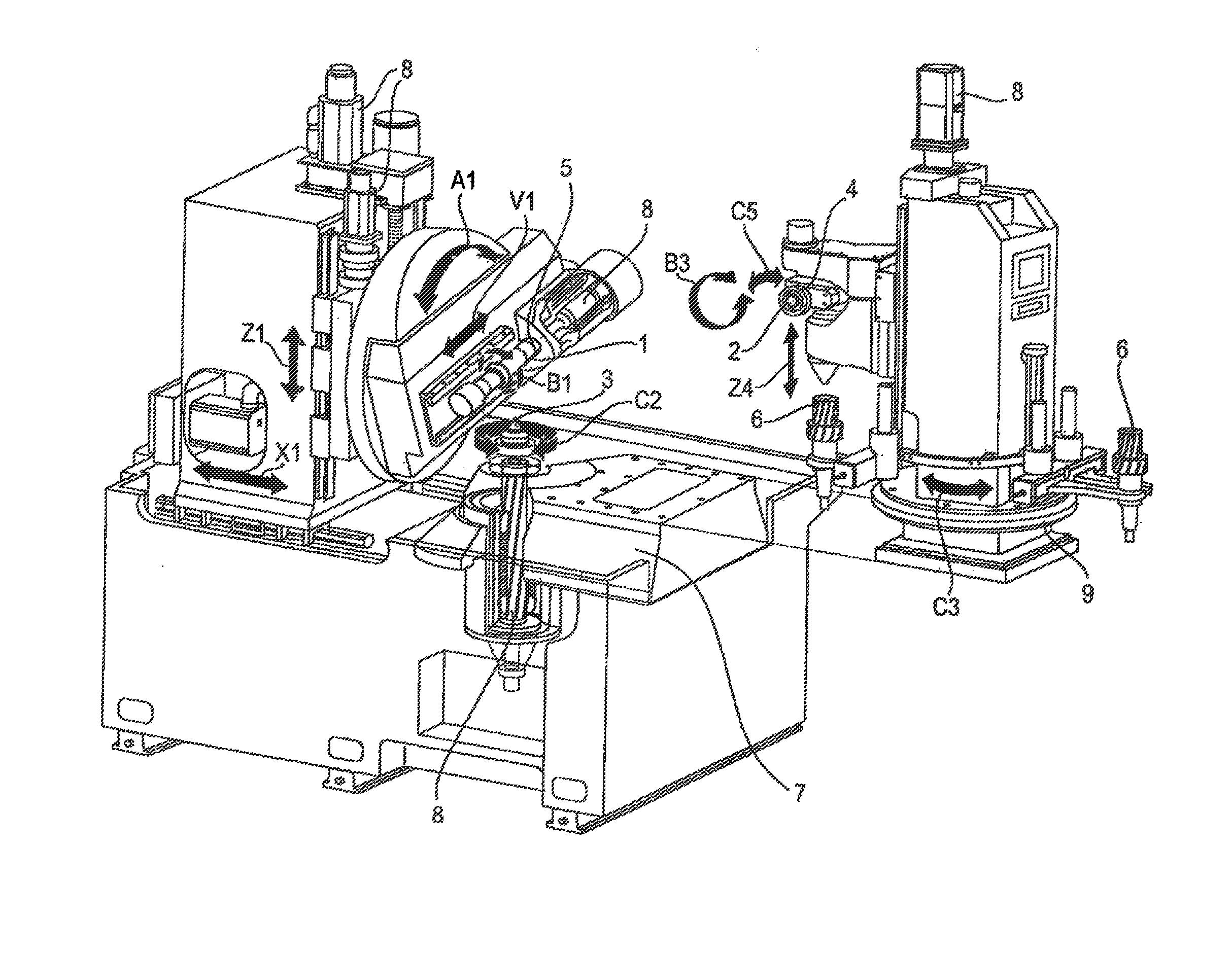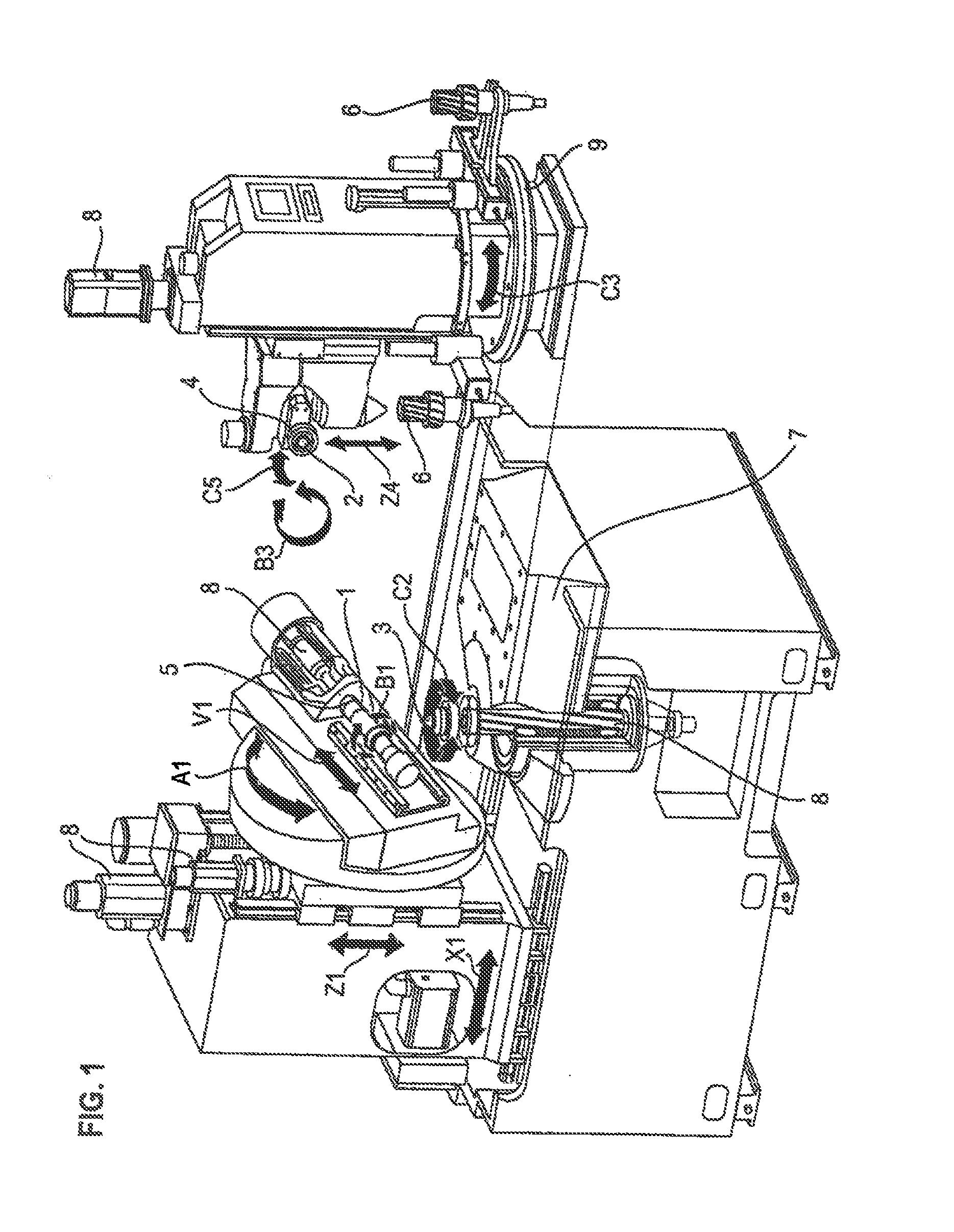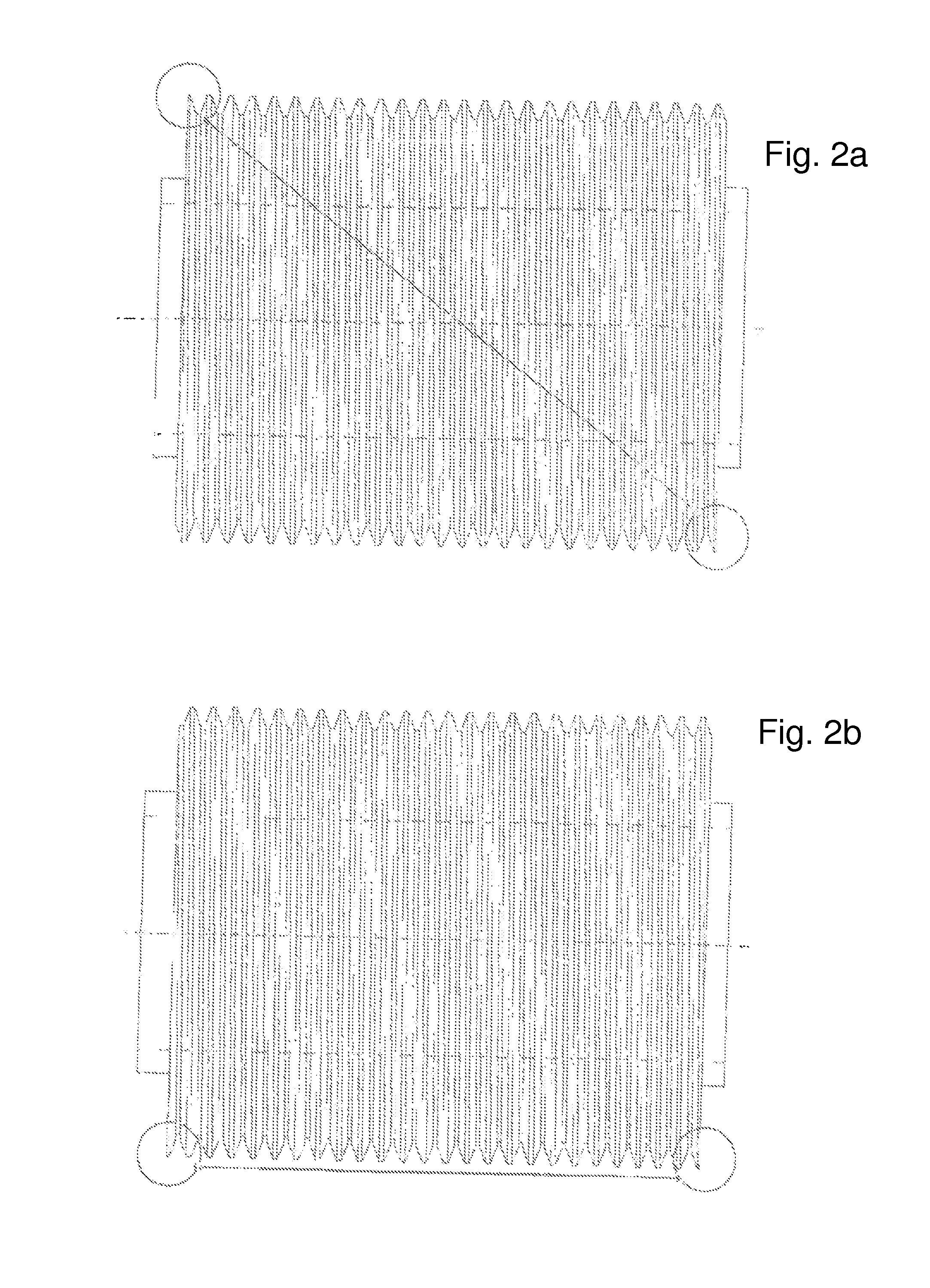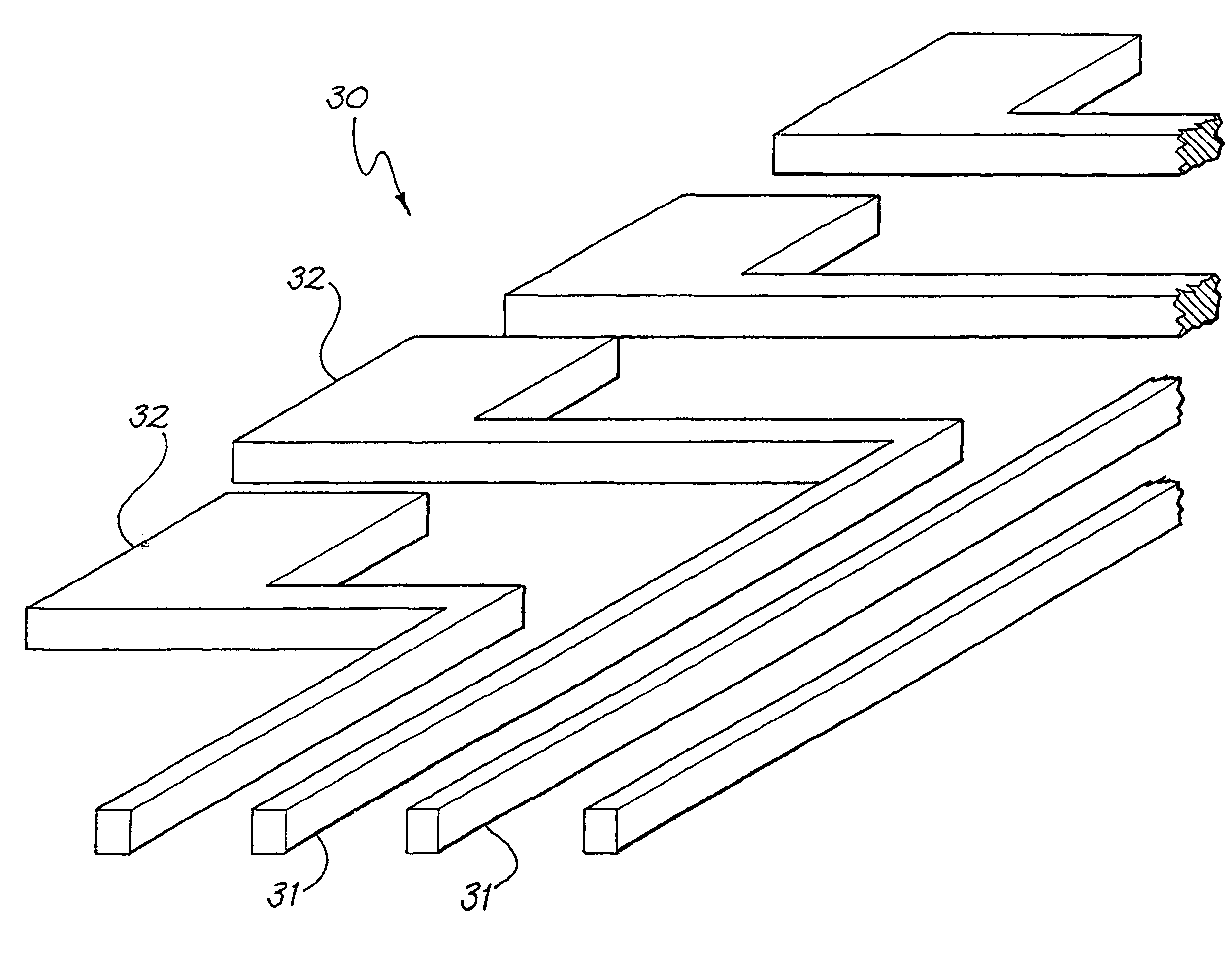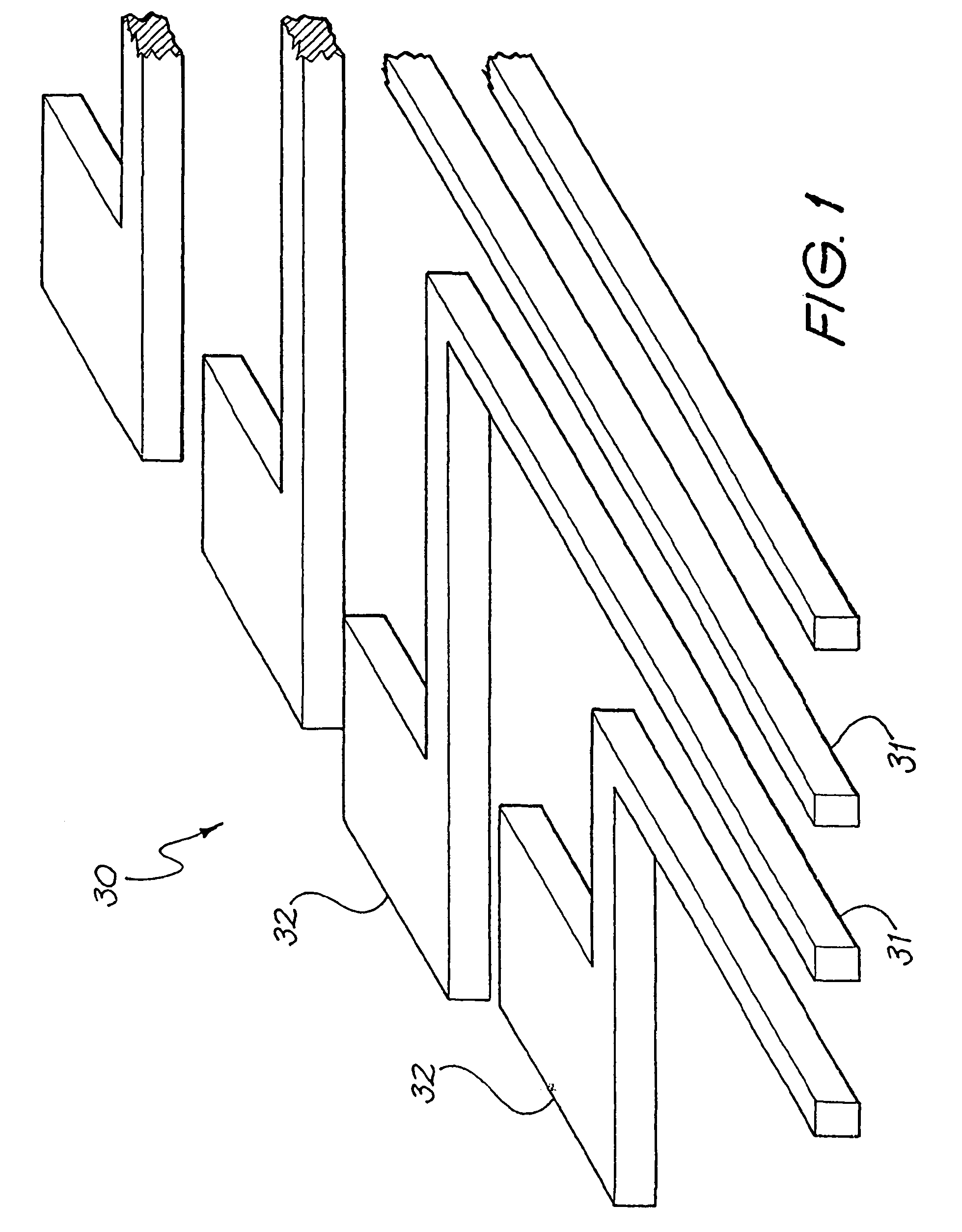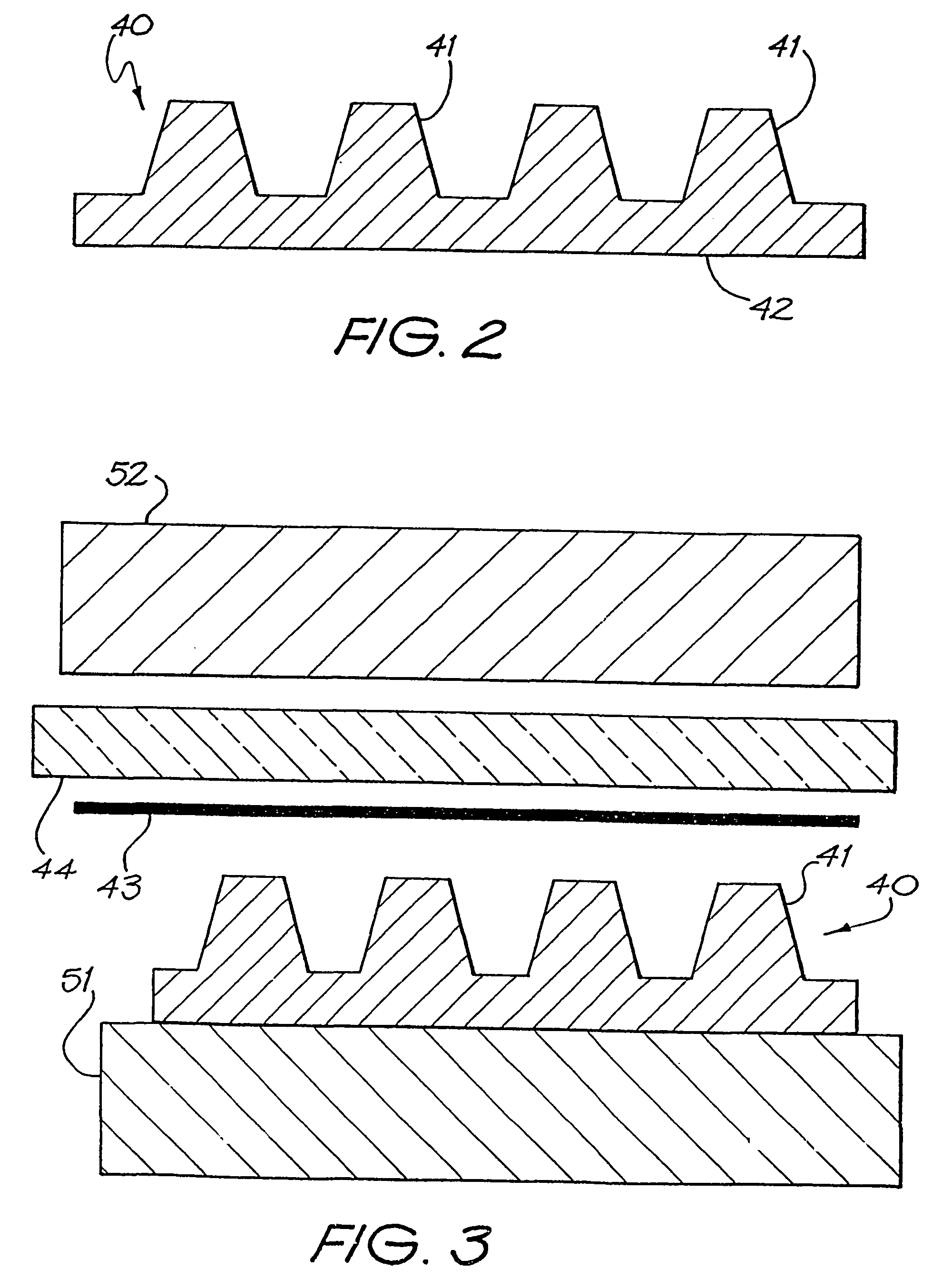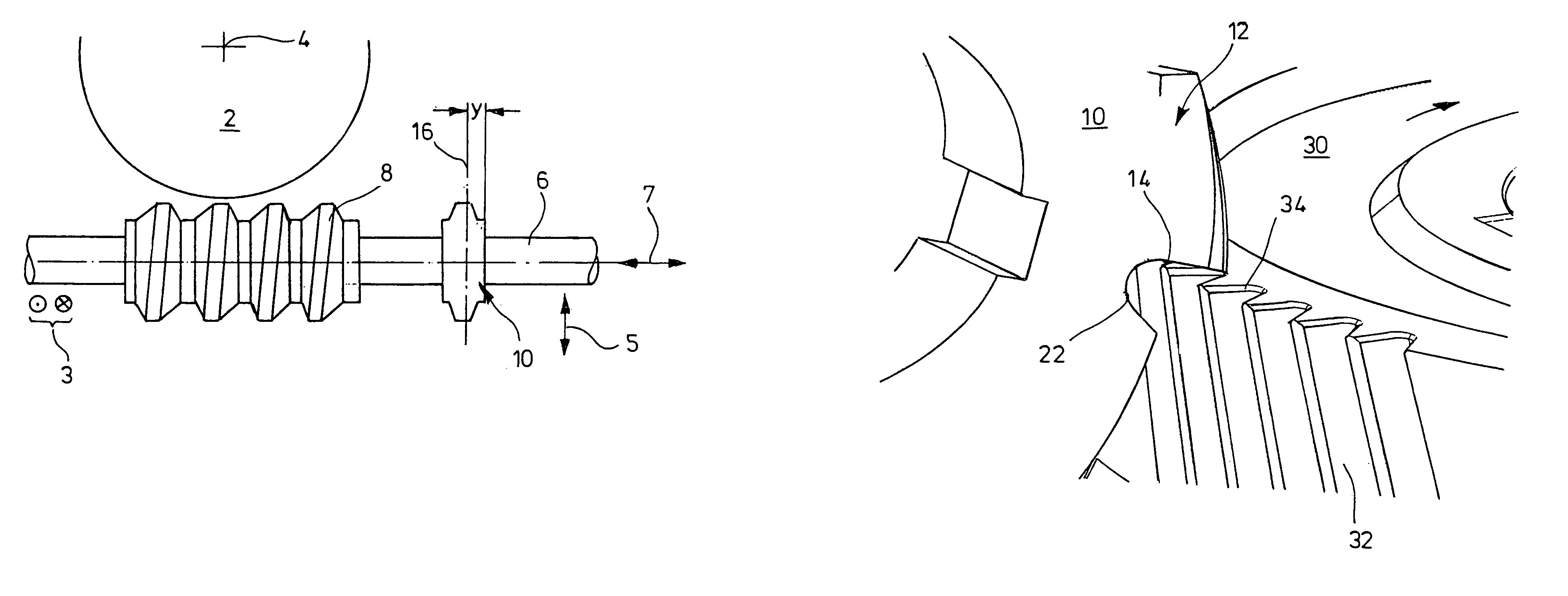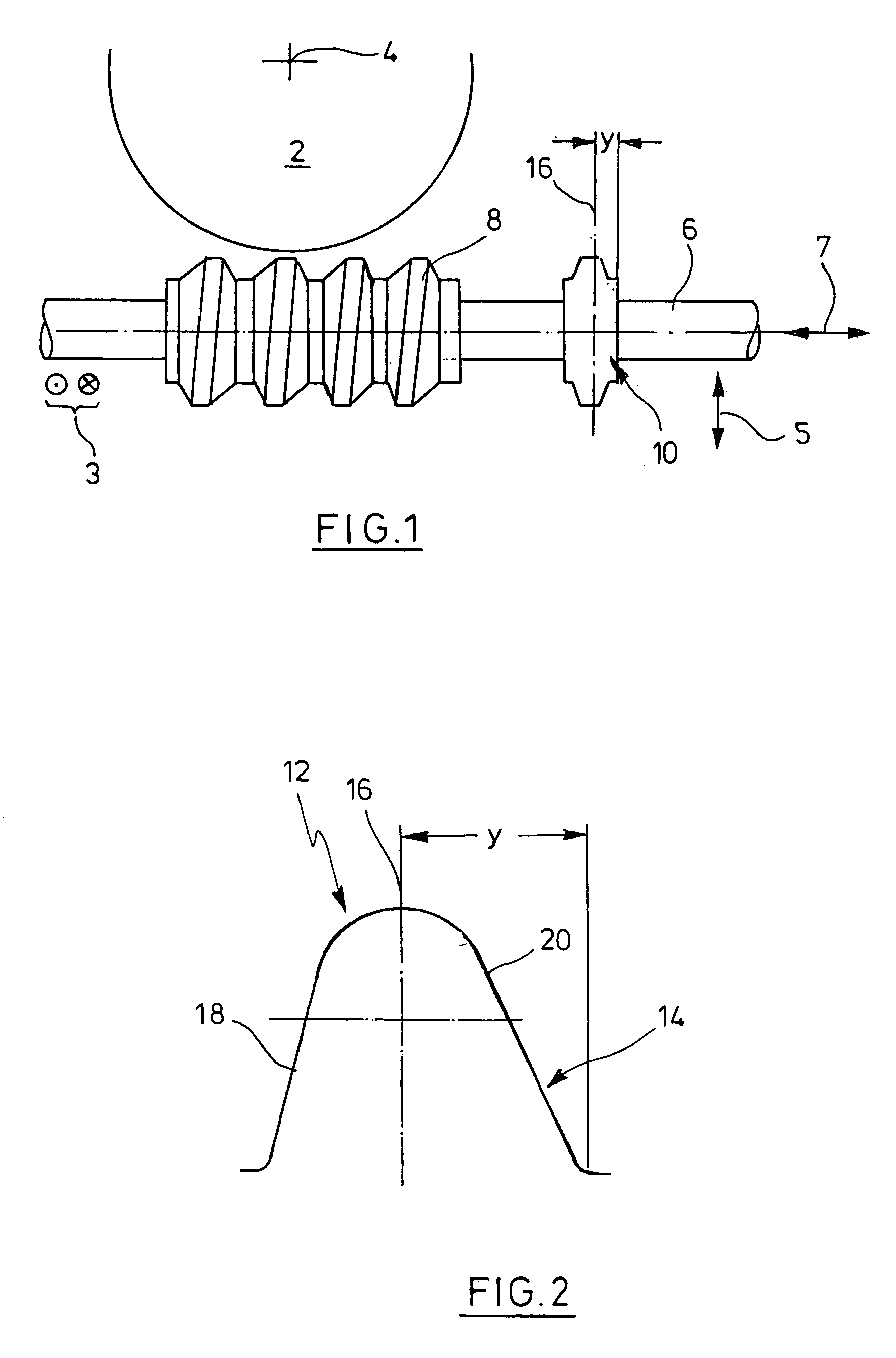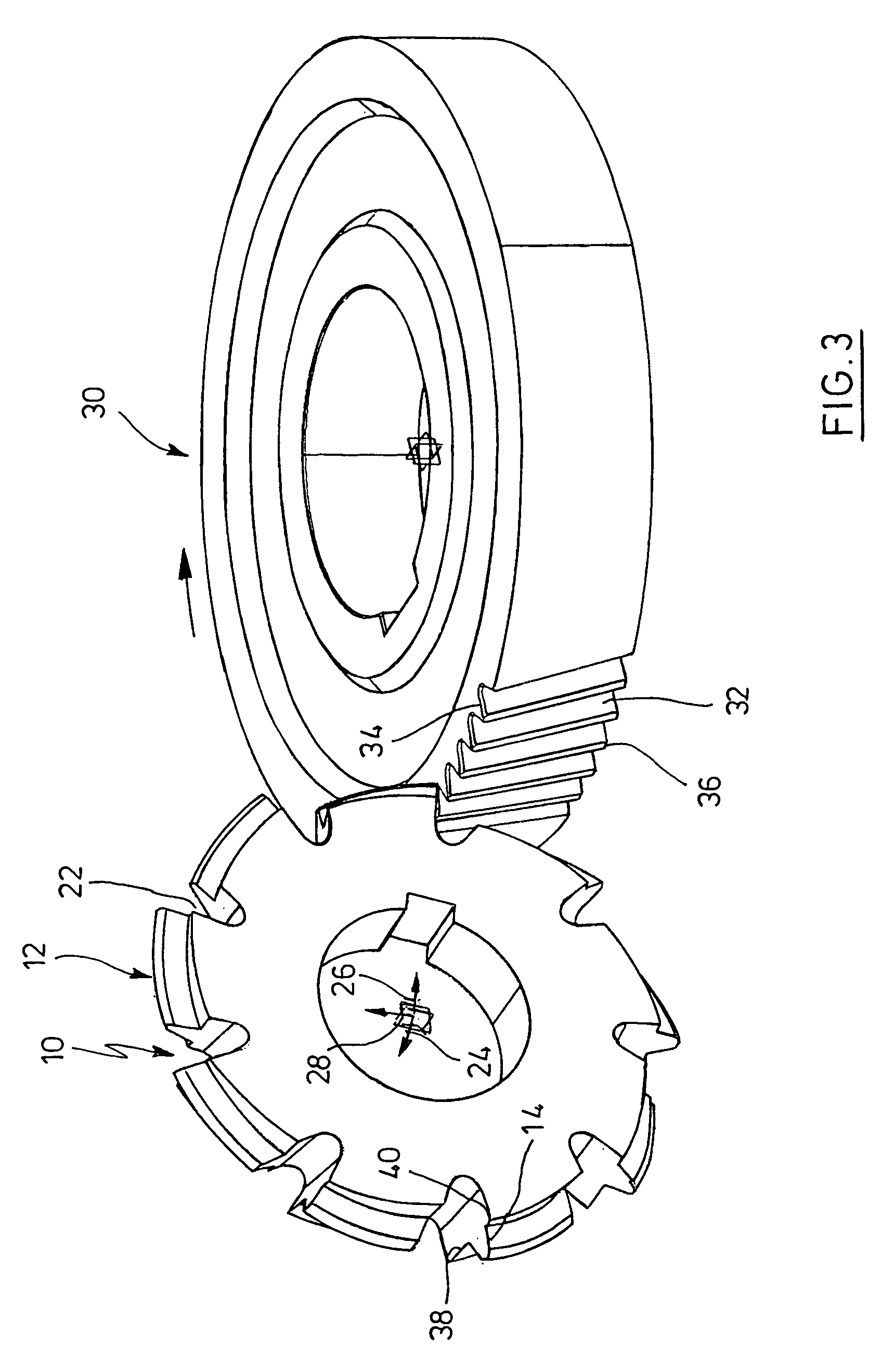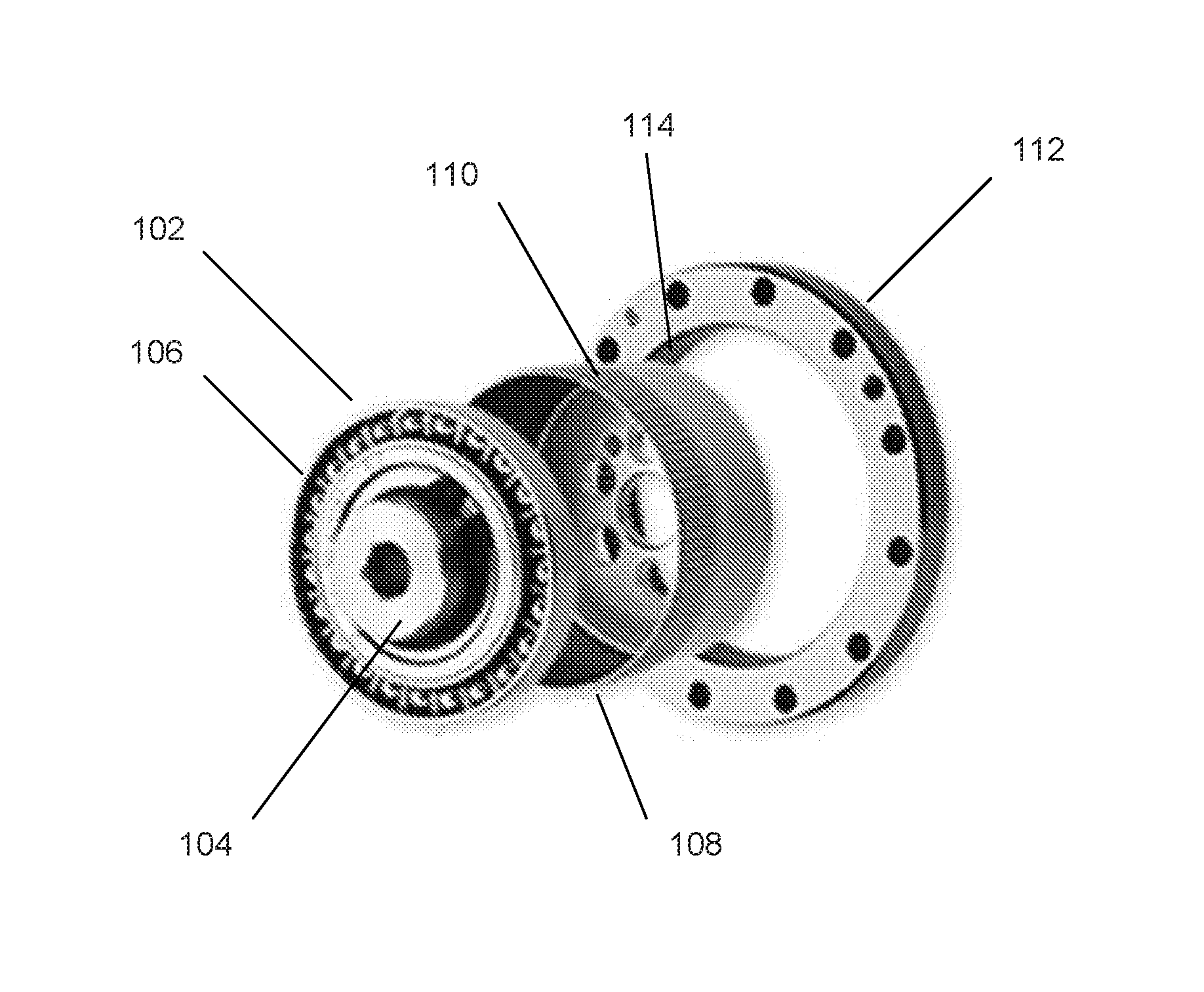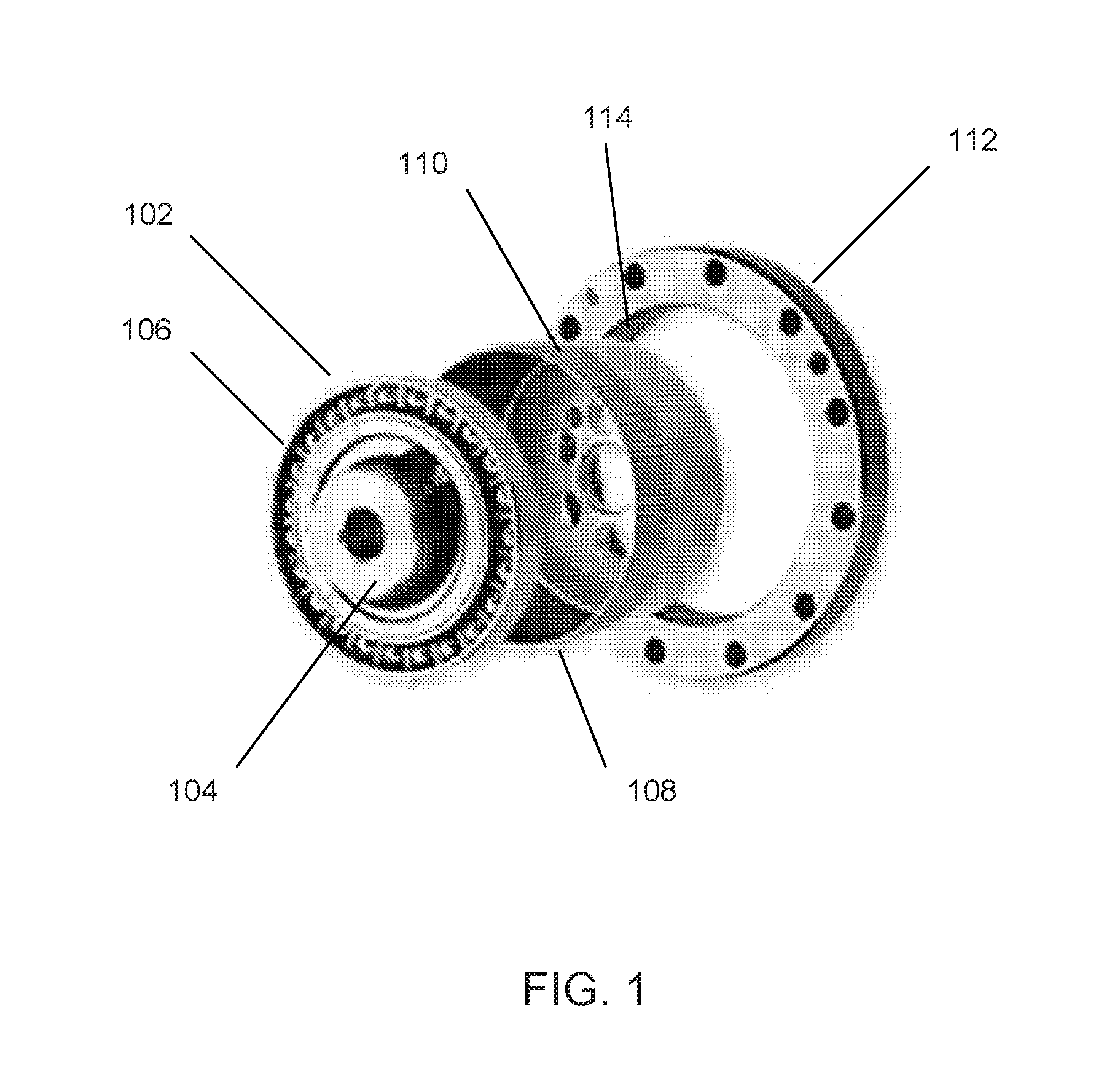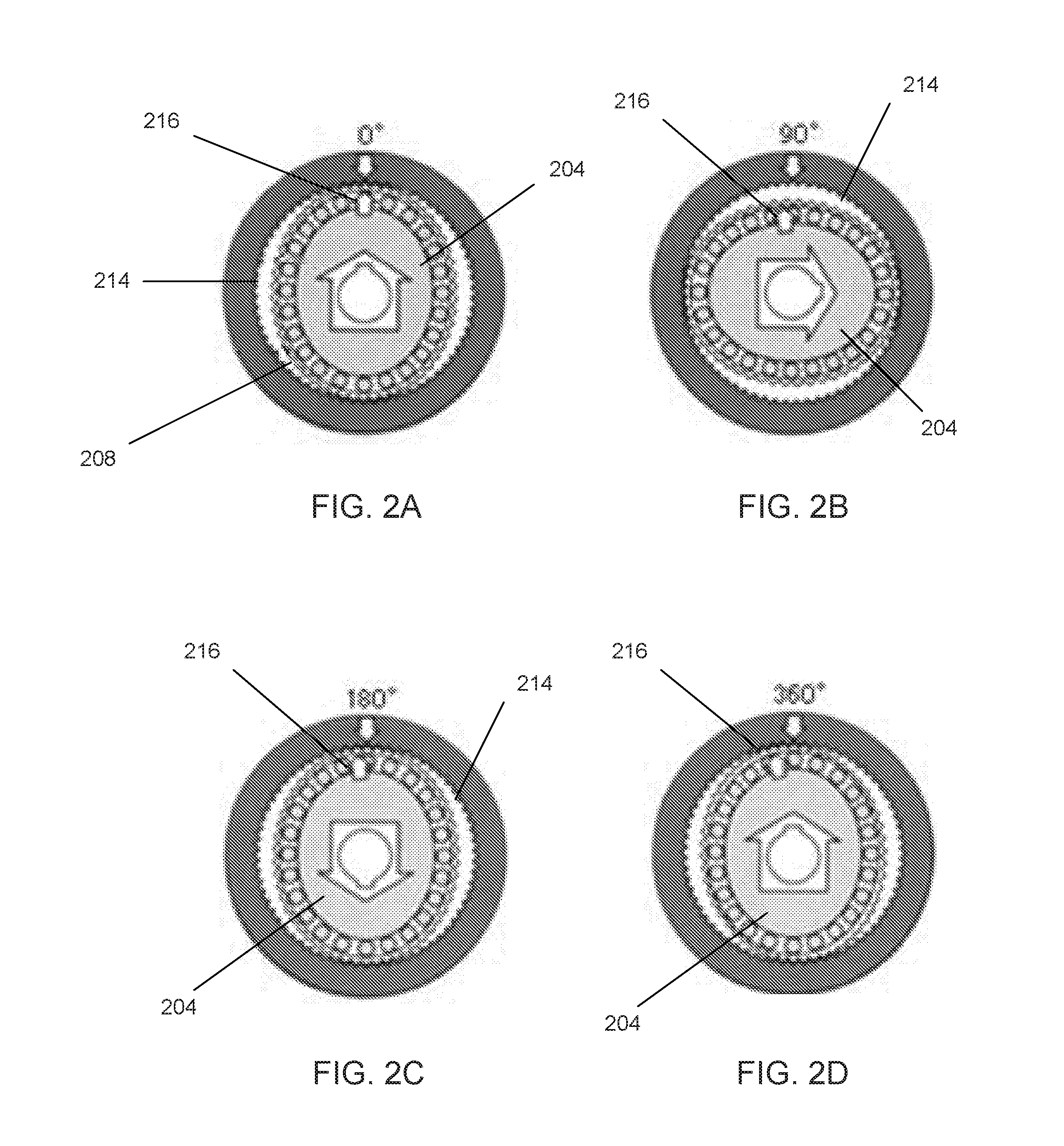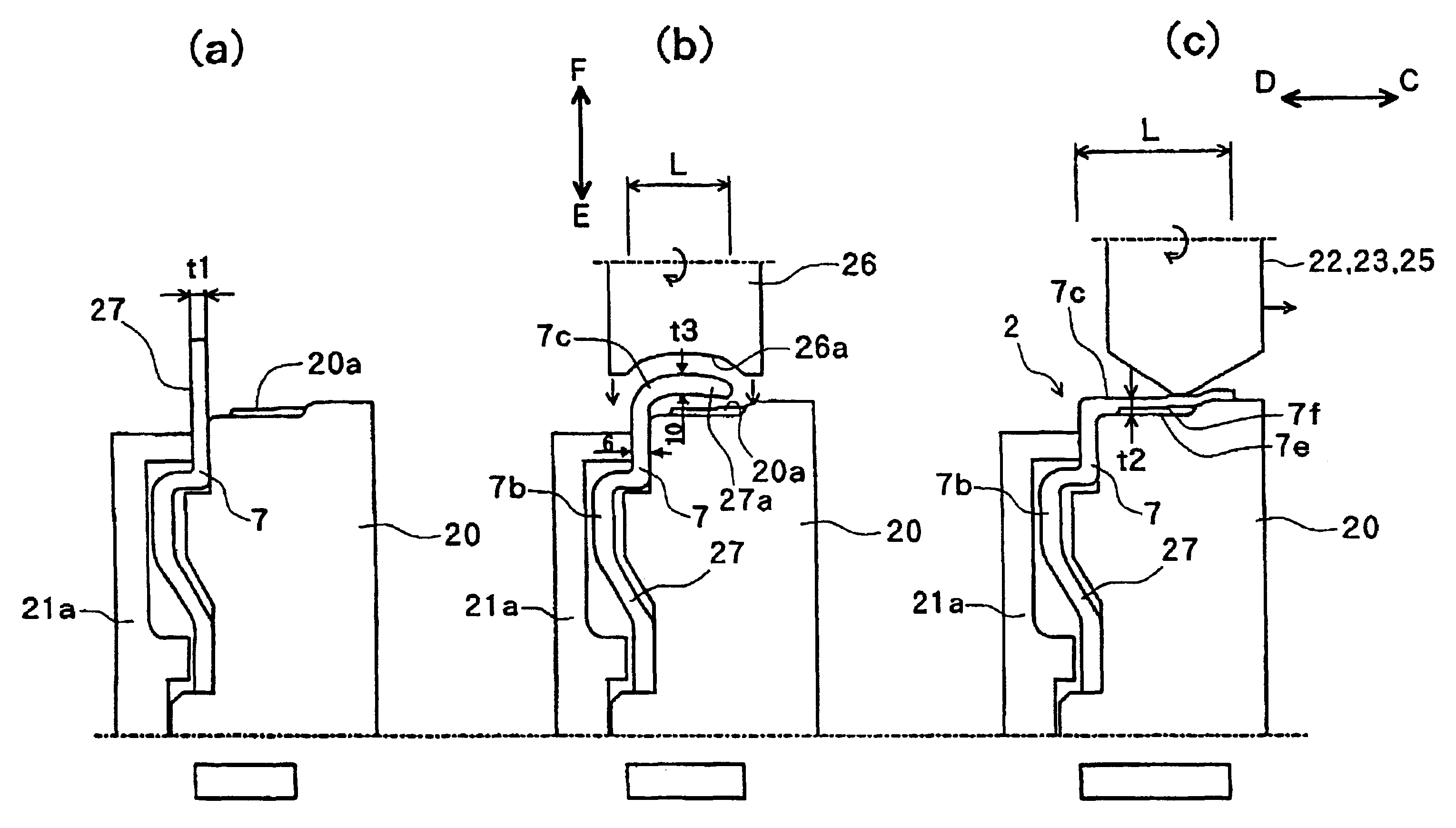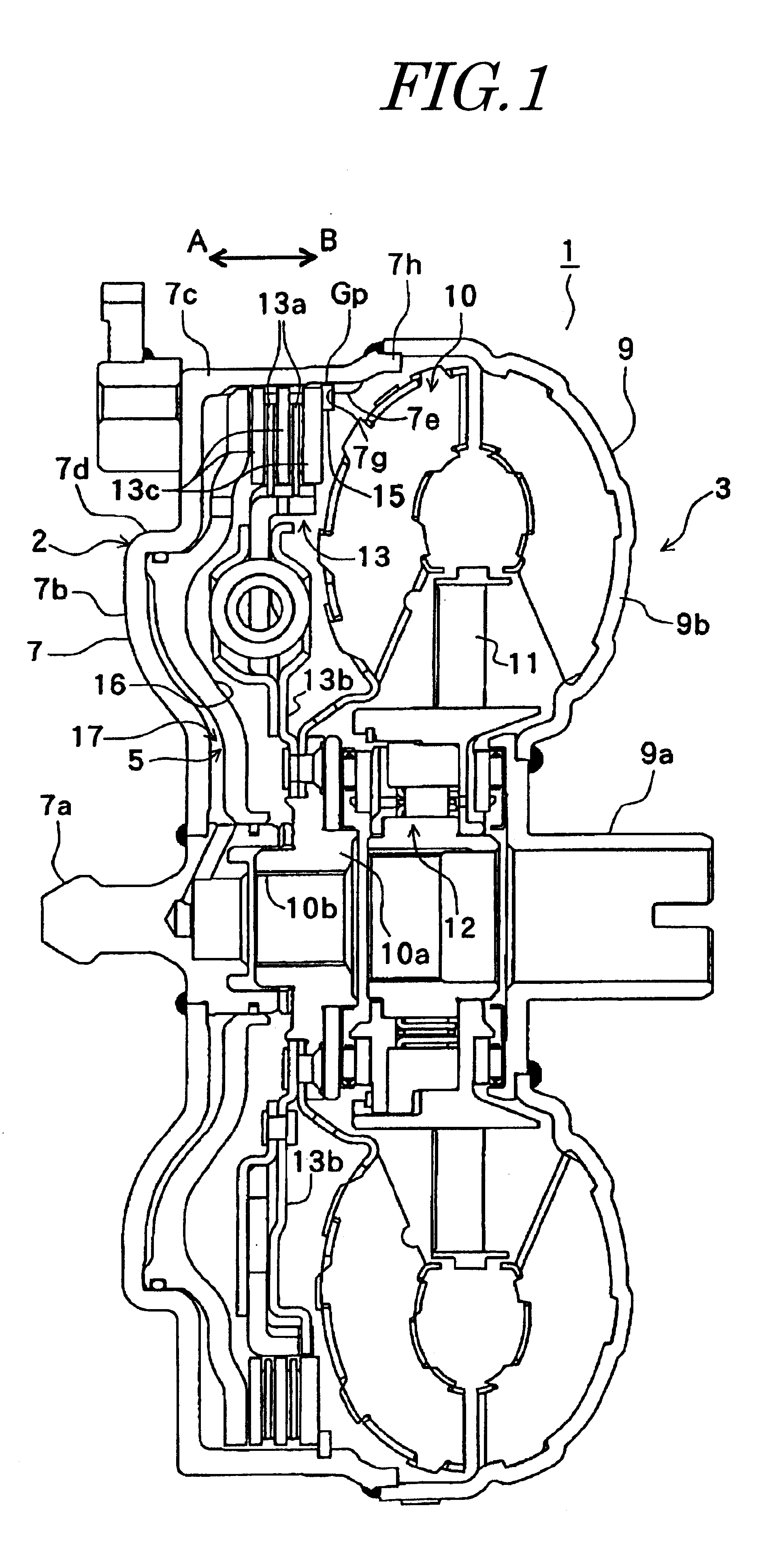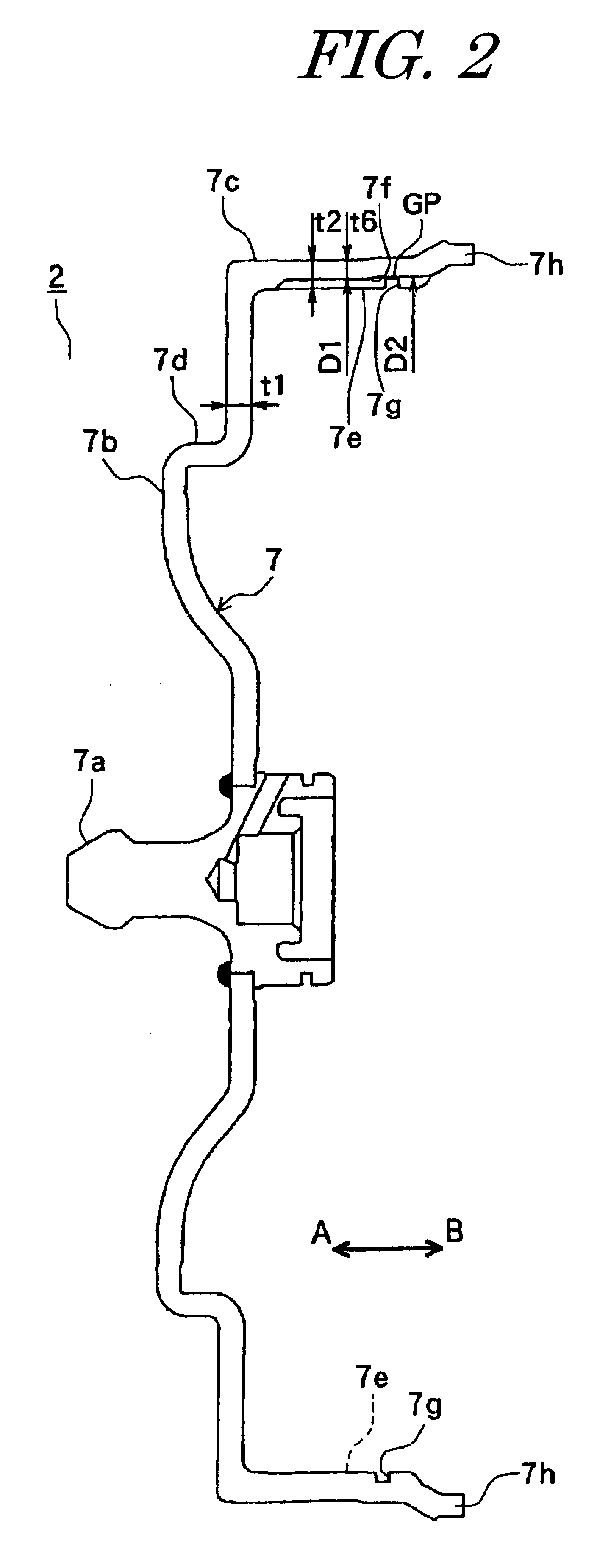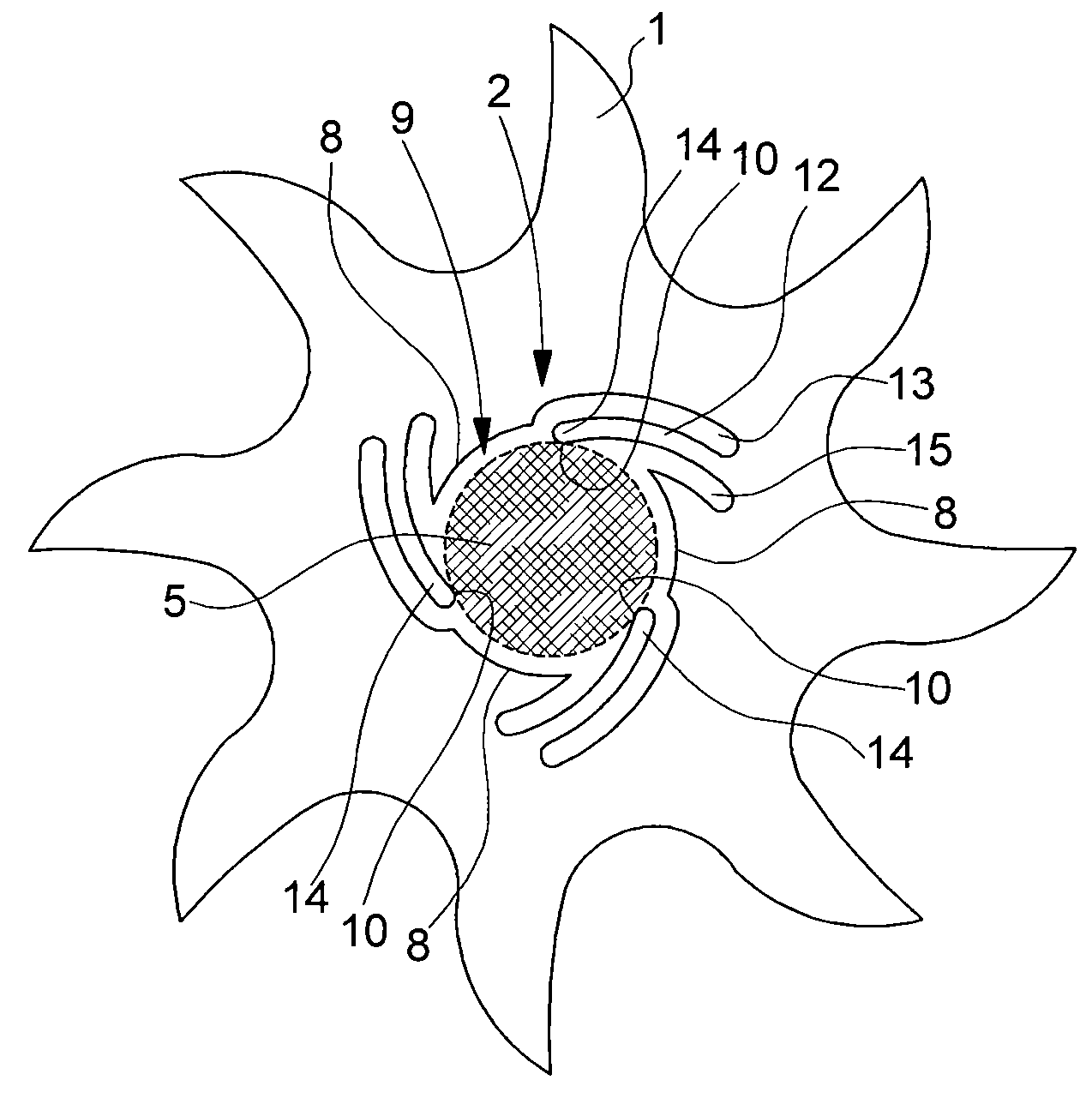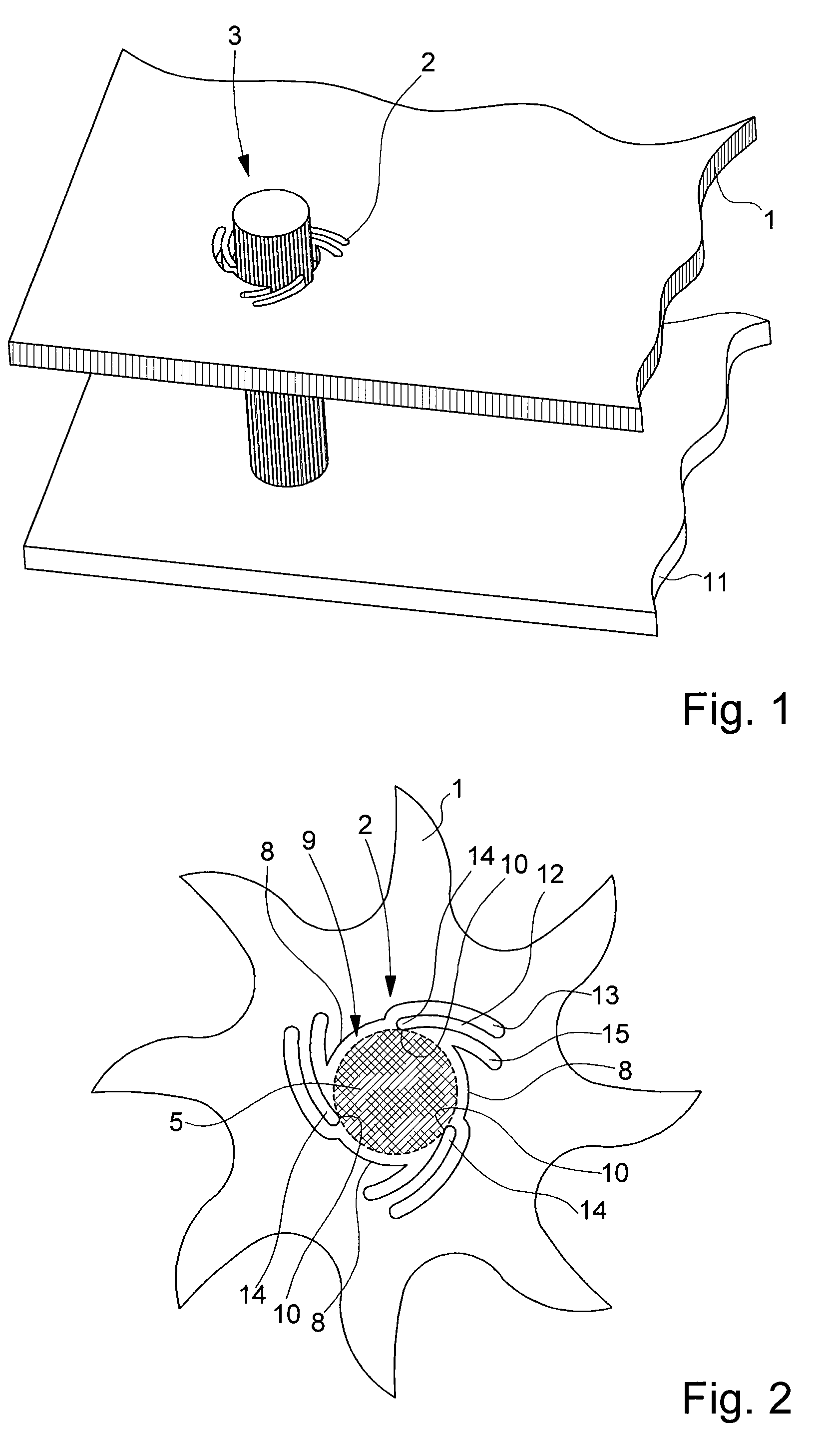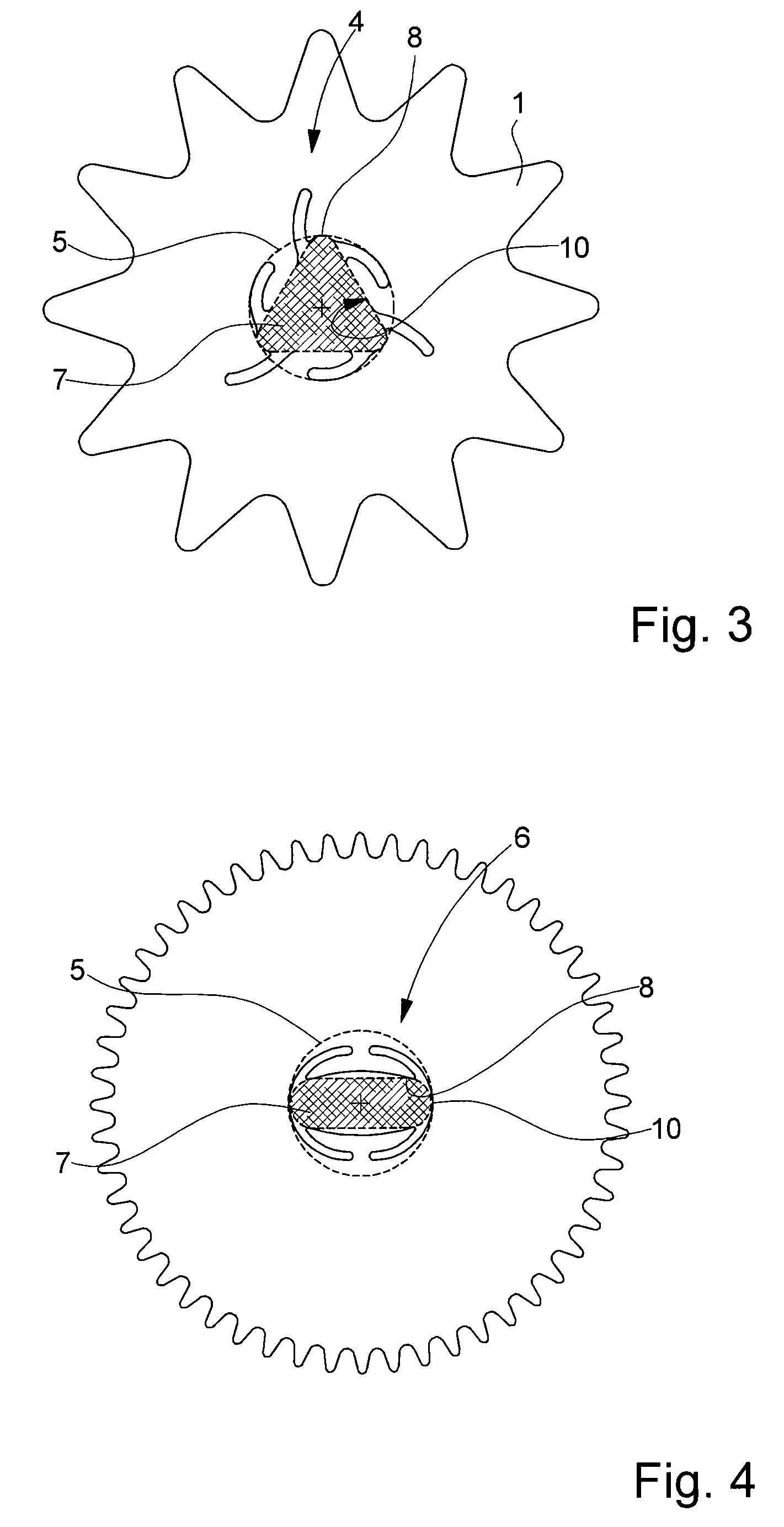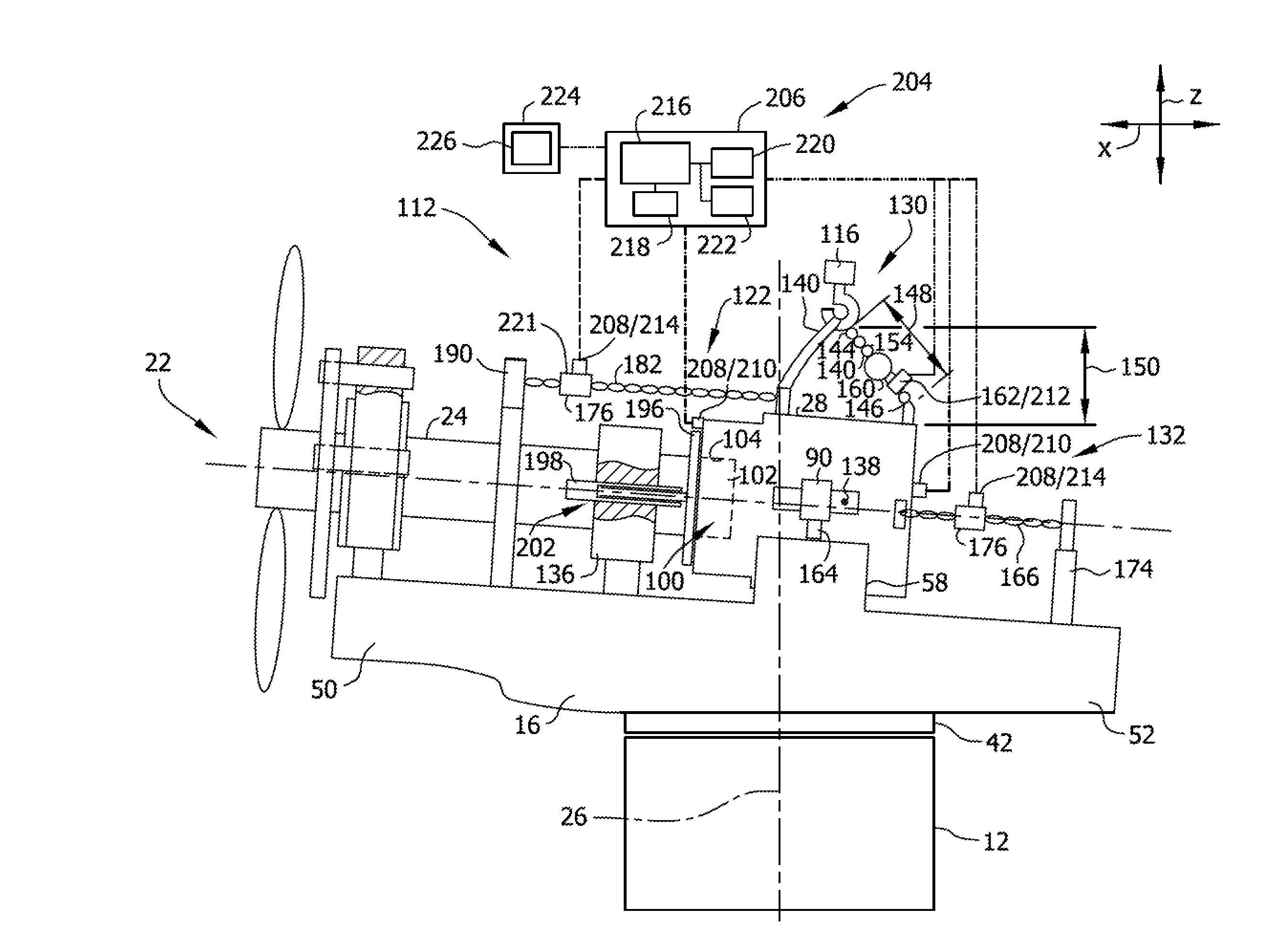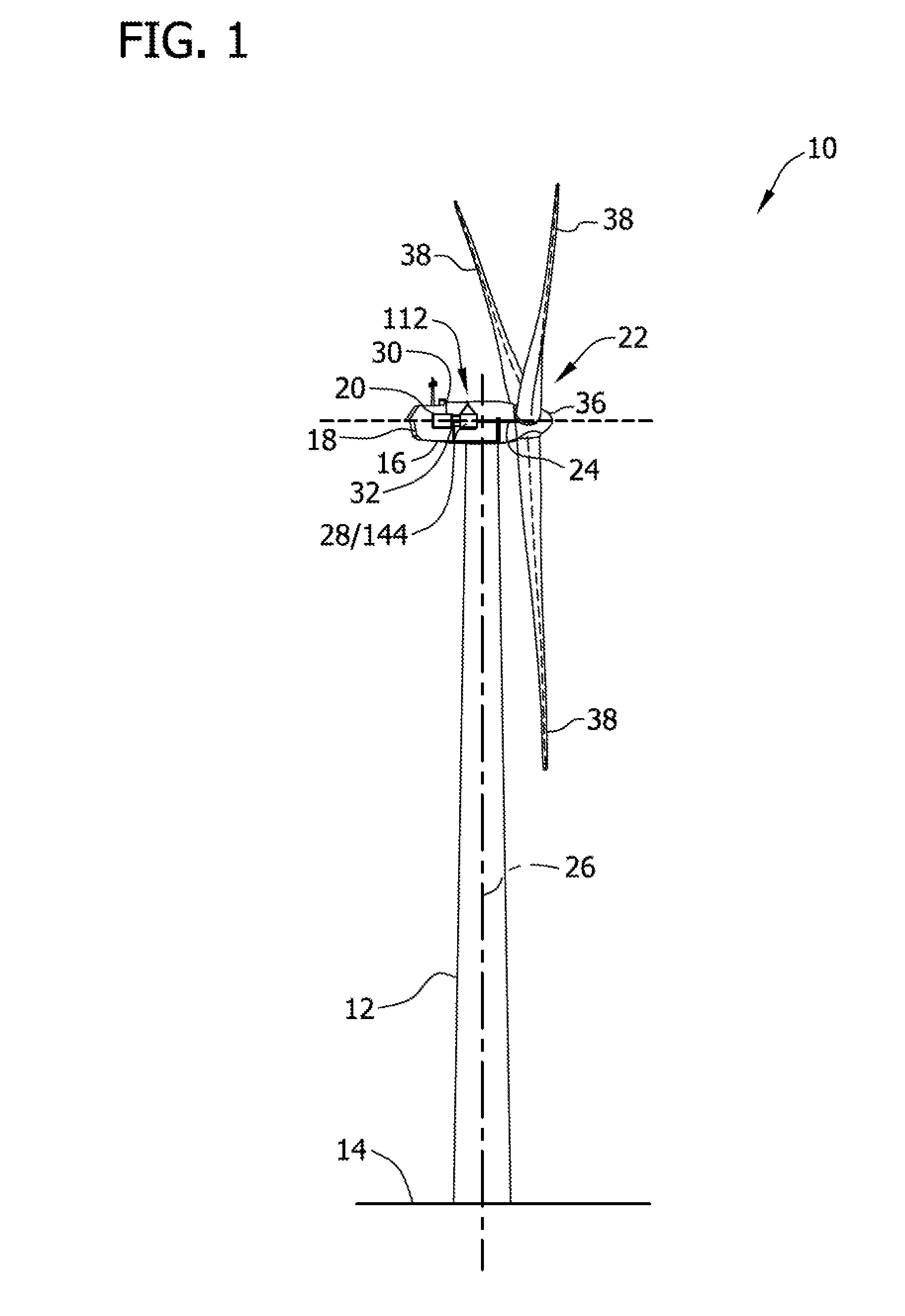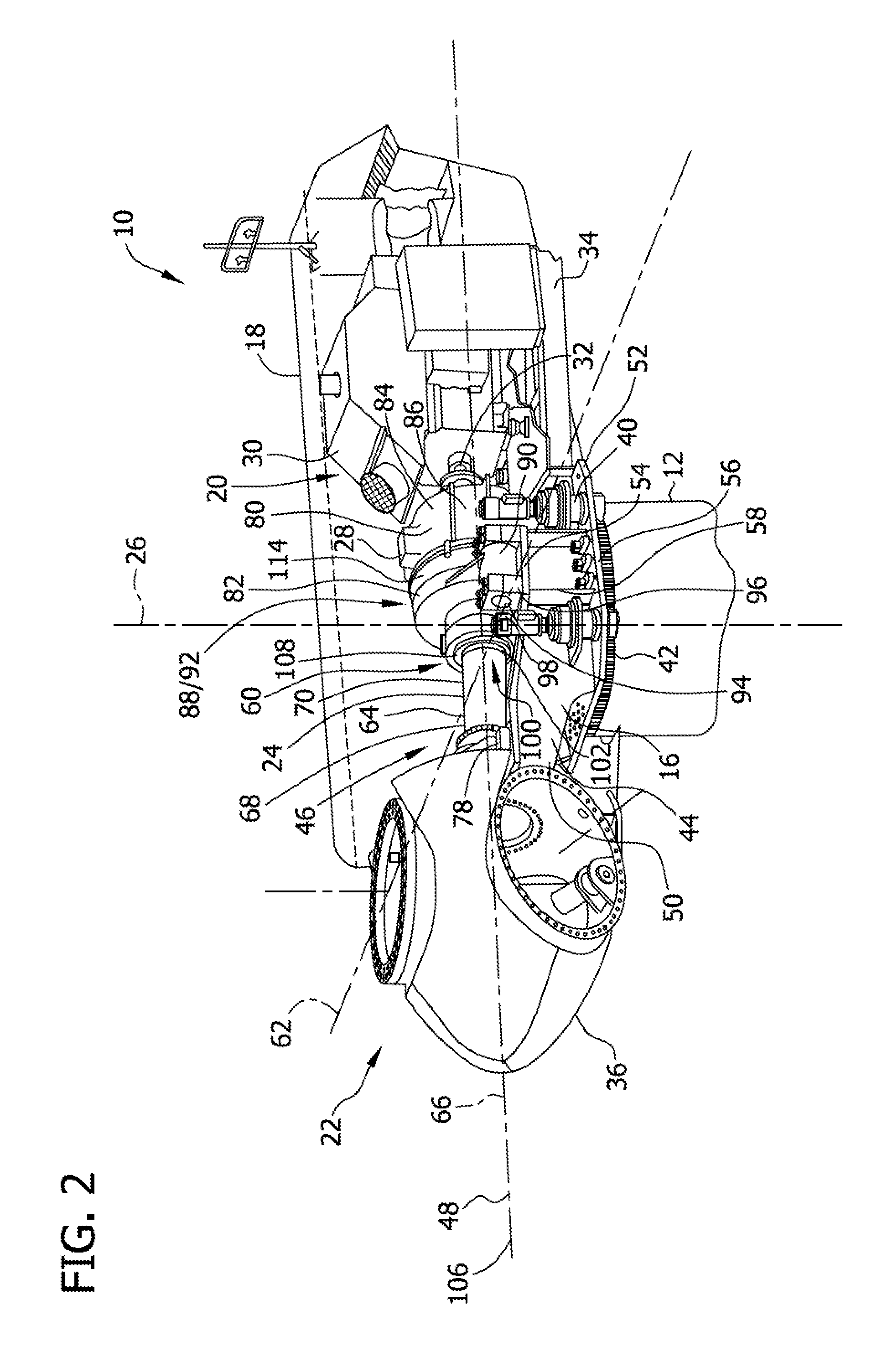Patents
Literature
1347results about "Gear wheels" patented technology
Efficacy Topic
Property
Owner
Technical Advancement
Application Domain
Technology Topic
Technology Field Word
Patent Country/Region
Patent Type
Patent Status
Application Year
Inventor
Compositions and methods for use in three dimensional model printing
InactiveUS7300619B2Similar elasticitySimilar strengthButtonsLiquid surface applicatorsOrganic compoundPolymer chemistry
A pseudo composite material, may include, inter alia, a first phase and a second phase, wherein each phase may include, inter alia, an organic compound, wherein each phase comprising a multiplicity of construction layers, wherein the layers were deposited by ink-jet printing, wherein the pseudo composite material exhibits non-homogeneous three-dimensional structure. A method is disclosed for the preparation of a pseudo composite material. An apparatus is disclosed for printing a pseudo composite material. Furthermore, there is disclosed a method for printing a three-dimensional object using various suitable materials.
Owner:STRATASYS LTD
Compositions and methods for use in three dimensional model printing
Compositions for use in the manufacture of three-dimensional objects including compositions for use as a support and / or release material in the manufacture of the three-dimensional objects are provided. There is thus provided, in accordance with an embodiment of the present invention, a composition suitable for building a three-dimensional object. The compositions may include, inter alia, a curable component, having a functional group, wherein if the functional group is a polymerizable reactive functional group, then the functional group is a (meth)acrylic functional group, a photo-initiator, a surface-active agent and a stabilizer; wherein said composition has a first viscosity of about 50–500 cps at a first temperature, wherein said first temperature is ambient temperature, and a second viscosity lower than 20 cps at a second temperature wherein said second temperature is higher than said first temperature, wherein, after curing, the composition results in a solid form. There is thus provided, in accordance with another embodiment of the present invention, a composition suitable for support in building a three-dimensional object. The compositions may include, inter alia: a non-curable component, a curable component, wherein the non-curable component is not reactive with said curable component, a surface-active agent and a stabilizer; wherein said composition has a first viscosity of about 20–500 cps at a first temperature, wherein said first temperature is ambient temperature, and a second viscosity lower than 20 cps at a second temperature wherein said second temperature is higher than said first temperature, wherein, after irradiation, the composition results in a solid, a semi-solid or liquid material. A method for the preparation of a three-dimensional object by three-dimensional printing is provided in accordance with embodiments of the present invention. Embodiments of the present invention further provide a three-dimensional object prepared according to the methods of the invention.
Owner:STRATASYS LTD
Toroidal continuously variable transmission
ActiveUS20080305920A1Low costReduce processing costsMetal-working apparatusGear wheelsEngineeringGear ratio
Power roller-side concave grooves are opposed to disk-side concave grooves 19, 19 so as to have angles therebetween in a rolling contact area between a peripheral surface of the power roller and a one-side surface 17 of a disk 16 in an axial direction regardless of a transmission gear ratio of a toroidal continuously variable transmission. Accordingly, the disk-side concave grooves 19, 19 are formed so as to have angles with respect to a circumferential direction of the disk 16 when viewed from a normal direction relative to the one-side surface 17 in the axial direction. Meanwhile, the power roller-side concave grooves are formed into a concentric shape (or a spiral shape) about a central shaft of the power roller. As a result, it is possible to prevent a decrease of a contact area in the rolling contact area regardless of the transmission gear ratio.
Owner:NSK LTD
Preparation of white light emitting diode using a phosphor
The present invention relates to a method for preparing a white light emitting diode (LED) using phosphors, especially to a white light emitting diode prepared by applying a tri-color phosphor material mixture of red, blue and green on a UV LED chip made of a packaging substrate, where white light is obtained by transmitting light through the tri-color phosphor mixture since the UV LED chip emits purple light. In particular, the present invention relates to a white light emitting diode prepared by laminating green and red or yellow and red phosphor materials on a blue LED chip, where white light is obtained as light is transmitted and absorbed by the phosphors. The method in accordance with the present invention is advantageous in that a white light emitting diode having superior photoluminescence efficiency can be provided using a single chip.
Owner:KOREA RES INST OF CHEM TECH
Gear made of resin, and mold structure
InactiveUS6883397B2Reduce amountIncreased durabilityPortable liftingGear lubrication/coolingLubricant
A gear made of a resin includes a substantially cylindrical rim having a plurality of teeth formed around an outer periphery thereof, a boss formed about a rotational center of the rim, and a web connecting the boss and the rim to each other. At least one groove is defined along outer surface of each tooth to divide the tooth in a widthwise direction of the tooth. As a result, a portion of the gear, in which the grooves are defined, is deformed in a reduced amount, leading to a reduced amount of deformation such as a warpage or sink in the entire gear, thereby providing an enhancement in tooth flank accuracy. Since the grooves are defined along the outer surfaces of the teeth, a lubricant such as grease can be supplied effectively to tooth flanks by previously applying the lubricant in the grooves.
Owner:ENPLAS CORP
Adhesive label resealable package and label web
The invention relates to an adhesive label, a resealable package provide with such a label and a label web. The package has an openable flap (14) defined by an arcuate indication (16). The label (12) is adhesively fixed to the package body for the purpose of resealably sealing the flap. The label has a top portion forming a gripping tab (20) and two leg portions (22) extending in a diverging manner from the gripping tab (20) and defining between them a central recess (23). The label is integrated with at least one projecting indicator portion (24) for each leg portion (22), which indicator portions are adapted to be separated from the label (12) when the package (10) is opened for the first time. The leg portions with the projecting indicator portions (24) form a first contour on the convex side of the indication (16) and the leg portions (22) form a second contour on the concave side of the indication (16), which is complementary to the first contour. The web comprises a carrier for labels arranged in such a manner that a first contour of a label is fitted in and partially enclosed by a second contour of an adjoining label.
Owner:REGATH
Twin-sheet thermoforming process
A twin-sheet thermoforming process for the manufacture of vehicle headliners. In the process a first sheet and second sheet of SuperLite material are mounted onto respective frames. The frames transfer the sheets into an oven, where they are heated to a desired temperature using IR. The first sheet is combined with a cover-stock material using compression molding forming a covered first headliner part. The covered first headliner part is then transferred to a second mold station. The second sheet is heated and then transferred from the oven to the second mold station where it is vacuum-formed on the upper half mold, forming a second headliner part. The upper and lower mold halves are pressed together fusing and sealing the first and second headliner parts into a unified part. The unified part is then unloaded and trimmed as necessary forming a headliner. The SuperLite material used to form the headliner is a sheet of low pressure, thermoformable, thermoplastic composite comprised of polypropylene and long chopped glass fibers.
Owner:AZDEL INC
Twin-sheet thermoformed products
A twin-sheet thermoforming process for the manufacture of vehicle headliners. In the process a first sheet and second sheet of SuperLite material are mounted onto respective frames. The frames transfer the sheets into an oven, where they are heated to a desired temperature using IR. The first sheet is combined with a cover-stock material using compression molding forming a covered first headliner part. The covered first headliner part is then transferred to a second mold station. The second sheet is heated and then transferred from the oven to the second mold station where it is vacuum-formed on the upper half mold, forming a second headliner part. The upper and lower mold halves are pressed together fusing and sealing the first and second headliner parts into a unified part. The unified part is then unloaded and trimmed as necessary forming a headliner. The SuperLite material used to form the headliner is a sheet of low pressure, thermoformable, thermoplastic composite comprised of polypropylene and long chopped glass fibers.
Owner:AZDEL INC
Method of producing a spread multi-filament bundle and an apparatus used in the same
ActiveUS20060137156A1Efficient mass productionImprove efficiencyButtonsRecord carriersEngineeringVolumetric Mass Density
A method of producing a spread multi-filament bundle and an apparatus is used in which an arbitrary number of multi-filament bundles of higher strength are simultaneously spread with high speed and a high-quality. A spread multi-filament bundle or sheet with the component monofilaments thereof aligned in parallel widthwise and uniformly distributed in density is produced. The respective multi-filament bundles fed from a yarn supplier or a creel are subjected to fluctuation of the tensile force applied thereto alternatively between tension and relaxation and the respective bundles as subjected to such fluctuation are passed in succession through a fluid flowing spreader.
Owner:FUKUI PREFECTURE
Cam mechanism for translation of circular motion into reciprocal motion
A cam mechanism for use in a mowing machine. The cam mechanism is comprised of a spur gear and protruding eccentric cams from the top and bottom surfaces of the spur gear. The cam mechanism is formed from a half blanking press process. The eccentric cams are symmetrically formed around a shaft hole located in the center of the spur gear. Members with a hole equaling that of the eccentric cam and shaft hole point symmetry are then fitted onto the eccentric cam. The members are then capable of reciprocation with a phase differential of 180 degrees of each other. The concave portion of the eccentric cam permits lubricants to be filled in the space facilitating the smooth operation of the cam mechanism.
Owner:DELTA KOGYO CO LTD +1
Image processing method and system for microfluidic devices
InactiveUS20050282175A1Increase speedSimple processImage enhancementButtonsImaging processingState dependent
A method for processing an image of a microfluidic device. The method includes receiving a first image of a microfluidic device. The first image corresponds to a first state. Additionally, the method includes receiving a second image of the microfluidic device. The second image corresponds to a second state. Moreover, the method includes transforming the first image and the second image into a third coordinate space. Also, the method includes obtaining a third image based on at least information associated with the transformed first image and the transformed second image, and processing the third image to obtain information associated with the first state and the second state.
Owner:FLUIDIGM CORP
Method of producing a spread multi-filament bundle and an apparatus used in the same
ActiveUS7571524B2Efficient mass productionImprove efficiencyButtonsRecord carriersYarnVolumetric Mass Density
A method of producing a spread multi-filament bundle and an apparatus is used in which an arbitrary number of multi-filament bundles of higher strength are simultaneously spread with high speed and a high-quality. A spread multi-filament bundle or sheet with the component monofilaments thereof aligned in parallel widthwise and uniformly distributed in density is produced. The respective multi-filament bundles fed from a yarn supplier or a creel are subjected to fluctuation of the tensile force applied thereto alternatively between tension and relaxation and the respective bundles as subjected to such fluctuation are passed in succession through a fluid flowing spreader.
Owner:FUKUI PREFECTURE
Composite gear
InactiveUS20070089555A1Provide rigidityProvide strengthPortable liftingGear wheelsGear wheelEngineering
There is disclosed herein novel gear wheels comprising a core and teeth, where the core comprises a first material and the teeth comprisse this material together with a second material molded thereon as a skin. A variety of materials suitable for use with the invention are disclosed, together with methods for manufacture of these wheels and methods for transmitting torque between gear wheels.
Owner:EI DU PONT DE NEMOURS & CO
Compositions and methods for use in three dimensional model printing
InactiveUS20080105818A1Similar elasticitySimilar strengthButtonsRecord carriersInvestment castingMaterials science
Embodiments of the invention are directed to a method of producing three-dimensional prototype molds for use in investment casting. The method includes dispensing modeling material and support material in a predetermined arrangement, in layers, to produce a three-dimensional mold having an outer shell. Generally, the out shell includes modeling material and the interior of the mold includes support material. Then the mold is cured.
Owner:OBJET GEOMETRIES
Method of manufacturing a rigid internal gear of a wave gear device
InactiveUS20020184766A1Increase pressureForming accuratelyToothed gearingsGear wheelsCopperAluminum coating
A rigid internal gear 2 of the wave gear device is composed by integrating a tooth-forming ring 12 formed with internal teeth, and a main gear ring 11 into a single body. The tooth-forming ring 12 is manufactured from a ferrous or copper material that has superior strength and abrasion resistance, while the main gear ring 11 is manufactured from a lightweight material, such as an aluminum alloy. The outer circumferential surface of the tooth-forming ring 12 is aluminized to form a dispersed aluminum coating 15, before the tooth-forming ring 12 is cast within the main gear ring 11 so as to integrate the main gear ring 11 and the tooth-forming ring 12. Both parts are reliably integrated so that a large amount of torque can be transmitted, whereby realizing a rigid internal gear that is lighter than conventional models.
Owner:HARMONIC DRIVE SYST IND CO LTD
Valve gate assembly
ActiveUS20050100625A1Process controlEasy to adjustButtonsRecord carriersEngineeringMechanical engineering
A valve gate assembly for regulating a flow of molten material into a mold. The valve gate assembly includes a movable valve that can move between a fully closed position and a fully open position. The valve gate assembly further includes an actuating system operatively cooperating with the valve to move the valve and infinitely position the valve between the fully closed position and the fully open position.
Owner:PLASTIC ENG & TECHN SERVICES
Worm wheel for electric power steering apparatus and method for manufacturing the same
InactiveUS20130228028A1Well formedExcellent characteristicsPortable liftingMechanical steering gearsElectric power steeringReduction drive
Disclosed is a worm wheel of a reducer of an electric power steering apparatus which is manufactured by integrally injection-molding a hub, a boss, and a gear forming part, thereby making it possible to increase a forming performance of the worm wheel and reduce an amount of material, and increasing a mechanical durability and frictional characteristics of the worm wheel to allow the reducer to be stably used for a long time, and a method for manufacturing the same.
Owner:HL MANDO CORP
Compositions and method for improving reheat rate of PET using activated carbon
ActiveUS20040249113A1Improving reheat rateMinimize impactEnvelopes/bags making machineryButtonsActivated carbonPolyester
A polyester composition, a preform, and a bottle, containing a polyester such as polyethylene terephthalate or polyethylene naphthalate and activated carbon to enhance the rate for reheating the composition is provided. Activated carbon may be added in the presence of active phosphorus containing compounds, or at any stage in the melt phase after prepolymerization and after the polyester polymer is solidified. Polyester concentrates containing activated carbon may be added to bulk polyesters to make preforms suitable for blowing into bottles.
Owner:ALPEK POLYESTER SA DE CV
Method of manufacturing an automotive differential having an input pinion
A method for fabricating an input pinion for an automotive differential that includes: providing a shaft; forging a pinion with a plurality of teeth such that each tooth is formed to at least a near-net size, forming a hole in the pinion, pressing an end of the shaft into the hole in the pinion, and securing the shaft to the pinion.
Owner:AMERICAN AXLE & MFG
Systems and methods for implementing bulk metallic glass-based strain wave gears and strain wave gear components
Owner:CALIFORNIA INST OF TECH
Process for forming a patterned thin film structure for in-mold decoration
A process for forming a patterned thin film structure on a substrate or in-mold decoration film is disclosed. A pattern is printed with a material, such as a masking coating or ink, on the substrate, the pattern being such that, in one embodiment, the desired structures will be formed in the areas where the printed material is not present, i.e., a negative image of thin film structure to be formed is printed. In another embodiment, the pattern is printed with a material that is difficult to strip from the substrate, and the desired thin film structures will be formed in the areas where the printed material is present, i.e., a positive image of the thin film structure is printed. The thin film material is deposited on the patterned substrate, and the undesired area is stripped, leaving behind the patterned thin film structure.
Owner:SIPIX CHEM
Systems and methods for implementing bulk metallic glass-based macroscale gears
Systems and methods in accordance with embodiments of the invention implement bulk metallic glass-based macroscale gears. In one embodiment, a method of fabricating a bulk metallic glass-based macroscale gear, where at least either the thickness of the gear is greater than 3 mm or the diameter of the gear is greater than 9 mm, includes: obtaining design parameters of the gear to be formed; selecting a bulk metallic glass from which the gear will be formed based on the obtained design parameters, where the selected bulk metallic glass is characterized by a resistance to standard modes of wear and a resistance to brittle fracture such that a gear can be formed from the selected bulk metallic glass that accords with the obtained design parameters; and fabricating the gear from the selected bulk metallic glass that accords with the obtained design parameters.
Owner:CALIFORNIA INST OF TECH
Mandrel insertion type metal forming of rack bar
InactiveUS20020044439A1High precisionReduce processing stepsFoundry mouldsMechanical steering gearsMetal formingEngineering
A method for producing a rack bar for a steering mechanism in an automobile. A blank pipe is held in a die, which has, at its inner surface, linear tooted portions. Mandrels are inserted repeatedly to the blank pipe while the direction of the insertion is alternately changed, while the insertion of the mandrel on one side of the blank pipe and the withdrawal of the mandrel on the other side are overlapped. Furthermore, lubrication is controlled so that an increased temperature of the work around 200° C. as generated under the plastic deformation of the metal is kept. An increased efficiency as well as reduced cost are obtained.
Owner:KOSHINGIKEN
Method and apparatus for hard finishing modified gears
The present disclosure relates to a method for the manufacture of a workpiece having a corrected gear geometry and / or a modified surface structure, in particular by a hard finishing process, in particular generation grinding or honing. Provision is made in this respect that it is achieved by a direct generation of a wobble movement and / or of an eccentricity of the tool that a modification, in particular a profile modification or profile waviness, and / or a defined periodic flank waviness is generated on the active surface of the workpiece machined therewith.
Owner:LIEBHERR VERZAHNTECHNIK GMBH
Process for manufacturing electrically conductive components
InactiveUS7240416B2Minimise such pittingNot be excludedEar treatmentWave amplification devicesElectrical resistance and conductancePlatinum foil
A method of forming a device, such as an electrode array for a cochlear implant. The method comprises a step of forming a predetermined pattern of relatively electrically conductive regions and relatively electrically resistive regions in a sheet of biocompatible electrically conductive material, such as platinum foil. The method can comprise a step of working on the sheet to remove predetermined portions therefrom to form the one or more discrete relatively conducting regions. The step of working on the sheet can comprise embossing the sheet, cutting or slicing the sheet, or using electrical discharge machining (EDM) to remove unwanted portions of the sheet, the EDM equipment having a cutting tool comprising an electrode.
Owner:COCHLEAR LIMITED
Method, device, and tool for chamfering the front-end edges of the inter-teeth grooves of a gear
A method for the manufacture of a toothed gear from a gear blank wherein the gear blank loaded into a machine tool and rotationally driven is machined by a hobbing cutter disposed on a rotationally driven tool shaft and the rough-hobbed gear, once produced, is subsequently cleared of burr by means of a rotationally driven deburring tool by causing it to chamfer the front-end edges of the inter-teeth grooves, wherein the number of revolutions of said deburring tool and rough-machined gear has a constant ratio, wherein the removal of burr is performed on said rough-machined gear invariably loaded on said machine tool in a continuous pass by using a deburring tool which is similar to a side milling cutter, has cutting teeth, and is fixedly disposed for rotation on the shaft of said hobbing cutter, wherein the front-end edges of the inter-teeth grooves are successively machined in the way of a gear hobbing process, and wherein said shaft is changed from the gear hobbing setting over to a burr removal setting.
Owner:FETTE
Systems and Methods for Implementing Tailored Metallic Glass-Based Strain Wave Gears and Strain Wave Gear Components
Systems and methods in accordance with embodiments of the invention implement tailored metallic glass-based strain wave gears and strain wave gear components. In one embodiment, a method of fabricating a flexspline of a strain wave gear includes: forming a MG-based composition into a flexspline using one of a thermoplastic forming technique and a casting technique; where the forming of the MG-based composition results in a formed MG-based material; where the formed flexspline is characterized by: a minimum thickness of greater than approximately 1 mm and a major diameter of less than approximately 4 inches.
Owner:CALIFORNIA INST OF TECH
Method for producing cylindrical member having spline grooves, and cylindrical member having spline grooves
The disclosed method produces a spline-grooved cylindrical member, e.g. torque converter front cover, including a cylindrical portion having a target wall thickness t2, from a plate blank having a plate thickness t1. An outer peripheral portion of a disc-shaped blank is plastically deformed by pressing it against a mandrel with the concave peripheral edge of a thickness-increasing roller, so that a thick wall portion, of a thickness greater than the plate thickness t1 of the blank, is formed in the cylindrical portion. The thick wall portion is then pressed against the mandrel by forming rollers to form spline grooves therein. Thus, the other portions of the product have a wall thickness which is not unnecessarily increased. In this manner, the wall thickness t2 of the cylindrical portion is not entirely dictated by the wall thickness t1 of the blank material. Thus, a cylindrical member resistant to high pressures acting on its axially-extending outer cylindrical portion can be produced with an optimal configuration.
Owner:AISIN AW CO LTD
Micro-mechanical part with a shaped aperture for assembly on a shaft
The part is made from a plate (1) made of a brittle material, such as glass, quartz or silicon and includes at least one aperture (2, 4, 6) for driving in a shaft (5). This aperture is characterized in that it includes alternately rigidifying and positioning zones (8) and resilient deformation zones (10). Application to securing a shaft onto the moving parts of a timepiece movement.
Owner:NIVAROX FAR
Component handling system for use in wind turbines and methods of positioning a drive train component
ActiveUS20120141292A1Easy to disassemblePropellersSemiconductor/solid-state device manufacturingDrive shaftHandling system
A component handling system for use in a wind turbine is described herein. The wind turbine includes a rotor, a drive train assembly supported from a support frame, and a drive shaft that is rotatably coupled between the rotor and the drive train assembly. The component handling system includes a lifting assembly that is removably coupled to a component of the drive train and a lifting device. The lifting assembly is configured to support the component from the lifting device, and includes a plurality of lifting legs extending between the component and the lifting device. An alignment device is coupled to at least one lifting leg of the plurality of lifting legs, and is configured to adjust a length of the at least one lifting leg to adjust an orientation of the component with respect to the drive shaft.
Owner:GENERAL ELECTRIC CO
Features
- R&D
- Intellectual Property
- Life Sciences
- Materials
- Tech Scout
Why Patsnap Eureka
- Unparalleled Data Quality
- Higher Quality Content
- 60% Fewer Hallucinations
Social media
Patsnap Eureka Blog
Learn More Browse by: Latest US Patents, China's latest patents, Technical Efficacy Thesaurus, Application Domain, Technology Topic, Popular Technical Reports.
© 2025 PatSnap. All rights reserved.Legal|Privacy policy|Modern Slavery Act Transparency Statement|Sitemap|About US| Contact US: help@patsnap.com
